ARCHIVE
At Benares Hindu University (Benares, February, 1916)
MOHANDAS KARAMCHAND GANDHI
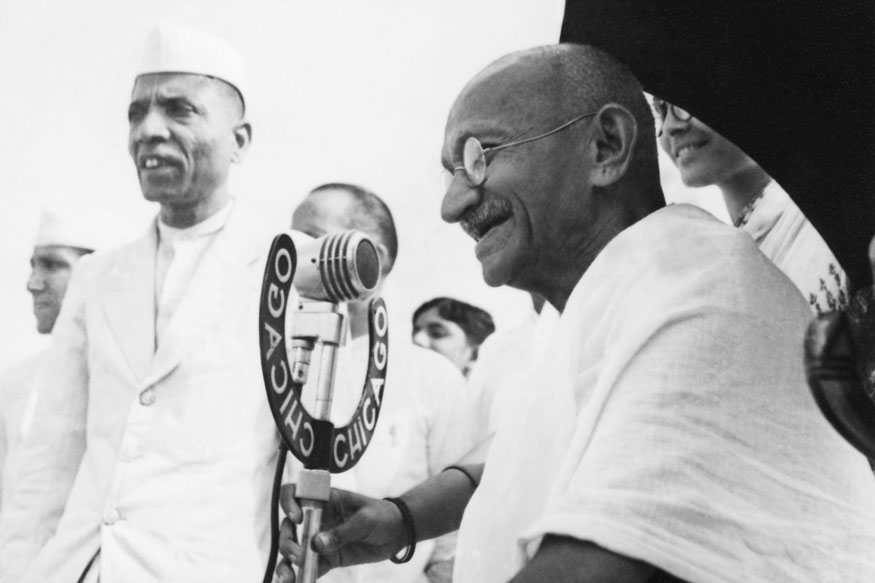
Mahatma Gandhi
I wish to tender my humble apology for the long delay that took place before I was able to reach this place. And you will readily accept the apology when I tell you that I am not responsible for the delay nor is any human agency responsible for it. The fact is that I am like an animal on show, and my keepers in their over kindness always manage to neglect a necessary chapter in this life, and, that is, pure accident. In this case, they did not provide for the series of accidents that happened to us—to me, keepers, and my carriers. Hence this delay.
Friends, under the influence of the matchless eloquence of Mrs Besant who has just sat down, pray, do not believe that our University has become a finished product, and that all the young men who are to come to the University, that has yet to rise and come into existence, have also come and returned from it finished citizens of a great empire. Do not go away with any such impression, and if you, the student world to which my remarks are supposed to be addressed this evening, consider for one moment that the spiritual life, for which this country is noted and for which this country has no rival, can be transmitted through the lip, pray, believe me, you are wrong. You will never be able merely through the lip, to give the message that India, I hope, will one day deliver to the world. I myself have been fed up with speeches and lectures. I accept the lectures that have been delivered here during the last two days from this category, because they are necessary. But I do venture to suggest to you that we have now reached almost the end of our resources in speech-making; it is not enough that our ears are feasted, that our eyes are feasted, but it is necessary that our hearts have got to be touched and that our hands and feet have got to be moved.
We have been told during the last two days how necessary it is, if we are to retain our hold upon the simplicity of Indian character, that our hands and feet should move in unison with our hearts. But this is only by way of preface. I wanted to say it is a matter of deep humiliation and shame for us that I am compelled this evening under the shadow of this great college, in this sacred city, to address my countrymen in a language that is foreign to me. I know that if I was appointed an examiner, to examine all those who have been attending during these two days this series of lectures, most of those who might be examined upon these lectures would fail. And why? Because they have not been touched.
I wanted to say it is a matter of deep humiliation and shame for us that I am compelled this evening under the shadow of this great college, in this sacred city, to address my countrymen in a language that is foreign to me. I know that if I was appointed an examiner, to examine all those who have been attending during these two days this series of lectures, most of those who might be examined upon these lectures would fail. And why? Because they have not been touched.
I was present at the sessions of the great Congress in the month of December. There was a much vaster audience, and will you believe me when I tell you that the only speeches that touched the huge audience in Bombay were the speeches that were delivered in Hindustani? In Bombay, mind you, not in Benaras where everybody speaks Hindi. But between the vernaculars of the Bombay Presidency on the one hand and Hindi on the other, no such great dividing line exists as there does between English and the sister language of India; and the Congress audience was better able to follow the speakers in Hindi. I am hoping that this University will see to it that the youths who come to it will receive their instruction through the medium of their vernaculars. Our languages are the reflection of ourselves, and if you tell me that our languages are too poor to express the best thought, then say that the sooner we are wiped out of existence the better for us. Is there a man who dreams that English can ever become the national language of India? Why this handicap on the nation? Just consider for one moment what an equal race our lads have to run with every English lad.
I had the privilege of a close conversation with some Poona professors. They assured me that every Indian youth, because he reached his knowledge through the English language, lost at least six precious years of life. Multiply that by the numbers of students turned out by our schools and colleges, and find out for yourselves how many thousand years have been lost to the nation. The charge against us is that we have no initiative. How can we have any, if we are to devote the precious years of our life to the mastery of a foreign tongue? We fail in this attempt also. Was it possible for any speaker yesterday and today to impress his audience as was possible for Mr Higginbotham? It was not the fault of the previous speakers that they could not engage the audience. They had more than substance enough for us in their addresses. But their addresses could not go home to us. I have heard it said that after all it is English educated India which is leading and which is doing all the things for the nation. It would be monstrous if it were otherwise. The only education we receive is English education. Surely we must show something for it. But suppose that we had been receiving during the past fifty years’ education through our vernaculars, what should we have today? We should have today a free India, we should have our educated men, not as if they were foreigners in their own land but speaking to the heart of the nation; they would be working amongst the poorest of the poor, and whatever they would have gained during these fifty years would be a heritage for the nation. Today even our wives are not the sharers in our best thought. Look at Professor Bose and Professor Ray and their brilliant researches. Is it not a shame that their researches are not the common property of the masses?
I have heard it said that after all it is English educated India which is leading and which is doing all the things for the nation. It would be monstrous if it were otherwise. The only education we receive is English education. Surely we must show something for it. But suppose that we had been receiving during the past fifty years’ education through our vernaculars, what should we have today? We should have today a free India, we should have our educated men, not as if they were foreigners in their own land but speaking to the heart of the nation; they would be working amongst the poorest of the poor, and whatever they would have gained during these fifty years would be a heritage for the nation.
Let us now turn to another subject.
The Congress has passed a resolution about self-government, and I have no doubt that the All-India Congress Committee and the Muslim League will do their duty and come forward with some tangible suggestions. But I, for one, must frankly confess that I am not so much interested in what they will be able to produce as I am interested in anything that the student world is going to produce or the masses are going to produce. No paper contribution will ever give us self-government. No amount of speeches will ever make us fit for self-government. It is only our conduct that will make us fit for it. And how are we trying to govern ourselves?
I want to think audibly this evening. I do not want to make a speech and if you find me this evening speaking without reserve, pray, consider that you are only sharing the thoughts of a man who allows himself to think audibly, and if you think that I seem to transgress the limits that courtesy imposes upon me, pardon me for the liberty I may be taking. I visited the Vishwanath temple last evening, and as I was walking through those lanes, these were the thoughts that touched me. If a stranger dropped from above on to this great temple, and he had to consider what we as Hindus were, would he not be justified in condemning us? Is not this great temple a reflection of our own character? I speak feelingly, as a Hindu. Is it right that the lanes of our sacred temple should be as dirty as they are? The houses round about are built anyhow. The lanes are tortuous and narrow. If even our temples are not models of roominess and cleanliness, what can our self-government be? Shall our temples be abodes of holiness, cleanliness and peace as soon as the English have retired from India, either of their own pleasure or by compulsion, bag and baggage?
I entirely agree with the President of the Congress that before we think of self-government, we shall have to do the necessary plodding. In every city there are two divisions, the cantonment and the city proper. The city mostly is a stinking den. But we are a people unused to city life. But if we want city life, we cannot reproduce the easy-going hamlet life. It is not comforting to think that people walk about the streets of Indian Bombay under the perpetual fear of dwellers in the storeyed building spitting upon them. I do a great deal of railway travelling. I observe the difficulty of third-class passengers. But the railway administration is by no means to blame for all their hard lot.
We do not know the elementary laws of cleanliness. We spit anywhere on the carriage floor, irrespective of the thoughts that it is often used as sleeping space. We do not trouble ourselves as to how we use it; the result is indescribable filth in the compartment. The so-called better class passengers overawe their less fortunate brethren. Among them I have seen the student world also; sometimes they behave no better. They can speak English and they have worn Norfolk jackets and, therefore, claim the right to force their way in and command seating accommodation.
We do not know the elementary laws of cleanliness. We spit anywhere on the carriage floor, irrespective of the thoughts that it is often used as sleeping space. We do not trouble ourselves as to how we use it; the result is indescribable filth in the compartment. The so-called better class passengers overawe their less fortunate brethren.
I have turned the searchlight all over, and as you have given me the privilege of speaking to you, I am laying my heart bare. Surely we must set these things right in our progress towards self-government. I now introduce you to another scene. His Highness the Maharaja who presided yesterday over our deliberations spoke about the poverty of India. Other speakers laid great stress upon it. But what did we witness in the great pandal in which the foundation ceremony was performed by the Viceroy? Certainly a most gorgeous show, an exhibition of jewellery, which made a splendid feast for the eyes of the greatest jeweler who chose to come from Paris. I compare with the richly bedecked noble men the millions of the poor. And I feel like saying to these noble men, ‘There is no salvation for India unless you strip yourselves of this jewellery and hold it in trust for your countrymen in India.’ I am sure it is not the desire of the King-Emperor or Lord Hardinge that in order to show the truest loyalty to our King-Emperor, it is necessary for us to ransack our jewellery boxes and to appear bedecked from top to toe. I would undertake, at the peril of my life, to bring to you a message from King George himself that he accepts nothing of the kind.
Sir, whenever I hear of a great palace rising in any great city of India, be it in British India or be it in India which is ruled by our great chiefs, I become jealous at once, and say, ‘Oh, it is the money that has come from the agriculturists.’ Over seventy-five percent of the population are agriculturists and Mr Higginbotham told us last night in his own felicitous language, that they are the men who grow two blades of grass in the place of one. But there cannot be much spirit of self-government about us, if we take away or allow others to take away from them almost the whole of the results of their labour. Our salvation can only come through the farmer. Neither the lawyers, nor the doctors, nor the rich landlords are going to secure it.
Now, last but not the least, it is my bounden duty to refer to what agitated our minds during these two or three days. All of us have had many anxious moments while the Viceroy was going through the streets of Benares. There were detectives stationed in many places. We were horrified. We asked ourselves, ‘Why this distrust?’ Is it not better that even Lord Hardinge should die than live a living death? But a representative of a mighty sovereign may not. He might find it necessary to impose these detectives on us? We may foam, we may fret, we may resent, but let us not forget that India of today in her impatience has produced an army of anarchists. I myself am an anarchist, but of another type. But there is a class of anarchists amongst us, and if I was able to reach this class, I would say to them that their anarchism has no room in India, if India is to conquer the conqueror. It is a sign of fear. If we trust and fear God, we shall have to fear no one, not the maharajas, not the viceroys, not the detectives, not even King George.
I myself am an anarchist, but of another type. But there is a class of anarchists amongst us, and if I was able to reach this class, I would say to them that their anarchism has no room in India, if India is to conquer the conqueror. It is a sign of fear. If we trust and fear God, we shall have to fear no one, not the maharajas, not the viceroys, not the detectives, not even King George.
I honour the anarchist for his love of the country. I honour him for his bravery in being willing to die for his country; but I ask him— is killing honourable? Is the dagger of an assassin a fit precursor of an honourable death? I deny it. There is no warrant for such methods in any scriptures. If I found it necessary for the salvation of India that the English should retire, that they should be driven out, I would not hesitate to declare that they would have to go, and I hope I would be prepared to die in defense of that belief. That would, in my opinion, be an honourable death. The bombthrower creates secret plots, is afraid to come out into the open, and when caught pays the penalty of misdirected zeal.
I have been told, ‘Had we not done this, had some people not thrown bombs, we should never have gained what we have got with reference to the partition movement.’ (Mrs Besant: ‘Please stop it.’) This was what I said in Bengal when Mr Lyon presided at the meeting. I think what I am saying is necessary. If I am told to stop I shall obey. (Turning to the Chairman) I await your orders. If you consider that by my speaking as I am, I am not serving the country and the empire I shall certainly stop. (Cries of ‘Go on.’) (The Chairman: ‘Please, explain your object.’) I am simply… (another interruption). My friends, please do not resent this interruption. If Mrs Besant this evening suggests that I should stop, she does so because she loves India so well, and she considers that I am erring in thinking audibly before you young men. But even so, I simply say this, that I want to purge India of this atmosphere of suspicion on either side, if we are to reach our goal; we should have an empire which is to be based upon mutual love and mutual trust. Is it not better that we talk under the shadow of this college than that we should be talking irresponsibly in our homes? I consider that it is much better that we talk these things openly. I have done so with excellent results before now. I know that there is nothing that the students do not know. I am, therefore, turning the searchlight towards ourselves. I hold the name of my country so dear to me that I exchange these thoughts with you, and submit to you that there is no room for anarchism in India. Let us frankly and openly say whatever we want to say our rulers, and face the consequences if what we have to say does not please them. But let us not abuse.
I was talking the other day to a member of the much-abused Civil Service. I have not very much in common with the members of that Service, but I could not help admiring the manner in which he was speaking to me. He said: ‘Mr Gandhi, do you for one moment suppose that all we, Civil Servants, are a bad lot, that we want to oppress the people whom we have come to govern?’ ‘No,’ I said. ‘Then if you get an opportunity put in a word for the much-abused Civil Service.’ And I am here to put in that word. Yes, many members of the Indian Civil Service are most decidedly overbearing; they are tyrannical, at times thoughtless. Many other adjectives may be used. I grant all these things and I grant also that after having lived in India for a certain number of years some of them become somewhat degraded. But what does that signify? They were gentlemen before they came here, and if they have lost some of the moral fibre, it is a reflection upon ourselves.
Just think out for yourselves, if a man who was good yesterday has become bad after having come in contact with me, is he responsible that he has deteriorated or am I? The atmosphere of sycophancy and falsity that surrounds them on their coming to India demoralizes them, as it would many of us. It is well to take the blame sometimes. If we are to receive self-government, we shall have to take it. We shall never be granted self-government. Look at the history of the British Empire and the British nation; freedom loving as it is, it will not be a party to give freedom to a people who will not take it themselves. Learn your lesson if you wish to from the Boer War. Those who were enemies of that empire only a few years ago have now become friends…
If we are to receive self-government, we shall have to take it. We shall never be granted self-government. Look at the history of the British Empire and the British nation; freedom loving as it is, it will not be a party to give freedom to a people who will not take it themselves. Learn your lesson if you wish to from the Boer War. Those who were enemies of that empire only a few years ago have now become friends…
(At this point there was an interruption and a movement on the platform to leave. The speech, therefore, ended here abruptly).
Election Speech (December, 1926)
KAMALADEVI CHATTOPADHYAY
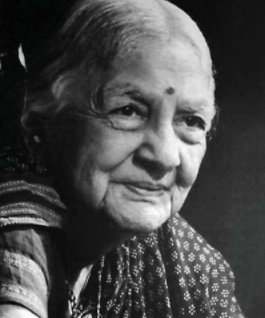
Kamaladevi Chattopadhyay
If you peep into the dim unknown history of India, the history of which is written not on palm leaves or papers, but is alive in the hearts of everyone of us, you will find that the position of women was indeed an enviable one. Never in the history of any country, at any time, has woman been so honoured as she has been in this country. Though apparently she seems to have lost her voice, she has always been the vital element in the evolution of the country and the nation. When I was travelling abroad, I was often asked how the suffragist movement in India was progressing. I could only tell them that there was no suffragist movement in India. In fact, there was no need for such a movement. The last few years have proved this. As soon as the new reforms came in the franchise was granted, and closely following upon its heels came the removal of the ban on sex-disqualification. The time has now come when women should come forward and share the responsibilities equally with men. All over the world women are now taking a keen and an active part in all departments of life.
The time has now come when women should come forward and share the responsibilities equally with men. All over the world women are now taking a keen and an active part in all departments of life.
I stand now as an Independent. I stand for no party or community. I stand as a representative of women. I am not a Swarajist candidate and I am not a member of the Swarajya Party. I do not believe in the policy of obstruction and walk-out. What the Swarajya programme for this year is, I do not know. Whether it is going to accept office or not, does not concern me. That temptation does not come in my way.
People have been questioning me what my political precedents are. I have been interested in politics for several years now. When the great Non-Co-operation Movement was started, my husband and I were pursuing studies in England. The great message came to us over the waters. Our hearts throbbed to the cries of the great nation. Gandhi’s message of love thrilled us, and we felt that we should not be led away by the glamor of foreign degrees. A golden opportunity had been offered to us to do our bit for our country. By the time we had completed our tour and landed in India, Mahatamaji had been imprisoned for some time. When we landed in India we were met by Mrs. [Sarojini] Naidu. The first question we asked her was: What was the condition of the country? She said there was no condition at all. Death had already set in. Our burning spirits were as defeated with this reply. We enlisted ourselves as Congress members and and tried to do our bit, but a good many difficulties arose in our way.
We soon found much of our precious time getting scattered. We then decided to do the same work through the arts and achieve the same end. So at the Belgaum Congress, we consulted Mahatmaji. He gladly assented to our plans and with his blessings we started upon our work. We have been trying to wake up the political consciousness of the country through poetry, through music and through drama. It was just a month ago that we met Mahatma Gandhi in Bombay and he said: “Though I am pressed with heavy work, I have found time to watch with pleasure your progress. Though I cannot be with you in person, let me admire you from a distance. When you have a little leisure come to my Ashram and show my boys the beauties of your art.” Even on the day I was leaving for Mangalore we received two wires asking us to go to him. It was indeed a great temptation I had to resist. All these three years, though I have not been active in the political field, all the time I have been in close touch with politics.
If women in other countries have proved competent enough to handle these problems I do not think an Indian woman will prove an exception. For years you have been sending men to the councils. Some of them have done something for this district. Others have done nothing. So even if a woman fails to fulfill your expectations you have not much to regret.
As to what work I shall do in the council, though no doubt I shall try to tackle problems that are intimately connected with women and children, I feel confident that with time and study I shall be in a position to handle general questions as well. During the course of my tour I have been observing and studying the local grievances. I have been trying to get first-hand information as to the Forest and Land Act. Some of the main problems agitating the public mind just now are the abolition of the old Rent Recovery Act without the introduction of any new compensating one and the Revenue Settlement Act. I have enough of leisure at my disposal to devote it to this work. I appeal to you to give me a chance. If women in other countries have proved competent enough to handle these problems I do not think an Indian woman will prove an exception. For years you have been sending men to the councils. Some of them have done something for this district. Others have done nothing. So even if a woman fails to fulfill your expectations you have not much to regret. Some of you may have some conscientious objections in supporting my candidature either on the ground of sex or otherwise. I appeal to them in that case, at least, to remain neutral as far as possible.
For, remember, when you work against me, you insult all womankind, you work against your own mothers, your sisters, your daughters.
When you lend me your support, it is not merely a personal favour you do to me, but you pay your homage to womankind. If the first Indian woman who has come forward in spite of all difficulties and obstacles is not helped, it will greatly discourage the women who in the future might stand for elections. So the privilege granted to women will be hardly of any service.
When you lend me your support, it is not merely a personal favour you do to me, but you pay your homage to womankind. If the first Indian woman who has come forward in spite of all difficulties and obstacles is not helped, it will greatly discourage the women who in the future might stand for elections. So the privilege granted to women will be hardly of any service. I am not concerned very much with the result. I shall do my best. I wish to prove to the world that a woman can fight and fight well in spite of everything. Woman in India has always stood for strength and not weakness. She is the Divine Shakti. Whether it is a mere sentiment or a living flame, will be proved by the elections.
Speech at Mahad (Mahad, December 1927)
BHIMRAO RAMJI AMBEDKAR
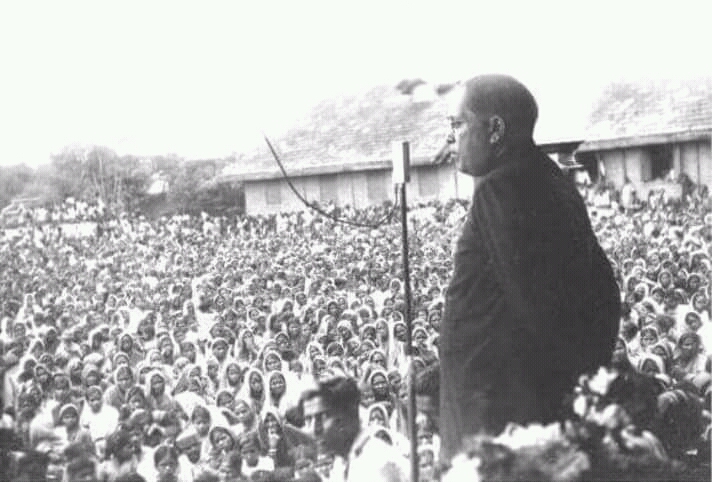
B.R. Ambedkar
Gentlemen, you have gathered here today in response to the invitation of the Satyagraha Committee. As the Chairman of that Committee, I gratefully welcome you all.
Many of you will remember that on the 19th of last March all of us came to the Chavadar Lake here. The caste Hindus of Mahad had laid no prohibition on us; but they showed they had objections to our going there by the attack they made. The fight brought results that one might have expected. The aggressive caste Hindus were sentenced to four months’ rigorous imprisonment, and are now in jail. If we had not been hindered on 19th March, it would have been proved that the caste Hindus acknowledge our right to draw water from the lake, and we should have had no need to begin our present undertaking.
Unfortunately we were thus hindered, and we have been obliged to call this meeting today. This lake at Mahad is public property. The caste Hindus of Mahad are so reasonable that they not only draw water from the lake themselves but freely permit people of any religion to draw water from it, and accordingly people of other religions such as the Islamic do make use of this permission. Nor do the caste Hindus prevent members of species considered lower than the human, such as birds and beasts, from drinking at the lake. Moreover, they freely permit beasts kept by untouchables to drink at the lake.
Caste Hindus are the very founts of compassion. They practise no hinsa and harass no one. They are not of the class of miserly and selfish folk who would grudge even a crow some grains of the food they are eating. The proliferation of sanyasis and mendicants is a living testimony to their charitable temperament. They regard altruism as religious merit and injury to another as a sin.
Even further, they have imbibed the principle that injury done by another must not be repaid but patiently endured, and so, they not only treat the harmless cow with kindness, but spare harmful creatures such as snakes. That one Atman or Spiritual Self dwells in all creatures has become a settled principle of their conduct. Such are the caste Hindus who forbid some human beings of their own religion to draw water from the Same Chavadar Lake! One cannot help asking the question, why do they forbid us alone?
Such are the caste Hindus who forbid some human beings of their own religion to draw water from the Same Chavadar Lake! One cannot help asking the question, why do they forbid us alone?
It is essential that all should understand thoroughly the answer to this question. Unless you do, I feel, you will not grasp completely the importance of today’s meeting. The Hindus are divided, according to sacred tradition, into four castes; but according to custom, into five: Brahmins, Kshatriyas, Vaishyas, Shudras and Atishudras. The caste system is the first of the governing rules of the Hindu religion. The second is that the castes are of unequal rank. They are ordered in a descending series of each meaner than the one before.
Not only are their ranks permanently fixed by the rule, but each is assigned boundaries it must not transgress, so that each one may at once be recognized as belonging to its particular rank. There is a general belief that the prohibitions in the Hindu religion against intermarriage, interdining, inter drinking and social intercourse are bounds set to degrees of association with one another. But this is an incomplete idea. These prohibitions are indeed limits to degrees of association; but they have been set to show people of unequal rank what the rank of each is. That is, these bounds are symbols of inequality.
Just as the crown on a man’s head shows he is a king, and the bow in his hand shows him to be a Kshatriya, the class to which none of the prohibitions applies is considered the highest of all and the one to which they all apply is reckoned the lowest in rank. The strenuous efforts made to maintain the prohibitions are for the reason that, if they are relaxed, the inequality settled by religion will break down and equality will take its place.
The caste Hindus of Mahad prevent the untouchables from drinking the water of the Chavadar Lake not because they suppose that the touch of the untouchables will pollute the water or that it will evaporate and vanish. Their reason for preventing the untouchables from drinking it is that they do not wish to acknowledge by such a permission that castes declared inferior by sacred tradition are in fact their equals.
Gentlemen! you will understand from this the significance of the struggle we have begun. Do not let yourselves suppose that the Satyagraha Committee has invited you to Mahad merely to drink the water of the Chavadar Lake of Mahad.
It is not as if drinking the water of the Chavadar Lake will make us immortal. We have survived well enough all these days without drinking it. We are not going to the Chavadar Lake merely to drink its water. We are going to the Lake to assert that we too are human beings like others. It must be clear that this meeting has been called to set up the norm of equality.
It is not as if drinking the water of the Chavadar Lake will make us immortal. We have survived well enough all these days without drinking it. We are not going to the Chavadar Lake merely to drink its water. We are going to the Lake to assert that we too are human beings like others. It must be clear that this meeting has been called to set up the norm of equality.
I am certain that no one who thinks of this meeting in this light will doubt that it is unprecedented. I feel that no parallel to it can be found in the history of India. If we seek for another meeting in the past to equal this, we shall have to go to the history of France on the continent of Europe. A hundred and thirty-eight years ago, on 24 January 1789, King Louis XVI had convened, by royal command, an assembly of deputies to represent the people of the kingdom. His French National Assembly has been much vilified by historians. The Assembly sent the King and the Queen of France to the guillotine; persecuted and massacred the aristocrats; and drove their survivors into exile. It confiscated the estates of the rich and plunged Europe into war for fifteen years. Such are the accusations leveled against the Assembly by the historians. In my view, the criticism is misplaced; further, the historians of this school have not understood the gist of the achievement of the French National Assembly. That achievement served the welfare not only of France but of the entire European continent. If European nations enjoy peace and prosperity today, it is for one reason: the revolutionary French National Assembly convened in 1789 set new principles for the organization of society before the disorganized and decadent French nation of its time, and the same principles have been accepted and followed by Europe.
To appreciate the importance of the French National Assembly and the greatness of its principles, we must keep in mind the suite of French society at the time. You are all aware that our Hindu society is based on the system of castes. A rather similar system of classes existed in the France of 1789: the difference was that it was a society of three castes. Like the Hindu society, the French had a class of Brahmins and another of Kshatriyas. But instead of three different castes of Vaishya, Shudra, and Atishudra, there was one class that comprehended these. This is a minor difference. The important thing is that the caste or class system was similar. The similarity to be noted is not only in the differentiation between classes: the inequality of our caste system was also to be found in the French social system. The nature of the inequality in the French society was different: it was economic in nature. It was, however, equally intense. The thing to bear in mind is there is a great similarity between the French National Assembly that met on 5 May 1789 at Versailles and our meeting today. The similarity is not only in the circumstances in which the two meetings took place but also in their ideals.
That Assembly of the French people was convened to reorganize French society. Our meeting today too has been convened to reorganize Hindu society. Hence, before discussing on what principles our society should be reorganized, we should all pay heed to the principles on which the French Assembly relied and the policy it adopted. The scope of the French Assembly was far wider than that of our present meeting. It had to carry out the threefold organization of the French political, social and religious systems. We must confine ourselves to how social and religious reorganization can be brought about. Since we are not, for the present, concerned with political reorganization, let us see what the French Assembly did in the matter of the religious and social reorganization of their nation. The policy adopted by the French National Assembly in this area can be seen plainly by anyone from three important proclamations issued by that Assembly. The first was issued on 17 June 1789. This was a proclamation about the class systems in France. As said before, French society was divided into three classes. The proclamation abolished the three classes and blended them into one. Further, it abolished the seats reserved separately for the three classes (or estates) in the political assembly. The second proclamation was about the priests. By ancient custom, to appoint or remove these priests was outside the power of the nation, that being the monopoly of a foreign religious potentate, the Pope. Anyone appointed by the Pope was a priest, whether or not he was fit to be one in the eyes of those to whom he was to preach. The proclamation abolished the autonomy of the religious orders and assigned to the French nation the authority to decide who might follow this vocation, who was fit for it and who was not, whether he was to be paid for preaching or not, and so on. The third proclamation was not about the political, economic or religious systems. It was of a general nature and laid down the principles on which all social arrangements ought to rest. From that point of view, the third proclamation is the most important of the three; it might be called the king of these proclamations. It is renowned the world over as the declaration of human birthrights. It is not only unprecedented in the history of France; more than that, it is unique in the history of civilized nations. For every European nation has followed the French Assembly in giving it a place in its own constitution. So one may say that it brought about a revolution not only in France but the whole world. This proclamation has seventeen clauses, of which the following are important:
Any person is free to act according to his birthright. Any limit placed upon this freedom must be only to the extent necessary to permit other persons to enjoy their birthrights. Such limits must be laid down by law: they cannot be set on the grounds of the religion or on any other basis than the law of the land.
1) All human beings are equal by birth; and they shall remain equal till death. They may be distinguished in status only in the public interest. Otherwise, their equal status must be maintained.
2) The ultimate object of politics is to maintain these human birthrights.
3) The entire nation is the mother-source of sovereignty. The rights of any individual, group or special class, unless they are given by the nation, cannot be acknowledged as valid on any other ground, be it political or religious.
4) Any person is free to act according to his birthright. Any limit placed upon this freedom must be only to the extent necessary to permit other persons to enjoy their birthrights. Such limits must be laid down by law: they cannot be set on the grounds of the religion or on any other basis than the law of the land.
5) The law will forbid only such actions as are injurious to society. All must be free to do what has not been forbidden by law. Nor can anyone be compelled to do what the law has not laid down as a duty.
6) The law is not in the nature of bounds set by any particular class. The right to decide what the law shall be rests with the people or their representatives. Whether such a law is protective or punitive, it must be the same for all. Since justice requires that all social arrangements be based on the equality of all, all individuals are equally eligible for any kind of honour, power and profession. Any distinction in such matters must be owing to differences of individual merit; it must not be based on birth.
I feel our meeting today should keep the image of this French National Assembly before the mind. The road it marked out for the development of the French nation, the road that all progressed nations have followed, ought to be the road adopted for the development of Hindu society by this meeting. We need to pull away the nails which hold the framework of caste-bound Hindu society together, such as those of the prohibition of intermarriage down to the prohibition of social intercourse so that Hindu society becomes all of one caste. Otherwise untouchability cannot be removed nor can equality be established.
To raise men, aspiration is needed as much as outward efforts. Indeed it is to be doubted whether efforts are possible without aspiration. Hence, if a great effort is to be made, a great aspiration must be nursed. In adopting an aspiration one need not be abashed or deterred by doubts about one’s power to satisfy it. One should be ashamed only of mean aspirations; not of failure that may result because one’s aspiration is high. If untouchability alone is removed, we may change from Atishudras to Shurdas; but can we say that this radically removes untouchability? If such puny reforms as the removal of restrictions on social intercourse etc. were enough for the eradication of untouchability I would not have suggested that the caste system itself must go.
Some of you may feel that since we are untouchables, it is enough if we are set free from the prohibitions of interdrinking and social intercourse. That we need not concern ourselves with the caste system; how does it matter if it remains? In my opinion, this is a total error. If we leave the caste system alone and adopt only the removal of untouchability as our policy, people will say that we have chosen a low aim. To raise men, aspiration is needed as much as outward efforts. Indeed it is to be doubted whether efforts are possible without aspiration. Hence, if a great effort is to be made, a great aspiration must be nursed. In adopting an aspiration one need not be abashed or deterred by doubts about one’s power to satisfy it. One should be ashamed only of mean aspirations; not of failure that may result because one’s aspiration is high. If untouchability alone is removed, we may change from Atishudras to Shurdas; but can we say that this radically removes untouchability? If such puny reforms as the removal of restrictions on social intercourse etc. were enough for the eradication of untouchability I would not have suggested that the caste system itself must go. Gentlemen! You all know that if a snake is to be killed it is not enough to strike at its tail – its head must be crushed. If any harm is to be removed, one must seek out its root and strike at it. An attack must be based on the knowledge of the enemy’s vital weakness. Duryodhana was killed because Bheema struck at his thigh with his mace. If the mace had hit Durydhana’s head he would not have died; for his thigh was his vulnerable spot. One finds many instances of a physician’s efforts to remove a malady proving fruitless because he has not perceived fully what will get rid of the disease; similar instances of failure to root out a social disease when it is not fully diagnosed are rarely recorded in history; and so one does not often become aware of them. But let me acquaint you with one such instance that I have come across in my reading. In the ancient European nation of Rome, the patricians were considered upper class, and the plebians, lower class. All power was in the hands of, the patricians, and they used it to ill-treat the plebians. To free themselves from this harassment, the plebians, on the strength of their unity, insisted that laws should be written down for the facilitation of justice and for the information of all. Their patrician opponents agreed to this; and a charter of twelve laws was written down. But this did not rid the oppressed plebians of their woes. For the officers who enforced the laws were all of the patrician class; moreover, the chief officer, called the tribune, was also a patrician. Hence, though the laws were uniform, there was partiality in their enforcement. The plebians then demanded that instead of the administration being in the hands of one tribune there should be two tribunes, of whom one should be elected by the plebians and the other by the patricians. The patricians yielded to this too, and the plebians rejoiced, supposing they would now be free of their miseries. But their rejoicing was short-lived. The Roman people had a tradition that nothing was to be done without the favourable verdict of the oracle at Delphi. Accordingly, even the election of a duly elected tribune – if the oracle did not approve of him – had to be treated as annulled, and another had to be elected, of whom the oracle approved. The priest who put the question to the oracle was required, by sacred religious custom, to be one born of parents married in the mode the Romans called conferatio and this mode of marriage prevailed only among the patricians; so that the priest of Delphi was always a patrician.
The wily priest always saw to it that if the plebians elected a man really devoted to their cause, the oracle went against him. Only if the man elected by the plebians to the position of tribune was amenable to the patricians, would the oracle favour him and give him the opportunity of actually assuming office. What did the plebians gain by their right to elect a tribune? The answer must be, nothing in reality. Their efforts proved meaningless because they did not trace the malady to its source. If they had, they would, at the same time that they demanded a tribune of their election, have also settled the question of who should be the priest at Delphi. The disease could not be eradicated by demanding a tribune; it needed control of the priestly office; which the plebians failed to perceive. We too, while we seek a way to remove untouchability, must inquire closely into what will eradicate the disease; otherwise we too may miss our aim. Do not be foolish enough to believe that removal of the restrictions on social intercourse or interdrinking will remove untouchability.
Remember that if the prohibitions on social intercourse and interdrinking go, the roots of untouchability are not removed. Release from these two restrictions will, at the most, remove untouchability as it appears outside the home; but it will leave untouchability in the home untouched. If we want to remove untouchability in the home as well as outside, we must break down the prohibition against intermarriage. Nothing else will serve. From another point of view, we see that breaking down the bar against intermarriage is the way to establish real equality. Anyone must confess that when the root division is dissolved, incidental points of separateness will disappear by themselves. The interdictions on interdining, interdrinking and social intercourse have all sprung from the one interdiction against intermarriage. Remove the last and no special efforts are needed to move the rest. They will disappear of their own accord. In my view the removal of untouchability consists in breaking down the ban on intermarriage and doing so will establish real equality. If we wish to cut out untouchability, we must recognize that the root of untouchability is in the ban on intermarriage. Even if our attack today is on the ban against interdrinking, we must press it home against the ban on intermarriage; otherwise untouchability cannot be removed by the roots. Who can accomplish this task? It is no secret that the Brahmin class cannot do it.
If we wish to cut out untouchability, we must recognize that the root of untouchability is in the ban on intermarriage. Even if our attack today is on the ban against interdrinking, we must press it home against the ban on intermarriage; otherwise untouchability cannot be removed by the roots. Who can accomplish this task? It is no secret that the Brahmin class cannot do it.
While the caste system lasts, the Brahmin caste has its supremacy. No one, of his own will, surrenders power which is in his hands. The Brahmins have exercised their sovereignty over all other castes for centuries. It is not likely that they will be willing to give it up and treat the rest as equals. The Brahmins do not have the patriotism of the Samurais of Japan. It is useless to hope that they will sacrifice their privileges as the Samurai class did, for the sake of national unity based on a new equality. Nor does it appear likely that the task will be carried out by other caste Hindus. These others, such as the class comprising the Marathas and other similar castes, are a class between the privileged and those without any rights.
A privileged class, at the cost of a little self-sacrifice, can show some generosity. A class without any privileges has ideals and aspirations; for, at least as a matter of self-interest, it wishes to bring about a social reform. As a result it develops an attachment to principles rather than to self-interest. The class of caste Hindus, other than Brahmins, lies in between: it cannot practise the generosity possible to the class above and it does not develop the attachment to principles that develops in the class below. This is why this class is seen to be concerned not so much about attaining equality with the Brahmins as about maintaining its status above the untouchables.
For the purposes of the social reform required, the class of caste Hindus other than Brahmins is feeble. If we are to await its help, we should fall into the difficulties that the farmer faced, who depended on his neighbour’s help for his harvesting, as in the story of the mother lark and her chicks found in many textbooks.
The task of removing untouchability and establishing equality that we have undertaken, we must carry out ourselves. Others will not do it. Our life will gain its true meaning if we consider that we are born to carry out this task and set to work in earnest. Let us receive this merit which is awaiting us.
The task of removing untouchability and establishing equality that we have undertaken, we must carry out ourselves. Others will not do it. Our life will gain its true meaning if we consider that we are born to carry out this task and set to work in earnest. Let us receive this merit which is awaiting us.
This is a struggle in order to raise ourselves; hence we are bound to undertake it, so as to remove the obstacles to our progress. We all know how at every turn, untouchability muddies and soils our whole existence. We know that at one time our people were recruited in large numbers into the troops. It was a kind of occupation socially assigned to us and few of us needed to be anxious about earning our bread. Other classes of our level have found their way into the troops, the police, the courts and the offices, to earn their bread. But in the same areas of employment you will no longer find the untouchables.
It is not that the law debars us from these jobs. Everything is permissible as far the law is concerned. But the Government finds itself powerless because other Hindus consider us untouchables and look down upon us, and it acquiesces in our being kept out of Government jobs. Nor can we take up any decent trade. It is true, partly, that we lack money to start business, but the real difficulty is that people regard us as untouchables and no one will accept goods from our hands.
To sum up, untouchability is not a simple matter; it is the mother of all our poverty and lowliness and it has brought us to the abject state we are in today. If we want to raise ourselves out of it, we must undertake this task. We cannot be saved in any other way. It is a task not for our benefit alone; it is also for the benefit of the nation.
Untouchability is not a simple matter; it is the mother of all our poverty and lowliness and it has brought us to the abject state we are in today. If we want to raise ourselves out of it, we must undertake this task. We cannot be saved in any other way. It is a task not for our benefit alone; it is also for the benefit of the nation.
Hindu society must sink unless the untouchability that has become a part of the four-castes system is eradicated. Among the resources that any society needs in the struggle for life, a great resource is the moral order of that society. And everyone must admit that a society in which the existing moral order upholds things that disrupt the society and condemns those that would unite the members of the society, must find itself defeated in any struggle for life with other societies. A society which has the opposite moral order, one in which things that unite are considered laudable and things that divide are condemned, is sure to succeed in any such struggle.
This principle must be applied to Hindu society. Is it any wonder that it meets defeat at every turn when it upholds a social order that fragments its members, though it is plain to anyone who sees it that the four-castes system is such a divisive force and that a single caste for all, would unite society? If we wish to escape these disastrous conditions, we must break down the framework of the four-castes system and replace it by a single caste system.
Even this will not be enough. The inequality inherent in the four-castes system must be rooted out. Many people mock at the principles of equality. Naturally, no man is another’s equal. One has an impressive physique; another is slow-witted. The mockers think that, in view of these inequalities that men are born with, the egalitarians are absurd in telling us to regard them as equals. One is forced to say that these mockers have not understood fully the principle of equality.
If the principle of equality means that privilege should depend, not on birth, wealth, or anything else, but solely on the merits of each man, then how can it be demanded that a man without merit, and who is dirty and vicious, should be treated on a level with a man who has merit and is clean and virtuous? Such is a counter-question sometimes posed. It is essential to define equality as giving equal privileges to men of equal merit.
But before people have had an opportunity to develop their inherent qualities and to merit privileges, it is just to treat them all equally. In sociology, the social order is itself the most important factor in the full development of qualities that any person may possess at birth. If slaves are constantly treated unequally, they will develop no qualities other than those appropriate to slaves, and they will never become fit for any higher status. If the clean man always repulses the unclean man and refuses to have anything to do with him, the unclean man will never develop the aspiration to become clean. If the criminal or immoral castes are given no refuge by the virtuous castes, the criminal castes will never learn virtue.
The examples given above show that, although an equal treatment may not create good qualities in one who does not have them at all, even such qualities where they exist need equal treatment for their development; also, developed good qualities are wasted and frustrated without equal treatment.
On the one hand, the inequality in Hindu society stuns the progress of individuals and in consequence stunts society. On the other hand, the same inequality prevents society from bringing into use powers stored in individuals. In both ways, this inequality is weakening Hindu society, which is in disarray because of the four-castes system.
Hence, if Hindu society is to be strengthened, we must uproot the four-castes system and untouchability, and set the society on the foundations of the two principles of one caste only and of equality. The way to abolish untouchability is not any other than the way to invigorate Hindu society. Therefore I say that our work is beyond doubt as much for the benefit of the nation as it is in our own interest.
If Hindu society is to be strengthened, we must uproot the four-castes system and untouchability, and set the society on the foundations of the two principles of one caste only and of equality. The way to abolish untouchability is not any other than the way to invigorate Hindu society. Therefore I say that our work is beyond doubt as much for the benefit of the nation as it is in our own interest.
Our work has been begun to bring about a real social revolution. Let no one deceive himself by supposing that it is a diversion to quieten minds entranced with sweet words. The work is sustained by strong feeling, which is the power that drives the movement. No one can now arrest it. I pray to God that the social revolution which begins here today may fulfill itself by peaceful means.
None can doubt that the responsibility of letting the revolution take place peacefully rests more heavily on our opponents than on us. Whether this social revolution will work peacefully or violently will depend wholly on the conduct of the caste Hindus. People who blame the French National Assembly of 1789 for atrocities forget one point. That is, if the rulers of France had not been treacherous to the Assembly, if the upper classes had not resisted it, had not committed the crime of trying to suppress it with foreign help, it would have had no need to use violence in the work of the revolution and the whole social transformation would have been accomplished peacefully.
We say to our opponents too: please do not oppose us. Put away the orthodox scriptures. Follow justice. And we assure you that we shall carry out our programme peacefully.
Purna Swaraj (Lahore, December 1929)
JAWAHARLAL NEHRU
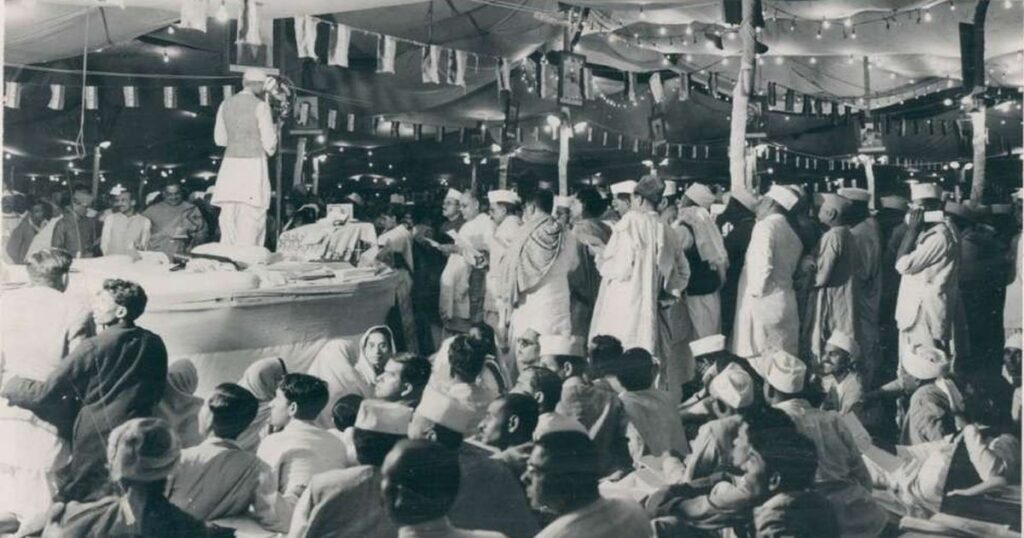
Pledge for Purna Swaraj, Jawaharlal Nehru
Comrades— for four and forty years this National Congress has laboured for the freedom of India. During this period it has somewhat slowly, but surely, awakened national consciousness from its long stupor and built up the national movement. If, today we are gathered here at a crisis of our destiny, conscious of our strength as well as of our weakness, and looking with hope and apprehension to the future, it is well that we give first thought to those who have gone before us and who spent out their lives with little hope of reward, so that those that followed them may have the joy of achievement. Many of the giants of old are not with us and we of a later day, standing on an eminence of their creation, may often decry their efforts. That is the way of the world. But none of you can forget them or the great work they did in laying the foundations of a free India. And none of us can ever forget that glorious band of men and women who, without tacking the consequences, have laid down their young lives or spent their bright youth in suffering and torment in utter protest against a foreign domination.
Many of their names even are not known to us. They laboured and suffered in silence without any expectation of public applause, and by their heart’s blood they nursed the tender plant of India’s freedom. While many of us temporized and compromised, they stood up and proclaimed a people’s right to freedom and declared to the world that India, even in her degradation, had the spark of life in her, because she refused to submit to tyranny and serfdom. Brick by brick has our national movement been built up, and often on the prostrate bodies of her martyred sons has India advanced. The giants of old may not be with us, but the courage of old is with us still and India can yet produce martyrs like Jatin Das and Wizaya. This is the glorious heritage that we have inherited and you wish to put me in charge of it. I know well that I occupy this honoured place by chance more than by your deliberate design. Your desire was to choose another — one who towers above all others in this present day world of ours — and there could have been no wiser choice. But fate and he conspired together and thrust me against your will and mine into this terrible seat of responsibility. Should I express my gratitude to you for having placed me in this dilemma? But I am grateful indeed for your confidence in one who strangely lacks it himself.
Brick by brick has our national movement been built up, and often on the prostrate bodies of her martyred sons has India advanced. The giants of old may not be with us, but the courage of old is with us still and India can yet produce martyrs like Jatin Das and Wizaya. This is the glorious heritage that we have inherited and you wish to put me in charge of it.
You will discuss many vital national problems that face us today and your decisions may change the course of Indian history. But you are not the only people that are faced with problems. The whole world today is one vast question-mark and every country and every people is in the melting pot. The age of faith, with the comfort and stability it brings, is past and there is questioning about everything, however permanent or sacred it might have appeared to our forefathers. Everywhere, there is doubt and restlessness and the foundations of the state and society are in process of transformation. Old established ideas of liberty, justice, property, and even the family are being attacked and the outcome hangs in the balance. We appear to be in a dissolving period of history when the world is in labour and out of her travail will give birth to a new order.
The future lies with America and Asia. Owing to false and incomplete history many of us have been led to think that Europe has always dominated over the rest of the world, and Asia has always let the legions of the West thunder past and plunged in thought again. We have forgotten that for millennia the legions of Asia overran Europe and modern Europe itself largely consists of the descendants of these invaders from Asia. We have forgotten that it was India that finally broke the military power of Alexander.
No one can say what the future will bring, but we may assert with some confidence that Asia and even India, will play a determining part in future world policy. The brief day of European domination is already approaching its end. Europe has ceased to be the centre of activity and interest. The future lies with America and Asia. Owing to false and incomplete history many of us have been led to think that Europe has always dominated over the rest of the world, and Asia has always let the legions of the West thunder past and plunged in thought again. We have forgotten that for millennia the legions of Asia overran Europe and modern Europe itself largely consists of the descendants of these invaders from Asia. We have forgotten that it was India that finally broke the military power of Alexander.
Thought has undoubtedly been the glory of Asia and specially of India, but in the field of action the record of Asia has been equally great. But none of us desires that the legions of Asia or Europe should overrun the continents again. We have all had enough of them.
India today is a part of a world movement. Not only China, Turkey, Persia, and Egypt but also Russia and the countries of the West are taking part in this movement, and India cannot isolate herself from it. We have our own problems — difficult and intricate — and we cannot run away from them and take shelter in the wider problems that affect the world. But if we ignore the world, we do so at our peril. Civilization today, such as it is, is not the creation or monopoly of one people or nation. It is a composite fabric to which all countries have contributed and then have adapted to suit their particular needs. And if India has a message to give to the world as I hope she has, she has also to receive and learn much from the messages of other peoples.
Few things in history are more amazing than the wonderful stability of the social structure in India, which withstood the impact of numerous alien influences and thousands of years of change and conflict. It withstood them because it always sought to absorb them and tolerate them. Its aim was not to exterminate, but to establish an equilibrium between different cultures. Aryans and non-Aryans settled down together recognizing each other’s right to their culture, and outsiders who came, like the Parsis, found a welcome and a place in the social order. With the coming of the Muslims, the equilibrium was disturbed, but India sought to restore it, and largely succeeded. Unhappily for us before we could adjust our differences, the political structure broke down, the British came and we fell.
When everything is changing it is well to remember the long course of Indian history. Few things in history are more amazing than the wonderful stability of the social structure in India, which withstood the impact of numerous alien influences and thousands of years of change and conflict. It withstood them because it always sought to absorb them and tolerate them. Its aim was not to exterminate, but to establish an equilibrium between different cultures. Aryans and non-Aryans settled down together recognizing each other’s right to their culture, and outsiders who came, like the Parsis, found a welcome and a place in the social order. With the coming of the Muslims, the equilibrium was disturbed, but India sought to restore it, and largely succeeded. Unhappily for us before we could adjust our differences, the political structure broke down, the British came and we fell.
Great as was the success of India in evolving a stable society, she failed and in a vital particular, and because she failed in this, she fell and remains fallen. No solution was found for the problem of equality. India deliberately ignored this and built up her social structure on inequality, and we have the tragic consequences of this policy in the millions of our people who till yesterday were suppressed and had little opportunity for growth.
And yet when Europe fought her wars of religion and Christians massacred each other in the name of their saviour, India was tolerant, although alas, there is little of this toleration today. Having attained some measure of religious liberty, Europe sought after political liberty, and political and legal equality. Having attained these also, she finds that they mean very little without economic liberty and equality. And so today politics have ceased to have much meaning and the most vital question is that of social and economic equality.
India also will have to find a solution to this problem and until she does so, her political and social structure cannot have stability. That solution need not necessarily follow the example of any other country. It must, if it has to endure, be based on the genius of her people and be an outcome of her thought and culture. And when it is found, the unhappy differences between various communities, which trouble us today and keep back our freedom, will automatically disappear.
What shall we gain for ourselves or for our community, if all of us are slaves in a slave country? And what can we lose if once we remove the shackles from India and can breathe the air of freedom again? Do we want outsiders who are not of us and who have kept us in bondage, to be the protectors of our little rights and privileges, when they deny us the very right to freedom? No majority can crush a determined minority and no minority can be protected by a little addition to its seats in a legislature. Let us remember that in the world today, almost everywhere a very small minority holds wealth and power and dominates over the great majority.
Indeed, the real differences have already largely gone, but fear of each other and distrust and suspicion remain and sow seeds of discord. The problem is how to remove fear and suspicion and, being intangible, they are hard to get at. An earnest attempt was made to do so last year by the All Parties’ Committee and much progress was made towards the goal. But we must admit with sorrow that success has not wholly crowned its efforts. Many of our Muslim and Sikh friends have strenuously opposed the solutions suggested and passions have been roused over mathematical figures and percentages. Logic and cold reasons are poor weapons to fight fear and distrust. Only faith and generosity can overcome them. I can only hope that the leaders of various communities will have this faith and generosity in ample measure. What shall we gain for ourselves or for our community, if all of us are slaves in a slave country? And what can we lose if once we remove the shackles from India and can breathe the air of freedom again? Do we want outsiders who are not of us and who have kept us in bondage, to be the protectors of our little rights and privileges, when they deny us the very right to freedom? No majority can crush a determined minority and no minority can be protected by a little addition to its seats in a legislature. Let us remember that in the world today, almost everywhere a very small minority holds wealth and power and dominates over the great majority.
I have no love for bigotry and dogmatism in religion and I am glad that they are weakening. Nor do I love communalism in any shape or form. I find it difficult to appreciate why political or economic rights should depend on the membership of a religious group or community. I can fully understand the right to freedom in a religion and the right to one’s culture, and in India specially, which has always acknowledged and granted these rights, it should be no difficult matter to ensure their continuance We have only to find out some way whereby we may root out the fear and distrust that darken our horizon today. The politics of a subject race are largely based on fear and hatred, and we have been too long under subjection to get rid of them easily.
The politics of a subject race are largely based on fear and hatred, and we have been too long under subjection to get rid of them easily.
I was born a Hindu but I do not know how far I am justified in calling myself one or in speaking on behalf of Hindus. But birth still counts in this country and by right of birth I shall venture to submit to the leaders of the Hindus that it should be their privilege to take the lead in generosity. Generosity is not only good morals, but is often good politics and sound expediency. And it is inconceivable to me that in a free India, the Hindus can ever be powerless. So far as I am concerned, I would gladly ask our Muslim and Sikh friends to take what they will without protest and argument from me. I know that the time is coming soon when these labels and appellations will have little meaning and when our struggle will be on an economic basis. Meanwhile, it matters little what our mutual arrangements are, provided only that we do not build up barriers which will come in the way of our future progress.
The time has indeed already come when the All Parties’ Report has to be put aside and we march forward unfettered to our goal. You will remember that the resolution of the last Congress fixed a year of grace for the adoption of the All-Parties scheme. That year is nearly over and the natural issue of that decision is for this Congress to declare in favour of independence and devise sanctions to achieve it.
Recently, there has been a seeming offer of peace. The Viceroy has stated on behalf of the British Government that the leaders of Indian opinion will be invited to confer with the government on the subject of India’s future Constitution. The Viceroy meant well and his language was the language of peace. But even a Viceroy’s goodwill and courteous phrases are poor substitutes for the hard facts that confront us. We have sufficient experience of the devious ways of British diplomacy to beware of it. The offer which the British Government made was vague and there was no commitment or promise of performance. Only by the greatest stretch of imagination could it be interpreted as a possible response to the Calcutta resolution. Many leaders of various political parties met together soon after and considered it. They gave it the most favourable interpretation, for they desired peace and were willing to go half-way to meet it. But in courteous language they made it clear what the vital conditions for its acceptance were.
Many of us who believed in independence and were convinced that the offer was only a device to lead us astray and create division in our ranks, suffered bitter anguish and were torn with doubt. Were we justified in precipitating a terrible national struggle with all its inevitable consequences of suffering for many, when there was even an outside chance of honourable peace? With much searching of heart we signed that manifesto and I know not today if we did right or wrong. Later came the explanations and amplifications in the British Parliament and elsewhere and all doubt, if doubt there was, was removed as to the true significance of the offer. Even so your Working Committee chose to keep open the door of negotiation and left it to this Congress to take the final decision.
During the last few days there has been another discussion of this subject in the British House of Commons and the Secretary of State for India has endeavoured to point out that successive governments have tried to prove, not only by words but by deeds also, the sincerity of their faith in regard to India. We must recognize Mr Wedgwood Benn’s desire to do something for India and his anxiety to secure the goodwill of the Indian people. But his speech and other speeches made in Parliament carry us no further. ‘Dominion Status in action’, to which he has drawn attention has been a snare for us and has certainly not reduced the exploitation of India.
The burdens on the Indian masses are even greater today, because of this ‘Dominion Status in action’ and the so-called constitutional reforms of ten years ago. High Commissioners in London and representatives of the League of Nations, and the purchase of stores, and Indian Governors and high officials are no parts of our demand. We want to put an end to the exploitation of India’s poor and to get the reality of power and not merely the livery of office. Mr Wedgwood Benn has given us a record of the achievements of the past decade. He could have added to it by referring to Martial Law in the Punjab and the Jallianwala Bagh shooting and the repression and exploitation that have gone on continually during this period of ‘Dominion Status in action.’ He has given us some insight into what more of Dominion Status may mean for us. It will mean the shadow of authority to a handful of Indians and more repression and exploitation of the masses.
What will this Congress do? The conditions for cooperation remain unfulfilled. Can we cooperate so long as there is no guarantee that real freedom will come to us? Can we cooperate when our comrades lie in prison and repression continues? Can we cooperate until we are assured that real peace is sought after and not merely a tactical advantage over us? Peace cannot come at the point of the bayonet, and if we are to continue to be dominated over by an alien people, let us at least be no consenting parties to it.
What will this Congress do? The conditions for cooperation remain unfulfilled. Can we cooperate so long as there is no guarantee that real freedom will come to us? Can we cooperate when our comrades lie in prison and repression continues? Can we cooperate until we are assured that real peace is sought after and not merely a tactical advantage over us? Peace cannot come at the point of the bayonet, and if we are to continue to be dominated over by an alien people, let us at least be no consenting parties to it.
If the Calcutta resolution holds, we have but one goal today, that of independence. Independence is not a happy word in the world today; for it means exclusiveness and isolation. Civilization has had enough of narrow nationalism and gropes towards a wider cooperation and inter-dependence. And if we use the word ‘independence’, we do so in no sense hostile to the larger ideal. Independence for us means complete freedom from British domination and British imperialism. Having attained our freedom, I have no doubt that India will welcome all attempts at world-cooperation and federation, and will even agree to give up part of her own independence to a larger group of which she is an equal member.
Independence is not a happy word in the world today; for it means exclusiveness and isolation. Civilization has had enough of narrow nationalism and gropes towards a wider cooperation and inter-dependence. And if we use the word ‘independence’, we do so in no sense hostile to the larger ideal. Independence for us means complete freedom from British domination and British imperialism. Having attained our freedom, I have no doubt that India will welcome all attempts at world-cooperation and federation, and will even agree to give up part of her own independence to a larger group of which she is an equal member.
The British Empire today is not such a group and cannot be so long as it dominates over millions of people and holds large areas of the world’s surface despite the will of their inhabitants. It cannot be a true commonwealth so long as imperialism is its basis and the exploitation of other races its chief means of sustenance. The British Empire today is indeed gradually undergoing a process of political dissolution. It is in a state of unstable equilibrium. The Union of South Africa is not a happy member of the family, nor is the Irish Free State, a willing one. Egypt drifts away. India could never be an equal member of the Commonwealth unless imperialism and all it implies is discarded. So long as this is not done, India’s position in the empire must be one of subservience and her exploitation will continue.
There is talk of world-peace and pacts have been signed by the nations of the world. But despite pacts, armaments grow and beautiful language is the only homage that is paid to the goddess of peace. Peace can only come when the causes of war are removed. So long as there is the domination of one country over another, or the exploitation of one class by another, there will always be attempts to subvert the existing order and no stable equilibrium can endure. Out of imperialism and capitalism peace can never come. And it is because the British Empire stands for these and bases itself on the exploitation of the masses that we can find no willing place in it. No gain that may come to us is worth anything unless it helps in removing the grievous burdens on our masses. The weight of a great empire is heavy to carry and long our people have endured it. Their backs are bent down and their spirit has almost broken. How will they share in the Commonwealth partnership if the burden of exploitation continues? Many of the problems we have to face are the problems of vested interests mostly created or encouraged by the British Government. The interests of the Rulers of Indian States, of British officials and British capital and Indian capital and of the owners of big zamindaris are ever thrust before us, and they clamour for protection. The unhappy millions who really need protection are almost voiceless and have few advocates.
We have had much controversy about independence and Dominion Status and we have quarrelled about words. But the real thing is the conquest of power by whatever name it may be called. I do not think that any form of Dominion Status applicable to India will give us real power. A test of this power would be the entire withdrawal of the alien army of occupation and economic control. Let us, therefore, concentrate on these and the rest will follow easily.
We stand therefore today, for the fullest freedom of India. This Congress has not acknowledged and will not acknowledge the right of the British Parliament to dictate to us in any way. To it we make no appeal. But we do appeal to the Parliament and the conscience of the world, and to them we shall declare, I hope, that India submits no longer to any foreign domination. Today or tomorrow, we may not be strong enough to assert our will. We are very conscious of our weakness, and there is no boasting in us or pride of strength. But let no one, least of all England, mistake or underrate the meaning or strength of our resolve. Solemnly, with full knowledge of consequences, I hope, we shall take it and there will be no turning back. A great nation cannot be thwarted for long when once its mind is clear and resolved. If today we fail and tomorrow brings no success, the day after will follow and bring achievement.
We stand therefore today, for the fullest freedom of India. This Congress has not acknowledged and will not acknowledge the right of the British Parliament to dictate to us in any way. To it we make no appeal. But we do appeal to the Parliament and the conscience of the world, and to them we shall declare, I hope, that India submits no longer to any foreign domination. Today or tomorrow, we may not be strong enough to assert our will. We are very conscious of our weakness, and there is no boasting in us or pride of strength. But let no one, least of all England, mistake or underrate the meaning or strength of our resolve. Solemnly, with full knowledge of consequences, I hope, we shall take it and there will be no turning back. A great nation cannot be thwarted for long when once its mind is clear and resolved. If today we fail and tomorrow brings no success, the day after will follow and bring achievement.
We are weary of strife and hunger for peace and opportunity to work constructively for our country. Do we enjoy the breaking up of our homes and the sight of our brave young men going to prison or facing the halter? Does the worker like going on strike to lose even his miserable pittance and starve? He does so by sheer compulsion when there is no other way for him. And we who take this perilous path of national strife do so because there is no other way to an honourable peace. But we long for peace, and the hand of fellowship will always be stretched out to all who may care to grasp it. But behind the hand will be a body which will not bend to injustice and a mind that will not surrender on any vital point.
With the struggle before us, the time for determining our future Constitution is not yet. For two years or more we have drawn up constitutions and finally the All-Parties’ Committee put a crown to these efforts by drawing up a scheme of its own which the Congress adopted for a year. The labour that went to the making of this scheme was not wasted and India has profited by it. But the year is past and we have to face new circumstances which require action rather than constitution-making. Yet we cannot ignore the problems that beset us and that will make or mar our struggle and our future constitution. We have to aim at social adjustment and equilibrium and to overcome the forces of disruption that have been the bane of India.
I must frankly confess that I am a socialist and a republican and am no believer in kings and princes, or in the order which produces the modern kings of industry, who have greater power over the lives and fortunes of men than even kings of old, and whose methods are as predatory as those of the old feudal aristocracy. I recognize, however, that it may not be possible for a body constituted as in this National Congress and in the present circumstances of the country to adopt a full socialistic programme. But we must realize that the philosophy of socialism has gradually permeated the entire structure of society the world over and almost the only points in dispute are the pace and methods of advance to its full realization. India will have to go that way too if she seeks to end her poverty and inequality, though she may evolve her own methods and may adapt the ideal to the genuine of her race.
We have three major problems, the minorities, the Indian states, and labour and peasantry. I have dealt already with the question of minorities. I shall only repeat that we must give the fullest assurance by our words and our deeds that their culture and traditions will be safe.
The Indian states cannot live apart from the rest of India and their rulers must, unless they accept their inevitable limitations, go the way of others who thought like them. And the only people who have a right to determine the future of the states must be the people of these states, including the rulers. This Congress which claims self-determination cannot deny it to the people of the states. Meanwhile, the Congress is perfectly willing to confer with such rulers as are prepared to do so and to devise means whereby the transition may not be too sudden. But in no event can the people of the states be ignored.
Our third major problem is the biggest of all. For India means the peasantry and labour and to the extent that we raise them and satisfy their wants will we succeed in our task. And the measure of the strength of our national movement will be the measure of their adherence to it. We can only gain them to our side by our espousing their cause which is really the country’s cause. The Congress has often expressed its goodwill towards them; but beyond that it has not gone. The Congress, it is said, must hold the balance fairly between capital and labour and zamindar and tenant.
But the balance has been and is terribly weighed on one side, and to maintain the status quo is to maintain injustice and exploitation. The only way to right it is to do away with the domination of any one class over another. The All-India Congress Committee accepted this ideal of social and economic change in a resolution it passed some months ago in Bombay. I hope the Congress will also set its seal on it and will further draw up a programme of such changes as can be immediately put in operation.
In this programme perhaps the Congress as a whole cannot go very far today. But it must keep the ultimate ideal in view and work for it. The question is not one merely of wages and charity doled out by an employer or landlord. Paternalism in industry or in the land is but a form of charity with all its sting and its utter incapacity to root out the evil. The new theory of trusteeship, which some advocate, is equally barren. For trusteeship means that the power for good or evil remains with the self-appointed trustee and he may exercise it as he will. The sole trusteeship that can be fair is the trusteeship of the nation and not of one individual or a group. Many Englishmen honestly consider themselves the trustees for India, and yet to what a condition they have reduced our country.
We must decide for whose benefit industry must be run and the land produce food. Today the abundance that the land produces is not for the peasant or the labourer who works on it; and industry’s chief function is supposed to be to produce millionaires. However golden the harvest and heavy the dividends, the mud-huts and hovels and nakedness of our people testify to the glory of the British Empire and of our present social system.
Our economic programme must therefore be based on a human outlook and must not sacrifice man to money. If an industry cannot be run without starving its workers, then the industry must be closed down. If the workers on the land have not enough to eat then the intermediaries who deprive them of their full share must go. The least that every worker in the field or factory is entitled to is a minimum wage which will enable him to live in moderate comfort, and human hours of labour which do not break his strength and spirit.
Our economic programme must therefore be based on a human outlook and must not sacrifice man to money. If an industry cannot be run without starving its workers, then the industry must be closed down. If the workers on the land have not enough to eat then the intermediaries who deprive them of their full share must go. The least that every worker in the field or factory is entitled to is a minimum wage which will enable him to live in moderate comfort, and human hours of labour which do not break his strength and spirit. The All-Parties’ Committee accepted the principle and included it in their recommendations. I hope the Congress will also do so and will in addition be prepared to accept its natural consequences. Further that, it will adopt the well known demands of labour for a better life, and will give every assistance to organize itself and prepare itself for the day when it can control industry on a cooperative basis.
But industrial labour is only a small part of India, although it is rapidly becoming a force that cannot be ignored. It is the peasantry that cry loudly and piteously for relief and our programme must deal with their present condition. Real relief can only come by a great change in the land-laws and the basis of the present system of land tenure. We have among us many big landowners and we welcome them. But they must realize that the ownership of large estates by individuals, which is the outcome of a state resembling the old feudalism of Europe, is a rapidly disappearing phenomenon all over the world. Even in countries which are the strongholds of capitalism, the large estates are being split up and given to the peasantry who work on them. In India also we have large areas where the system of peasant proprietorship prevails and we shall have to extend this all over the country. I hope that in doing so, we may have the cooperation of some, atleast of the big landowners.
It is not possible for this Congress at its annual session to draw up any detailed economic programme. It can only lay down some general principles and call upon the All India Congress Committee to fill in the details in cooperation with the representatives of the Trade Union Congress and other organizations which are vitally interested in this matter. Indeed, I hope that the cooperation between this Congress and the Trade Union Congress will grow and the two organizations will fight side by side in future struggles.
All these are pious hopes till we gain power, and the real problem therefore before us is the conquest of power. We shall not do so by subtle reasoning or argument or lawyers’ quibbles, but by the forging of sanction to enforce the nation’s will. To that end, this Congress must address itself.
The past year has been one of preparation for us and we have made every effort to reorganize and strengthen the Congress Organization. The results have been considerable and our organization is in a better state today than at any time since the reaction which followed the non-cooperation movement. But our weaknesses are many and are apparent enough. Mutual strife, even within Congress Committees, is unhappily too common and election squabbles drain all our strength and energy. How can we fight a great fight if we cannot get over this ancient weakness of ours and rise above our petty selves? I earnestly hope that with a strong programme of action before the country, our perspective will improve and we will not tolerate this barren and demoralizing strife.
What can this programme be? Our choice is limited, not by our own constitution, which we can change at our will but by facts and circumstances. Article one of our constitution lays down that our methods must be legitimate and peaceful. Legitimate I hope they will always be, for we must not sully the great cause for which we stand, by any deed that will bring dishonour to it and that we may ourselves regret later. Peaceful I should like them to be, for the methods of peace are more desirable and more enduring than those of violence. Violence too often brings reaction and demoralization in its train, and in our country especially it may lead to disruption. It is perfectly true that organized violence rules the world today and it may be that we could profit by its use. But we have not the material or the training for organized violence and individual or sporadic violence is a confession of despair. The great majority of us, I take it, judge the issue not on moral but on practical grounds, and if we reject the way of violence it is because it promises no substantial results.
Any great movement for liberation today must necessarily be a mass movement and mass movement must essentially be peaceful, except in times of organized revolt. Whether we have the non-cooperation of a decade ago or the modern industrial weapon of the general strike, the basis is peaceful organization and peaceful action. And if the principal movement is a peaceful one, contemporaneous attempts at sporadic violence can only distract attention and weaken it.
Any great movement for liberation today must necessarily be a mass movement and mass movement must essentially be peaceful, except in times of organized revolt. Whether we have the non-cooperation of a decade ago or the modern industrial weapon of the general strike, the basis is peaceful organization and peaceful action. And if the principal movement is a peaceful one, contemporaneous attempts at sporadic violence can only distract attention and weaken it. It is not possible to carry on at one and the same time the two movements, side by side. We have to choose and strictly to abide by our choice. What the choice of this Congress is likely to be I have no doubt. It can only choose a peaceful mass movement.
Should we repeat the programme and tactics of the non-cooperation movement? Not necessarily, but the basic idea must remain. Programmes and tactics must be made to fit in with circumstances and it is neither easy nor desirable for this Congress at this stage to determine them in detail. That should be the work of its executive, the All-India Congress Committee. But the principles have to be fixed.
The old programme was one of the three boycotts—Councils, law courts and schools—leading up to refusal of service in the army and non-payment of taxes. When the national struggle is at its height, I fail to see how it will be possible for any person engaged in it to continue in the courts or the schools. But still I think that it will be unwise to declare a boycott of the courts and schools at this stage.
The boycott of the Legislative Councils has led to much heated debate in the past and this Congress itself has been rent in twain over it. We need not revive that controversy, for the circumstances today are entirely different. I feel that the step the Congress took some years ago to permit Congressmen to enter the Councils was an inevitable step and I am not prepared to say that some good has not resulted from it. But we have exhausted that good and there is no middle course left today between boycott and noncooperation. All of us know the demoralization that these sham legislatures have brought in our ranks and how many of our good men, their committees and commissions lured away. Our workers are limited in number and we can have no mass movement unless they concentrate on it and turn their backs to the palatial Council Chambers of our Legislatures. And if we declare for independence, how can we enter the Councils, and carry on our humdrum and profitless activities there? No programme or policy can be laid down for ever, nor can this Congress bind the country or even itself to pursue one line of action indefinitely. But today I would respectfully urge the Congress that the only policy in regard to the Council is a complete boycott of them. The All-India Congress Committee recommended this course in July last and the time has come to give effect to it.
This boycott will only be a means to an end. It will release energy and divert attention to the real struggle which must take the shape of the nonpayment of taxes, where possible, with the cooperation of the labour movement, general strikes. But nonpayment of taxes must be well organized in specific areas, and for this purpose the Congress should authorize the All India Congress Committee to take the necessary action, wherever and whenever it considers desirable.
I have not so far referred to the constructive programme of the Congress. This should certainly continue but the experience of the last few years shows us that by itself it does not carry us swiftly enough. It prepares the ground for future action and ten years’ silent work is bearing fruit today. In particular we shall, I hope, continue our boycott of foreign cloth and the boycott of British goods.
Our programme must, therefore, be one of political and economic boycott. It is not possible for us, so long as we are actually independent, and even then completely, to boycott another country wholly or to sever all connection with it. But our endeavour must be to reduce all points of contact with the British Government and to rely on ourselves. We must also make it clear that India will not accept responsibility for all the debts that England has piled on her. The Gaya Congress repudiated liability to pay those debts and we must repeat this repudiation and stand by it. Such of India’s public debt as has been used for purposes beneficial to India we are prepared to admit and pay back. But we wholly deny all liability to pay back the vast sums which have been raised, so that India may be held in subjection and her burdens may be increased. In particular the poverty stricken people of India cannot agree to shoulder the burden of the wars fought by England to extend her domain and consolidate her position in India. Nor can they accept the many concessions lavishly bestowed without any proper compensation on foreign exploiters.
I have not referred so far to the Indians overseas and I do not propose to say much about them. This is not from any want of fellow-feeling with our brethren in East Africa or South Africa or Fiji or elsewhere, who are bravely struggling against great odds. But their fate will be decided in the plains of India and the struggle we are launching into is as much for them as for ourselves.
For this struggle, we want efficient machinery. Our Congress Constitution and organization have become too archaic and slow moving, and are illsuited to times of crisis. The times of great demonstrations are past. We want quiet and irresistible action now, and this can only be brought about by the strictest discipline in our ranks. Our resolutions must be passed in order to be acted upon. The Congress will gain in strength, however small its actual membership may become, if it acts in a disciplined way. Small, determined minorities have changed the fate of nations. Mobs and crowds can do little. Freedom itself involves restraint and discipline and each one of us will have to subordinate himself to the larger good.
The Congress represents no small minority in the country and though many may be too weak to join it or to work for it, they look to it with hope and longing to bring them deliverance. Ever since the Calcutta resolution, the country has waited with anxious expectation for this great day when this Congress meets. None of us can say what and when we can achieve. We cannot command success. But success often comes to those who dare and act; it seldom goes to the timid who are ever afraid of the consequences. We play for high stakes; and if we seek to achieve great things it can only be through great dangers. Whether we succeed soon or late, none but ourselves can stop us from high endeavour and from writing a noble page in our country’s long and splendid history.
Success often comes to those who dare and act; it seldom goes to the timid who are ever afraid of the consequences. We play for high stakes; and if we seek to achieve great things it can only be through great dangers. Whether we succeed soon or late, none but ourselves can stop us from high endeavour and from writing a noble page in our country’s long and splendid history.
We have conspiracy cases going on in various parts of the country. They are ever with us. But the time has gone for secret conspiracy. We have now an open conspiracy to free this country from foreign rule, and you comrades, and all our countrymen and countrywomen are invited to join it. But the rewards that are in store for you are suffering and prison and you will have done your little bit for India, the ancient, but ever young, and have helped a little in the liberation of humanity from its present bondage.
The death of God (Madras, December 1933)
MALAYAPURAM SINGARAVELU
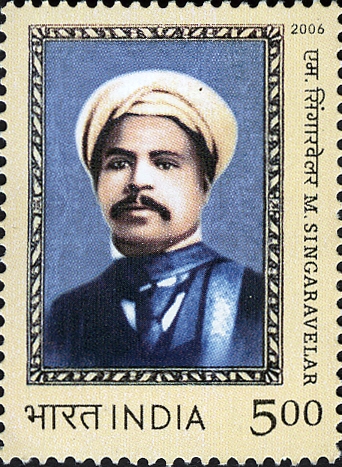
M. Singaravelu
I think this conference is the first of its kind in the whole of India. One can boldly assert that this conference will bring good to the country and people. Unfortunately some people, out of ignorance, have ridiculed this conference. As usual, theists indulge in slander. The bureaucrats try to indulge in repression under some pretext or other. But this is not a new occurrence. In the past all progressive movements have been persecuted and ridiculed.
Not content with ridiculing the progressive movement, this mad and ignorant world has always tried to stop the spread of scientific knowledge. Ingersol, the famous atheist of America was not taken note of during his lifetime and was even ridiculed. But now his birth anniversary is being celebrated in America. Bradlaugh, the British atheist, was put behind bars during his lifetime. Now what happens in Britain? Commemoration meetings in honour of Bradlaugh are being held in Britain. I am sure in due course still bigger conferences of this kind would be held in this country. It is quite likely that people may forget the names of the atheists but their ideas will remain forever in their minds.
Atheism is an ancient doctrine which originated and developed side by side with theism. When the concept of God was ushered in, alongside came the doctrine of ‘no-God’. Till the time man developed his faculty to speak, he was not aware of any God. Some of the primitive tribesmen have confessed their ignorance about God, and can aptly be called ‘primitive atheists’.
Atheism is an ancient doctrine which originated and developed side by side with theism. When the concept of God was ushered in, alongside came the doctrine of ‘no-God’. Till the time man developed his faculty to speak, he was not aware of any God. Some of the primitive tribesmen have confessed their ignorance about God, and can aptly be called ‘primitive atheists’.
In this connection it is really interesting to note the history of religion. Every religion had proclaimed that people belonging to the other religions were atheists. A non-Hindu is an atheist to a Hindu. To a Muslim any non- Muslim is an atheist. Likewise, many more people were termed as atheists. Hence, I would like to say one should really be proud to be an atheist as he is not only non-religious but also does not accept a belief in God.
As the word (God) was man’s own creation, he began to build houses (temples) for his God. Just as he respected his superiors and elders, he began to respect his God. What he did to entertain himself like music, dance, rituals, feasts, he offered to his God. Thus, God advanced as man advanced.
Some shrewd men of those days found an easy way to life and this paved the way for replacing the word with an idol. To make man live perpetually in fear of God, these men did everything possible and thus priesthood came into existence. These priests lived and thrived on the fear and ignorance of men. Thus around the single word ‘God’ the entire edifice of religious and philosophical system of rituals and prayers were built. In the course of history, many beliefs have become obsolete and I am sure that this belief, namely, theism too would become obsolete in due course.
The first and most dangerous affect of theism is that it saps the initiative of man. Ignorance take deep roots in him. People are prevented from acquiring scientific knowledge. Theism is not only a negative evil; it is positively harmful to the people.
The first and most dangerous affect of theism is that it saps the initiative of man. Ignorance take deep roots in him. People are prevented from acquiring scientific knowledge. Theism is not only a negative evil; it is positively harmful to the people. Whatever may be the future of God, we can never forget and forgive his past. It is only atheism that instills confidence in man. It is only atheism which proclaims that social and economic inequalities are only manmade. Hence, it goads man to seek out ways of removing obstacles in the way of progress. It is only atheism that proclaims to man: ‘Man, be a man. You alone can convert this earth into a paradise.’
Comrades, crucial battles are ahead of us. We cannot rest on our laurels now. Though it is put on defence, theism has not been completely routed. Power, money, propaganda, still side with theism. Further, a majority of people, out of ignorance still remain with theism and we have to redeem them. Theism alongwith power and money may over and again attempt to bar the growth and development of human initiative. A concrete example is the development of Hitlerism and fascism. Religious beliefs and other ageold obscurantist ideas are thrust down the throats of people. This is a dangerous trend. Take again some of the views expressed by Gandhiji. He is openly advocating theism. Further, he is crying to make some readjustment in the caste system, to reform it. In our view these are against the principles of atheism. The so-called removal of untouchability is a mere device to strengthen religious beliefs among the people. The untouchables numbering about six crores are economically poor and downtrodden. What they need is neither God or religion. They need a meal a day and an opportunity to earn a decent living.
Comrades, crucial battles are ahead of us. We cannot rest on our laurels now. Though it is put on defence, theism has not been completely routed. Power, money, propaganda, still side with theism. Further, a majority of people, out of ignorance still remain with theism and we have to redeem them. Theism alongwith power and money may over and again attempt to bar the growth and development of human initiative.
However, there is another danger ahead. The Hindu Mahasabha, the Sanatanis, Muslim communalists, etc., are still striving hard to capture the legislative assembly so that theism can be enthroned. These are the worst reactionaries in this unfortunate land. Beware comrades, not to lose this opportunity for contesting and capturing every seat in every village and panchayat, in every taluk and district board. Fearlessly expose the sham of casteism and oppression. Dethrone ignorance and theism. Please, enthrone atheism and socialism in its place.
The great Calcutta killings (Calcutta, September 1946)
SYAMA PRASAD MOOKERJEE
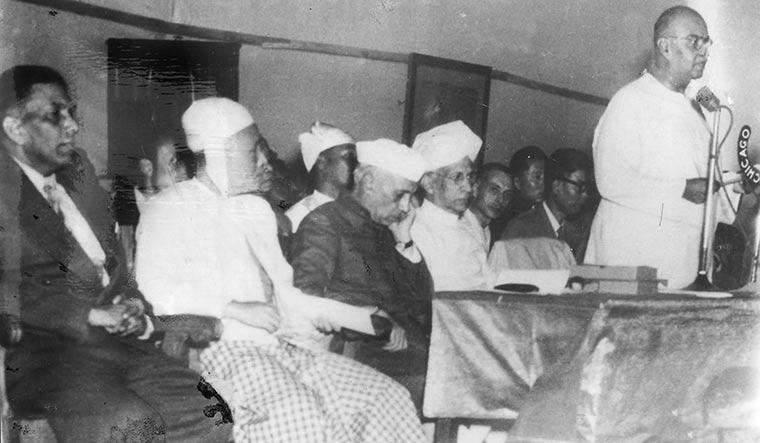
Syama Prasad Mookerjee
Sir, since yesterday we have been discussing the motions of no-confidence under circumstances, which perhaps have no parallel in the deliberations of any Legislature in any part of the civilized world. What happened in Calcutta is without a parallel in modern history. St Bartholomew’s Day of which history records some grim events of murder and butchery pales into insignificance compared to the brutalities that were committed in the streets, lanes and bye-lanes of this first city of British India. We have been discussing, Sir, as to the genesis of these disturbances. Time will not permit me to go through the detailed history and course of events during the last few years.
But let me say this that what has happened is not the result of a sudden explosion, but it is the culmination of an administration, inefficient, corrupt and communal, which has disfigured the life of this great Province. But so far as the immediate cause is concerned, rightly reference has been made by members belonging to the Muslim League and also to the Opposition that we have to look to the resolution that was passed at Bombay at the all-India session of the Council of the Muslim League. Now what happened there? It is said, on behalf of the Muslim League that the Cabinet Mission proved faithless to Muslim interests and thereby created a situation which had no parallel in the history of Anglo-Muslim relationship in this country. What did actually the Cabinet Mission do? The Muslim League, the spoilt and pampered child of the British imperialists for the last thirty years, was disowned for the first time by the British Labour Government…(loud noise from the government benches)…I know it that members when they hear the bitter truth, can hardly repress their feelings. Sir, the fact remains that the old policy of the British Government of no advancement without a Congress-Muslim League agreement was for the first time given up in I946…(loud cries from the government benches)…I have only stated the fact and I do not make any comment on it and still my friends become impatient immediately. Now, the fact remains that the Muslim League was bypassed and the Interim Government has been formed at the Centre. Supposing Mr Jinnah had been asked to form the Interim Government without the Congress, would my friends belonging to the Muslim League have then blamed the government for having betrayed the interests of the Hindu community?
But let me say this that what has happened is not the result of a sudden explosion, but it is the culmination of an administration, inefficient, corrupt and communal, which has disfigured the life of this great Province. But so far as the immediate cause is concerned, rightly reference has been made by members belonging to the Muslim League and also to the Opposition that we have to look to the resolution that was passed at Bombay at the all-India session of the Council of the Muslim League.
Sir, what happened after the Bombay resolution? I have before me a summary of the speeches delivered by distinguished spokesmen on behalf of the Muslim League in every part of India and although it was said that the Direct Action Day itself was not the day for commencing direct action, it was at the same time pointed out that the war had begun, the days of peace and compromise were over and now the jehad … (A member from the Government Benches: Against whom?) War against everyone who did not accept Pakistan. That has been made abundantly clear.
I would ask my friends not to misunderstand me. I am trying to put in brief their point of view as I would ask them also to appreciate our point of view. We are like poles asunder. You say you will plunge the country Pakistan by any means whatsoever. These two points of view are irreconcilable and what I am now telling the House is this that the members speaking on behalf of the Muslim League did not mince matters. Muslim leaders want Civil War. Only a pattern of civil war, according to Mr Jinnah, was witnessed in this very city of Calcutta, but whether civil war will ultimately help Muslims to get Pakistan or not is a matter that remains yet to be seen. It is said that British Imperialists are against the Muslim League. Why talk rot in this way? Who gave you separate electorate and communal award? Who is helping the Sind ministry to remain in power? Is not the Governor a British Governor? Are not the three European members of the Sind Assembly British members of that House? Are they not trying their level best somehow to keep the Muslim League in power and not allow the Congress to go to office although among the Indian members they are in a majority?
Now, Sir, I shall leave this aside. I shall not refer to the detailed speeches which have been delivered by the Muslim League leaders barring one or two illustrative remarks. When Mr Jinnah was confronted at a preconference in Bombay on the 31st July and was asked whether direct action involved violence or non-violence, his cryptic reply was ‘I am not going to discuss ethics’. (The Hon’ble Mr Muhammad Ali: Good.) But Khwajah Nazimuddin was not so good. He came out very bluntly in Bengal and he said that Muslims did not believe in non-violence at all, Muslims knew what direct action meant and there were one hundred and one ways in which this was made clear by responsible League leaders. One said in the Punjab that the zero hour had struck and that the war had begun. All this was followed by a series of articles and statements which appeared in the columns of newspapers— the Morning News, the Star of India, and the Azad. If you read those documents, particularly I would ask my friend Mr Ispahani if he reads those documents, I do not know whether he had learnt Bengali yet, if not, for his benefit a translation can be made of the Bengali article in Azad, he will be able to find out that there was nothing but open and direct incitement to violence. Hatred of Hindus and jehad on the Hindu were declared in highly charged language. That was the background. I am not going to quote the papers, for I have not the time. You have read them and the general Muslim public have acted according to the instructions.
Now, so far as the later events are concerned, what happened on the 16th of August. What were the preparations made? Mr Ispahani says that they were taken unaware. In the Morning News on the 16th there appeared an announcement on behalf of the ‘Pakistan’ Ambulance Corps and there full instructions were given as to how the Ambulance Corps was to act—mind you, Sir, this was done before the troubles started. This ‘Pakistan Ambulance Corps’ was to be utilized in different parts of the city; they were to go out in batches, cars and officers ‘would be available’ and from the 17th morning announcement was to be made every hour as regards the patients who were to be found in the different hospitals of Calcutta. This was announced before any trouble started in Calcutta and Mr Ispahani says there was no preparation. Of course it was sheer bad luck that you allowed this notice, among many kinds of preparations, to be published in the newspapers.
Now, Sir, what happened on the 16th? I shall not refer to the detailed speeches of other members. But I shall certainly hold responsible the Chief Minister of this province who lost his mental balance by saying in Bombay that he was going to declare Bengal to be an independent state. A minister who cannot control his British underling — the Commissioner of Police — is going to make Bengal an independent state! A minister who comes forward and says ‘I am helpless, I could not save the people of the city because the Commissioner of Police would not listen to me’ will declare Bengal an independent state! Now, that was Mr Suhrawardy. He said he was going to carry on a no-rent campaign in this province. He was going to disobey law and order. His speech before the Legislative Council goes to show that he knew fully well that troubles were ahead. If you analyse his speech it will appear that he knew that troubles were brewing and he said he wanted to be as careful as possible.
Now, Sir, what happened on the 16th? I shall not refer to the detailed speeches of other members. But I shall certainly hold responsible the Chief Minister of this province who lost his mental balance by saying in Bombay that he was going to declare Bengal to be an independent state. A minister who cannot control his British underling — the Commissioner of Police — is going to make Bengal an independent state!
I am not raising the question in this debate as to how many Hindus were butchered or how many Muslims were butchered in Bhawanipore, Taltolla, or Watgunge. That is not the issue. The question in issue today is, did government succeed in protecting life and property; not to which community that life and property belonged? Why did government allow so many Muslim lives to be butchered if you look upon Mr Suhrawardy as the great Muslim champion? Why did he allow the entire administration of law and order to collapse in the city? I shall say, Sir, it was a diabolical plan. I say Sir, there was a well-organized plan to make a lightning attack on the city that would take Hindus by surprise, properties were going to be looted and lives were going to be lost. Then Mr Suhrawardy found that he was caught in his own trap when he and others were hit back in their own coin. He could not regain his lost ground and failed to do what his Muslim brethren asked him to do in agony and distress.
I am not raising the question in this debate as to how many Hindus were butchered or how many Muslims were butchered in Bhawanipore, Taltolla, or Watgunge. That is not the issue. The question in issue today is, did government succeed in protecting life and property; not to which community that life and property belonged?
On the 16th, our case is that provocation came from the other side, their case is that provocation came from the Hindu side. That also I am not going to discuss today. Let us leave that for the time being, but let us proceed to the next stage. Mr Suhrawardy said by 12 noon he realized the situation was very bad. Was he not still the Chief Minister of Bengal? What did he do at that time? Why was not the military called out at that time? I have got here a circular issued by the military for the information of its officers and employees in which clear information is given that the military was ready to come out on Friday noon but it was not asked to do so. The civil police failed to protect the life and property as it was expected to do and whenever the military was asked to come out, it came out and it did whatever it could do. But, alas, thousands had been killed meanwhile and crores of rupees looted!
On Friday Mr Suhrawardy knew that trouble had broken out— no matter whether the Hindus were the aggressors or the Muslims were, why did he allow the whole city to be placed at the mercy of goondas, dacoits and murderers? Why did he allow the meeting at all to be held at the maidan in the afternoon over which he presided? He stands charged with the deliberate offence of having played havoc with the life and property of the citizens of this great city, no matter whether they were Hindus or they were Muslims. On Friday night he gave a message to the Associated Press that the condition in the city had improved. Does he remember it? It seems that the Associated Press went to the next day’s newspapers. I would ask my friends to forget for the time being that they belong to the Muslim League. If Mr Suhrawardy says ‘no’, here, Sir, is the statement of Mr H.S. Suhrawardy, Chief Minister of Bengal— I suppose that is the gentleman sitting over there (laughter) interviewed by the Associated Press of India to the effect that the situation was improving. (Uproar) (A voice from the government benches: What paper?) Every newspaper. (Renewed uproar.) I would ask my friends that they must observe the rules of the game and fairplay even in a discussion like this. Why don’t you ask the Chief Minister to explain this?
Mr Speaker, you can certainly look into it. I am not afraid of the truth. Yes, Sir, (Sent the paper to Mr Speaker.) I can produce it to anyone who wants to see it. Now, Sir, Section l44 is supposed to have been promulgated on Friday but was never enforced.
Then on Saturday the curfew order was inaugurated, but neither Section 144 nor the curfew order was enforced. How is it that in spite of Section 144 and the curfew order people were moving about committing loot and plunder, and murder even? How is it that within a stone’s throw, Mr Ispahani has pointed out, from Lalbazar police station shops were looted, people were murdered and all sorts of offences were committed without the Police moving an inch?
Of course, you are responsible. If you have got the guts to say that you are not responsible, let us know that. Now, Sir, that was on the 16th and 17th August. Later on what happened? Mr Suhrawardy knows it very well that he was telling a double-faced lie. On the 23rd he issued a broadcast message, a message of peace for the people of Bengal and within half an hour of that he sent out a special message for the foreign press through foreign correspondents and the things which are mentioned in that document are entirely different from the broadcast message which he issued to the people of Bengal. Can he deny that? (A voice from the Government Benches: That is obvious). He has stated that the Hindus have started the riot. (The Hon’ble Mr H.S. Suhrawardy: Certainly.) He has said that it is the Hindus, who are to blame. He said it was the British Government which was to blame. Say ‘certainly’ (laughter) and lastly, he said that he cannot yet tell what will happen in future if the Interim Government continues in office. Now, Sir, if that is the remark which he wanted to make on that day what was the use of his appealing to the people of Bengal for peace and harmony and saying ‘I have kept an open mind and I would like Hindus and Muslims to work together’. Can history give us a better example of a double-faced minister?
Sir, there are two matters here which may be mentioned. Mr Suhrawardy said that he could not control the Commissioner of Police because he was not under his orders. I shall give you, Sir, one instance out of many which are available from which it will appear how Mr Suhrawardy interfered with the administration of the police offices in a manner which was unworthy of any Home Minister of any Province. In the Park Street police station about seven goondas were taken by a European Inspector on Sunday evening. Sir, that is the remark which Mr Suhrawardy has made namely, ‘I am sorry you are a goonda then.’ I do not know who they are. These persons were found with looted properties. If Mr Suhrawardy says that Muslim gentlemen took away looted properties I shall bow down my head to him, but if he says that I am a goonda then I too can say that he is the best goonda that is available not only in this Province but throughout the world.
(Uproar)
Sir, I shall withdraw it as soon as Mr Suhrawardy withdraws what he has said about me. (Cries of ‘withdraw, withdraw’ from the government benches). Let him withdraw first, what he first has said about me.
Now I withdraw too. Now, Sir, let me pass on. So far as the Park Street incident is concerned, the important point is that goondas or gentlemen whoever they were, seven Muslims who were found in possession of looted properties were brought into Park Street police-station by a European Inspector. Within ten minutes Mr H.S. Suhrawardy appears on the scene. He gets these persons released. It is on record. Let him deny that. (The Hon’ble Mr H.S. Suhrawardy: Yes). (Cries of ‘shame, shame’ from Congress benches.) Then he comes back (Mr H.S. Suhrawardy: Oh! no). This is the way, Sir, in which Mr Suhrawardy has behaved. This is one instance I am giving. (Cries of ‘you have cooked it’ from government benches). No, I have not cooked it. He himself has admitted it.
Then, Sir, the Muslim League party wanted 500 gallons of petrol from the Bengal Government. That was not granted, but petrol coupons were issued in the name of individual ministers — general coupons — 100 gallons being issued in the name of the Chief Minister. Evidence is available that these coupons were used by lorries moving in the streets of Calcutta on those fateful days. That is how arrangements were being made under the very nose of the Home Department over which Mr Suhrawardy was presiding. Can Mr Suhrawardy deny that he himself went to Howrah accompanied by some Muslim League leaders, met local officers in authority there, and had chastized and taken them to task because Muslims were not protected there? Can he deny that? Did Mr Suhrawardy give in any place or at any time the same sort of protection to the suffering Hindus. (The Hon’ble Mr H.S. Suhrawardy: Certainly). Now, Sir, it is quite clear that at least I have said some home truths which have made my friends opposite angry and impatient.
Sir, they, these ministers, have taken oath of allegiance to the British Crown and they are responsible for the life and property of all alike. My friend, Mr Muhammad Ali, admitted this very candidly when the adjournment motion was not allowed to be taken up in this House. Mr Suhrawardy is a great Muslim League leader and he owes his allegiance to the Muslim League. The Muslim League rightly or wrongly ordered that if something does not happen to its liking, it was going to resort to direct action. One cannot serve two masters. Sir, it has been proved beyond doubt that Mr Suhrawardy and his other Ministers are unable to administer the affairs of this Province impartially and efficiently. They have failed hopelessly and wretchedly and on that ground alone they are not fit to occupy offices for a single moment (Interruptions).
Sir, it is not in Calcutta alone that atrocities were committed in a large scale, but we find that troubles are spreading now in the whole of Bengal. The information which is coming from different parts of Bengal would make one shudder to think as to what will happen to this province. These gentlemen, the ministers over there, should not remain in charge of the affairs of this province even a day longer.
Sir, it is not in Calcutta alone that atrocities were committed in a large scale, but we find that troubles are spreading now in the whole of Bengal. The information which is coming from different parts of Bengal would make one shudder to think as to what will happen to this province. These gentlemen, the ministers over there, should not remain in charge of the affairs of this province even a day longer. (Interruptions) If they remain in office the future would be darker still. (Interruptions) The Council of Action of the All-India Muslim League has ordered that preparations have to be made for giving effect to the Direct Action Program. Already Muslim League leaders from the Punjab, North-West Frontier Province and also Sind have openly declared that they are ready with their scheme which can be put into operation at 24 hours’ notice. Am I to believe that the Muslim League in Bengal which is a stronghold of Mr Jinnah’s Muslim League is not similarly prepared to give effect to the order of the Muslim League when the occasion demands it? In other words, my charge is that the present Ministry is utilizing the government machinery for the purpose of launching upon a Direct Action scheme. (The Hon’ble Mr H.S. Suhrawardy: No). Mr Suhrawardy is playing a dual role and this dual role of Mr Suhrawardy and those who are supporting him has got to be exposed and brought to an end in the interest of peace and tranquility.
Why does not the Chief Minister get the reports of the Commissioner of Police through the Criminal Investigation Department as regards some meetings which took place in the city? Mr Suhrawardy has perhaps got the proceedings confidentially of the meetings which were held in the cities where League leaders were invited to attend for the purpose of preparing scheme for direct action. If he has got any report about what happened on the 16th, he will find that even when the Calcutta maidan meeting was being held, over which Mr Suhrawardy presided, disturbances had broken out in several places. Now what happened in that meeting? Was there then any CID officer present taking down notes? Where are those notes?
Sir, it was an astonishing fact that a gun shop within 2 minutes walk from the Government House had been looted. Not a single policeman turned up in the streets to control the situation in any part of the city. It will not help merely making the Commissioner of Police a scapegoat, it is suggested that the city had been ablaze in so many places that the Commissioner of Police did not know how to act. But surely Mr Suhrawardy knew how and when to act. (The Hon’ble Mr H.S. Suhrawardy: Yes, yes). Mr Suhrawardy says that he knew and we also know when he acted. If he had failed without making any effort, then he is charged with criminal negligence and if he failed in spite of efforts, he is certainly inefficient and worthless, and he should not be kept in that position any longer. There is no place for him in the ministry.
Sir, there is one point which I would like to say with regard to the Britishers in this House. My friends are remaining neutral. I cannot understand this attitude at all. In a situation such as this they must decide if the ministry was right or the ministry was wrong. If the ministry was right, support them and if the ministry was wrong, you should say so boldly and not remain neutral merely sitting on the fence which shows signs of abject impotence (Laughter).
If a single Britisher, man or woman or a child, had been strong enough they would have thrown this ministry out of office without hesitation, but because no Britisher was touched so they can take an impartial and neutral view! Are they so sure they will be left untouched next time? There is no question of partiality or impartiality here. The present administration has failed and it must come to an end. Anyone who remains neutral is an aider and abettor.
My friend, Mr Gladding, said that luckily none of his people were injured. It is true, Sir, but that is a statement which makes me extremely sorry. If a single Britisher, man or woman or a child, had been strong enough they would have thrown this ministry out of office without hesitation, but because no Britisher was touched so they can take an impartial and neutral view! Are they so sure they will be left untouched next time? There is no question of partiality or impartiality here. The present administration has failed and it must come to an end. Anyone who remains neutral is an aider and abettor.
I would ask my friends, what about the future. Pakistan will not be accepted under any circumstance. (Mr Fazlur Rahman: It will be accepted). Mr Suhrawardy said in Bombay after the 16th of August, ‘When a nation fights against another nation I cannot guarantee civilized conduct.’ If you are a nation fighting against us, another nation, if that is the attitude of my friends on the other side, then they cannot remain in office any longer. (Cries of ‘Hear, hear’ from the Opposition Benches). Mr Suhrawardy must realize that his office is meant for the good of the entire people of Bengal irrespective of caste, creed and religion, and not for his own so-called ‘nation’. I would say, Sir, that is an abject treachery to the great responsibility that rests on Mr Suhrawardy, as Premier (Interruptions).
Apparently I said many good things, otherwise my friends would not be so jubilant. The Chief Minister was dancing the other day on the polished floor of a Delhi Hotel and I have made my friends dance on the floor of this House. I will now say a few words in connection with the future. What about the future? My friends, the Muslims, say that they constitute 25 percent of India’s population, and that is so big a minority that they will never agree to live under 75 percent Hindu domination. Now if that is their honest and genuine point of view how can they expect that 45 percent of the Hindu population of this Province will ever agree to live under a Constitution where that particular nation represented by Muslims, constituting only of 55 percent, will alone dominate? (The Hon’ble Mr Shamsuddin Ahmed: That is how the trouble began). I will not today enter into controversies as regards the real population of Bengal. I claim it that if a proper census is taken even today the Hindus will not be in a minority but that question cannot be settled by argument from one side or the other. My Muslim friends who are well-organized under the banner of the Muslim League have got to realize that if Bengal is to be ruled peacefully it can be done only with the willing cooperation of the two communities. I am not talking of all India politics for the time being. (The Hon’ble Mr Shamsuddin Ahmed: Why not? What has happened to all India politics?) I would make this appeal to my friends that a choice has to be made by the Hindus and the Muslims together. There is no way out of it because what we witnessed in Calcutta was not an ordinary communal riot: its motive was political, but things may become even far more serious and drastic in the days, weeks and months to come. Now, if the Muslims of Bengal under the leadership of the Muslim League feel that they can exterminate the Hindus, that is a fantastic idea which can never be given effect to: three and a half crores can never exterminate three crores nor can three crores exterminate three and a half crores.
Sir, if it is said that civil war will break out throughout India, will that help anyone, will that help, in particular, 25 percent. Muslims throughout India as against 75 percent of Hindus and other non-Muslims. It is not a question of threat at all; it is a question of facing a stern reality. Either we have to fight or we have to come to some settlement. The settlement cannot be reached so long as you say that one community will dominate over the other, but it can only be reached by a plan which will enable the vast majority of Hindus and Muslims to live under circumstances which will give freedom and peace to the common man.
Now, Sir, if it is said that civil war will break out throughout India, will that help anyone, will that help, in particular, 25 percent. Muslims throughout India as against 75 percent of Hindus and other non-Muslims. It is not a question of threat at all; it is a question of facing a stern reality. Either we have to fight or we have to come to some settlement. The settlement cannot be reached so long as you say that one community will dominate over the other, but it can only be reached by a plan which will enable the vast majority of Hindus and Muslims to live under circumstances which will give freedom and peace to the common man. After all, forget not who suffered most during the Calcutta Killing. It as mainly the poorer people, both amongst the Hindus and the Muslims. Ninety percent of them were poor and innocent and if the leaders lose their heads and go creating a situation which they cannot ultimately control, the time will soon come when the common man will turn round and crush the leaders instead of being themselves crushed. It is therefore vitally necessary that this false and foolish idea of Pakistan or Islamic rule has to be banished for ever from your head. In Bengal we have got to live together. We say as a condition precedent this ministry must go. Only then can we create a state of affairs which will make it possible to build a future Bengal which will be for the good of all, irrespective of any caste, creed, or community.
Opening address to the Constituent Assembly of Pakistan (Karachi, August 1947)
MUHAMMAD ALI JINNAH
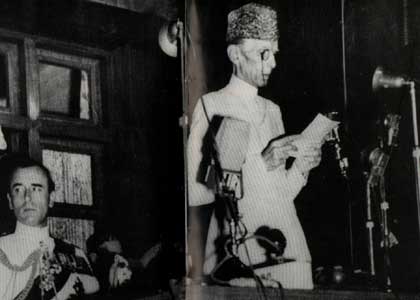
Jinnah speaking at the Constituent Assembly of Pakistan on 14 August 1947
Mr President, Ladies and Gentlemen!
I cordially thank you, with the utmost sincerity, for the honor you have conferred upon me — the greatest honour that is possible for this Sovereign Assembly to confer — by electing me as your first President. I also thank those leaders who have spoken in appreciation of my services and their personal references to me. I sincerely hope that with your support and your cooperation we shall make this Constituent Assembly an example to the world. The Constituent Assembly has got two main functions to perform. The first is the very onerous and responsible task of framing our future Constitution of Pakistan and the second is functioning as a full and complete sovereign body as the Federal Legislature of Pakistan. We have to do the best we can in adopting a provisional constitution for the Federal Legislature of Pakistan. You know really that not only we ourselves are wondering but, I think, the whole world is wondering at this unprecedented cyclonic revolution which has brought about the plan of creating and establishing two independent sovereign dominions in this subcontinent. As it is, it has been unprecedented; there is no parallel in the history of the world. This mighty subcontinent with all kinds of inhabitants has been brought under a plan which is titanic, unknown, unparalleled. And what is very important with regard to it is that we have achieved it peacefully and by means of an evolution of the greatest possible character.
Dealing with our first function in this Assembly, I cannot make any well considered pronouncement at this moment, but I shall say a few things as they occur to me. The first and the foremost thing that I would like to emphasize is this: Remember that you are now a sovereign legislative body and you have got all the powers. It, therefore, places on you the gravest responsibility as to how you should take your decisions. The first observation that I would like to make is this: You will no doubt agree with me that the first duty of a government is to maintain law and order, so that the life, property and religious beliefs of its subjects are fully protected by the state.
Remember that you are now a sovereign legislative body and you have got all the powers. It, therefore, places on you the gravest responsibility as to how you should take your decisions. The first observation that I would like to make is this: You will no doubt agree with me that the first duty of a government is to maintain law and order, so that the life, property and religious beliefs of its subjects are fully protected by the state.
The second thing that occurs to me is this: One of the biggest curses from which India is suffering — I do not say that other countries are free from it, but, I think, our condition is much worse — is bribery and corruption. That really is a poison. We must put that down with an iron hand and I hope that you will take adequate measures as soon as it is possible for this Assembly to do so.
Black-marketing is another curse. Well, I know that black-marketeers are frequently caught and punished. Judicial sentences are passed or sometimes fines only are imposed. Now you have to tackle this monster which today is a colossal crime against society, in our distressed conditions, when we constantly face shortage of food and other essential commodities of life. A citizen who does black-marketing commits, I think, a greater crime than the biggest and most grievous of crimes. These black-marketeers are really knowing, intelligent and ordinarily responsible people, and when they indulge in black-marketing, I think they ought to be very severely punished, because they undermine the entire system of control and regulation of foodstuffs and essential commodities, and cause wholesale starvation and want and even death.
The next thing that strikes me is this: Here again it is a legacy which has been passed on to us. Alongwith many other things, good and bad, has arrived this great evil—the evil of nepotism and jobbery. This evil must be crushed relentlessly. I want to make it quite clear that I shall never tolerate any kind of jobbery, nepotism or any influence directly or indirectly brought to bear upon me. Whenever I will find that such a practice is in vogue or is continuing anywhere, low or high, I shall certainly not countenance it.
Now, if we want to make this great State of Pakistan happy and prosperous we should wholly and solely concentrate on the well-being of the people, and especially of the masses and the poor. If you will work in cooperation, forgetting the past, burying the hatchet, you are bound to succeed. If you change your past and work together in a spirit that every one of you, no matter to what community he belongs, no matter what relations he had with you in the past, no matter what is his colour, caste or creed, is first, second and last a citizen of this state with equal rights, privileges and obligations, there will be no end to the progress you will make.
I know there are people who do not quite agree with the division of India and the partition of the Punjab and Bengal. Much has been said against it, but now that it has been accepted, it is the duty of every one of us to loyally abide by it and honourably act according to the agreement which is now final and binding on all. But you must remember, as I have said, that this mighty revolution that has taken place is unprecedented. One can quite understand the feeling that exists between the two communities wherever one community is in majority and the other is in minority. But the question is, whether it was possible or practicable to act otherwise than what has been done. A division had to take place. On both sides, in Hindustan and Pakistan, there are sections of people who may not agree with it, who may not like it, but in my judgment there was no other solution and I am sure future history will record its verdict in favour of it. And what is more, it will be proved by actual experience as we go on that it was the only solution of India’s constitutional problem. Any idea of a united India could never have worked and in my judgment it would have led us to terrific disaster. May be that view is correct; may be it is not; that remains to be seen. All the same, in this division it was impossible to avoid the question of minorities being in one dominion or the other. Now that was unavoidable. There is no other solution. Now what shall we do? Now, if we want to make this great State of Pakistan happy and prosperous we should wholly and solely concentrate on the well-being of the people, and especially of the masses and the poor. If you will work in cooperation, forgetting the past, burying the hatchet, you are bound to succeed. If you change your past and work together in a spirit that every one of you, no matter to what community he belongs, no matter what relations he had with you in the past, no matter what is his colour, caste or creed, is first, second and last a citizen of this state with equal rights, privileges and obligations, there will be no end to the progress you will make.
I cannot emphasize it too much. We should begin to work in that spirit and in course of time all these angularities of the majority and minority communities, the Hindu community and the Muslim community—because even as regards Muslims you have Pathans, Punjabis, Shias, Sunnis, and so on and among the Hindus you have Brahmins, Vaishnavas, Khatris, also Bengalees, Madrasis, and so on—will vanish. Indeed if you ask me this has been the biggest hindrance in the way of India to attain the freedom and independence and but for this we would have been free peoples long, long ago. No power can hold another nation, and specially a nation of 400 million souls in subjection; nobody could have conquered you, and even if it had happened, nobody could have continued its hold on you for any length of time but for this. Therefore, we must learn a lesson from this. You are free; you are free to go to your temples, you are free to go to your mosques or to any other place of worship in this State of Pakistan. You may belong to any religion or caste or creed—that has nothing to do with the business of the state. As you know, history shows that in England, conditions some time ago, were much worse than those prevailing in India today. The Roman Catholics and the Protestants persecuted each other. Even now there are some states in existence where there are discriminations made and bars imposed against a particular class. Thank God, we are not starting in those days. We are starting in the days when there is no discrimination, no distinction between one community and another, no discrimination between one caste or creed and another. We are starting with this fundamental principle that we are all citizens and equal citizens of one state. The people of England in course of time had to face the realities of the situation and had to discharge the responsibilities and burdens placed upon them by the government of their country and they went through that fire step by step. Today, you might say with justice that Roman Catholics and Protestants do not exist; what exists now is that every man is a citizen, an equal citizen of Great Britain and they are all members of the Nation.
Now, I think we should keep that in front of us as our ideal and you will find that in course of time Hindus would cease to be Hindus and Muslims would cease to be Muslims, not in the religious sense, because that is the personal faith of each individual, but in the political sense as citizens of the state. Well, gentlemen, I do not wish to take up any more of your time and thank you again for the honour you have done to me. I shall always be guided by the principles of justice and fairplay without any, as is put in the political language, prejudice or ill-will, in other words, partiality or favouritism. My guiding principle will be justice and complete impartiality, and I am sure that with your support and cooperation, I can look forward to Pakistan becoming one of the greatest nations of the world.
Now, I think we should keep that in front of us as our ideal and you will find that in course of time Hindus would cease to be Hindus and Muslims would cease to be Muslims, not in the religious sense, because that is the personal faith of each individual, but in the political sense as citizens of the state.
I have received a message from the United States of America addressed to me. It reads:
I have the honour to communicate to you, in Your Excellency’s capacity as President of the Constituent Assembly of Pakistan, the following message which I have just received from the Secretary of State of the United States:
On the occasion of the first meeting of the Constituent Assembly for Pakistan, I extend to you and to the members of the Assembly, the best wishes of the Government and the people of the United States for the successful conclusion of the great work you are about to undertake.
Jama Masjid Speech (Delhi, 1947)
MAULANA ABUL KALAM AZAD
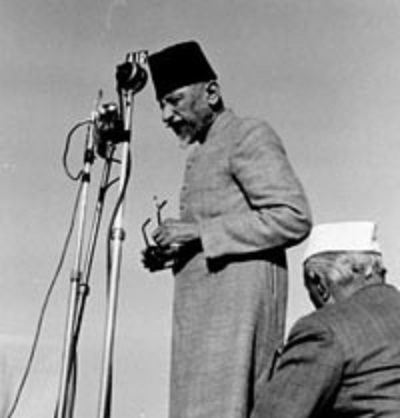
Maulana Abul Kalam Azad
My brethren,
You know what has brought me here today. This congregation at Shahjahan’s historic mosque is not an unfamiliar sight for me. Here, I have addressed you on several previous occasions. Since then we have seen many ups and downs. At that time, instead of weariness, your faces reflected serenity, and your hearts, instead of misgivings, exuded confidence. The uneasiness on your faces and the desolation in your hearts that I see today, reminds me of the events of the past few years.
Do you remember? I hailed you, you cut off my tongue; I picked my pen, you severed my hand; I wanted to move forward, you broke off my legs; I tried to run, and you injured my back. When the bitter political games of the last seven years were at their peak, I tried to wake you up at every danger signal. You not only ignored my call but revived all the past traditions of neglect and denial. As a result the same perils surround you today, whose onset had previously diverted you from the righteous path.
Today, mine is no more than an inert existence or a forlorn cry; I am an orphan in my own motherland. This does not mean that I feel trapped in the original choice that had made for myself, nor do I feel that there is no room left for my ashiana (nest). What it means is that my cloak is weary of your impudent grabbing hands. My sensitivities are injured, my heart is heavy. Think for one moment. What course did you adopt? Where have you reached, and where do you stand now? Haven’t your senses become torpid? Aren’t you living in a constant state of fear? This fear is your own creation, a fruit of your own deeds.
Today, mine is no more than an inert existence or a forlorn cry; I am an orphan in my own motherland. This does not mean that I feel trapped in the original choice that had made for myself, nor do I feel that there is no room left for my ashiana (nest). What it means is that my cloak is weary of your impudent grabbing hands. My sensitivities are injured, my heart is heavy.
It was not long ago when I warned you that the two-nation theory was death-knell to a meaningful, dignified life; forsake it. I told you that the pillars upon which you were leaning would inevitably crumble. To all this you turned a deaf ear. You did not realize that, my brothers! I have always attempted to keep politics apart from personalities, thus avoiding those thorny valleys. That is why some of my messages are often couched in allusions. The Partition of India was a fundamental mistake. The manner in which religious differences were incited, inevitably, led to the devastation that we have seen with our own eyes. Unfortunately, we are still seeing it at some places.
There is no use recounting the events of the past seven years, nor will it serve any good. Yet, it must be stated that the debacle of Indian Muslims is the result of the colossal blunders committed by the Muslim League’s misguided leadership. These consequences however, were no surprise to me; I had anticipated them from the very start.
Now that Indian politics has taken a new direction, there is no place in it for the Muslim League. Now the question is whether or not we are capable of constructive thinking. For this, I have invited the Muslim leaders of India to Delhi, during the second week of November.
The gloom cast upon your lives is momentary; I assure you we can be beaten by none save our own selves! I have always said, and I repeat it again today; eschew your indecisiveness, your mistrust, and stop your misdeeds. This unique triple-edged weapon is more lethal than the two-edged iron sword which inflicts fatal wounds, which I have heard of.
The gloom cast upon your lives is momentary; I assure you we can be beaten by none save our own selves! I have always said, and I repeat it again today; eschew your indecisiveness, your mistrust, and stop your misdeeds. This unique triple-edged weapon is more lethal than the two-edged iron sword which inflicts fatal wounds, which I have heard of.
Just think about the life of escapism that you have opted for, in the sacred name of Hejrat. Get into the habit of exercising your own brains, and strengthening your own hearts. If you do so, only then will you realize how immature your decisions were.
Where are you going and why? Raise your eyes. The minarets of Jama Masjid want to ask you a question. Where have you lost the glorious pages from your chronicles? Wasn’t it only yesterday that on the banks of the Jamuna, your caravans performed wazu? Today, you are afraid of living here. Remember, Delhi has been nurtured with your blood. Brothers, create a basic change in yourselves. Today, your fear is misplaced as your jubilation was yesterday.
The words coward and frenzy cannot be spoken in the same breath as the word Muslim. A true Muslim can be swayed neither by avarice nor apprehension. Don’t get scared because a few faces have disappeared. The only reason they had herded you in a single fold was to facilitate their own flight. Today, if they have jerked their hand free from yours, what does it matter? Make sure that they have not run away with your hearts. If your hearts are still in the right place, make them the abode of God. Some thirteen hundred years ago, through an Arab ummi, God proclaimed, “Those who place their faith in God and are firm in their belief, no fear for them nor any sorrow.” Winds blow in and blow out: tempests may gather but all this is short-lived. The period of trial is about to end. Change yourselves as if you had never been in such an abject condition.
I am not used to altercation. Faced with your general indifference, however, I will repeat that the third force has departed, and along with it, its trappings of vanity. Whatever had to happen has happened. If your hearts have still not changed and your minds still have reservations, it is a different matter. But, if you want a change, then take your cue from history, and cast yourself in the new mould. Having completed a revolutionary phase, there still remains a few blank pages in the history of India. You can make ourselves worthy of filling those pages, provided you are willing.
Brothers, keep up with the changes. Don’t say, “We are not ready for the change.” Get ready. Stars may have plummeted down but the sun is still shining. Borrow a few of its rays and sprinkle them in the dark caverns of your lives.
Brothers, keep up with the changes. Don’t say, “We are not ready for the change.” Get ready. Stars may have plummeted down but the sun is still shining. Borrow a few of its rays and sprinkle them in the dark caverns of your lives.
I do not ask you to seek certificates from the new echelons of power. I do not want you to lead a life of sycophancy as you did during the foreign rule. I want you to remind you that these bright etchings which you see all around you, are relics of processions of your forefathers. Do not forget them. Do not forsake them. Live like their worthy inheritors, and, rest assured, that if you do not wish to flee from this scene, nobody can make you flee. Come, today let us pledge that this country is ours, we belong to it and any fundamental decisions about its destiny will remain incomplete without our consent.
Today, you fear the earth’s tremors; once you were virtually the earthquake itself. Today, you fear the darkness; once your existence was the epicenter of radiance. Clouds have poured dirty waters and you have hitched up your trousers. Those were none but your forefathers who not only plunged headlong into the seas, but trampled the mountains, laughed at the bolts of lightning, turned away the tornadoes, challenged the tempests and made them alter their course. It is a sure sign of a dying faith that those who had once grabbed the collars of emperors, are today clutching their own throats. They have become oblivious of the existence of God as if they had never believed in Him.
Brothers, I do not have a new prescription for you. I have the same old prescription that was revealed to the greatest benefactor of mankind, the prescription of the Holy Quran: “Do not fear and do not grieve. If you possess true faith, you will gain the upper hand.”
Brothers, I do not have a new prescription for you. I have the same old prescription that was revealed to the greatest benefactor of mankind, the prescription of the Holy Quran: “Do not fear and do not grieve. If you possess true faith, you will gain the upper hand.”
The congregation is now at an end. What I had to say, I have said, briefly. Let me say once again, keep a grip on your senses. Learn to create your own surroundings, your own world. This is not a commodity that I can buy for you from the market-place. This can be bought only from the market-place of the heart, provided you can pay for it with the currency of good deeds.
May God’s grace be on you!
ARCHIVE
Jinnah to Nehru – 17 March 1938
New Delhi,
17 March 1938
Dear Pandit Jawaharlal,
I have received your letter of the 8th of March 1938. Your first letter of the 18th of January conveyed to me that you desire to know the points in dispute for the purpose of promoting Hindu-Muslim unity. When in reply I said the subject matter cannot be solved through correspondence and it was equally undesirable as discussing matters in the press you, in your reply of the 4th of February, formulated a catalogue of grievances with regard to my supposed criticism of the Congress and utterances which are hardly relevant to the question for our immediate consideration. You went on persisting on the same line and you are still of opinion that those matters, although not germane to the present subject, should be further discussed, which I do not propose to do as I have already explained to you in my previous letter.
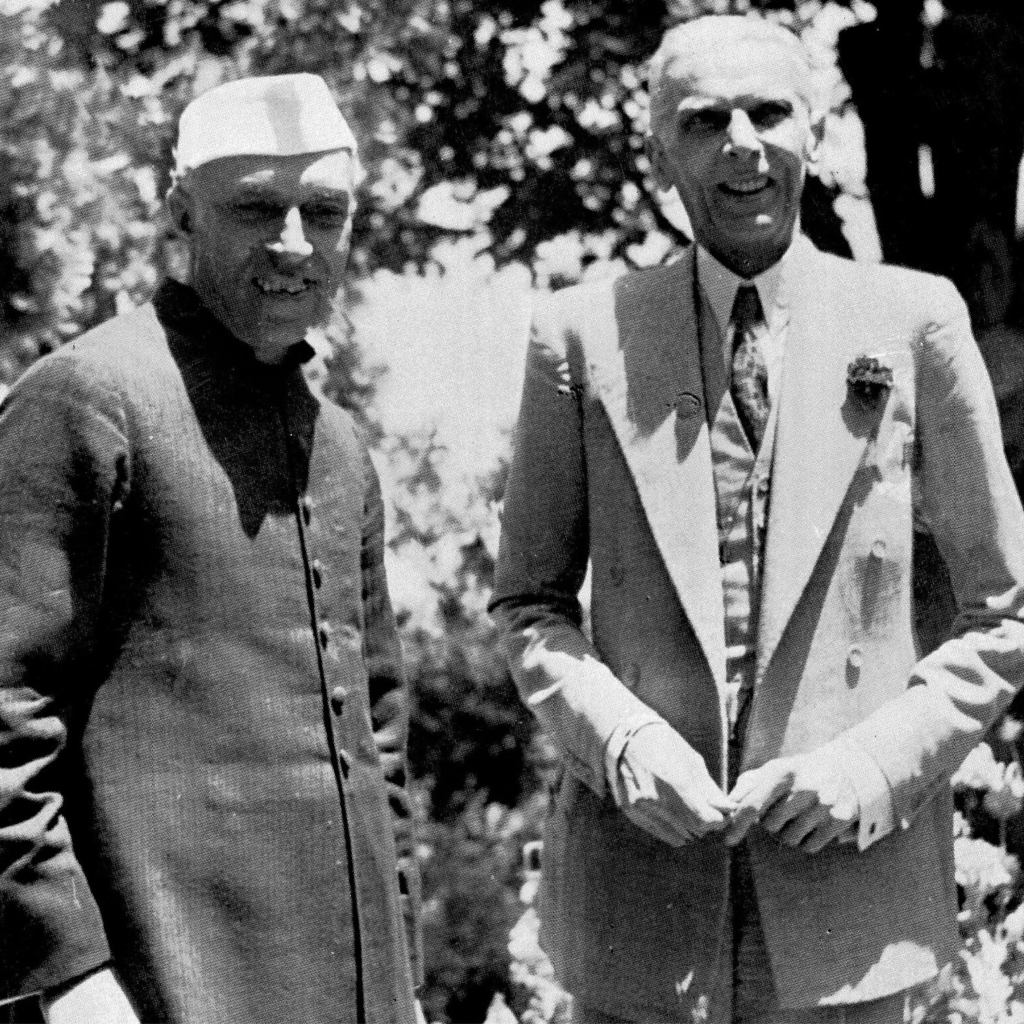
Jawaharlal Nehru and Muhammad Ali Jinnah
The question with which we started, as I understood, is of safeguarding the rights and the interests of the Mussalmans with regard to their religion, culture, language, personal laws and political rights in the national life, the government and the administration of the country. Various suggestions have been made which will satisfy the Mussalmans and create a sense of security and confidence in the majority community. I am surprised when you say in your letter under reply, ‘But what are these matters which are germane? It may be that I am dense or not sufficiently acquainted with the intricacies of the problem. If so, I deserve to be enlightened. If you will refer me to any recent statement made in the press or platform which will help me in understanding, I shall be grateful.’ Perhaps you have heard of the Fourteen Points.
Next, as you say, ‘Apart from this much has happened during these past few years which has altered the position.’ Yes, I agree with you, and various suggestions have appeared in the newspapers recently. For instance, if you will refer to the Statesman, dated the 12th of February 1938, there appears an article under the heading ‘Through “Muslim Eyes’ (copy enclosed for your convenience). Next, an article in the New Times, dated the 1st of March 1938, dealing with your pronouncement recently made, I believe at Haripura sessions of the Congress, where you are reported to have said: ‘I have examined this so-called communal question through the telescope, and if there is nothing what can you see.
This article in the New Times appeared on the 1st of March 1938, making numerous suggestions (copy enclosed for your convenience). Further you must have seen Mr Aney’s interview where he warned the Congress mentioning some of the points which the Muslim League would demand.
I consider it is the duty of every true nationalist, to whichever party or community he may belong to make it his business and examine the situation and bring about a pact between the Mussalmans and the Hindus and create a real united front and it should be as much your anxiety and duty as it is mine, irrespective of the question of the party or the community to which we belong.
Now, this is enough to show to you that various suggestions that have been made, or are likely to be made, or are expected to be made, will have to be analysed and ultimately I consider it is the duty of every true nationalist, to whichever party or community he may belong to make it his business and examine the situation and bring about a pact between the Mussalmans and the Hindus and create a real united front and it should be as much your anxiety and duty as it is mine, irrespective of the question of the party or the community to which we belong. But if you desire that I should collect all these suggestions and submit to you as a petitioner for you and your colleagues to consider, I am afraid I can’t do it nor can I do it for the purpose of carrying on further correspondence with regard to those various points with you. But if you still insist upon that, as you seem to do so when you say in your letter, ‘My mind demands clarity before it can function effectively or think in terms of any action. Vagueness or an avoidance of real issues could not lead to satisfactory results. It does seem strange to me that in spite of my repeated requests I am not told what issues have to be discussed.’ This is hardly a correct description or a fair representation, but in that case I would request you to ask the Congress officially to communicate with me to that effect, and I shall place the matter before the Council of the All-India Muslim League; as you yourself say that you are ‘not the Congress President and thus have not the same representative capacity but if I can be of any help on this matter my services are at the disposal of the Congress and I shall gladly meet you and discuss these matters with you’. As to meeting you and discussing matters with you, I need hardly say that I shall be pleased to do so.
Yours sincerely,
M.A. Jinnah
[Enclosure I to the above letter]
Through Muslim Eyes
By Ain-el-Mulk
Pandit Jawaharlal Nehru’s Bombay statement of January 2 on the Hindu-Moslem question has produced hopeful reactions and the stage has been set for a talk between the leaders of what, for the sake of convenience, may be described as Hindu India and Moslem India. Whether the Jinnah-Jawaharlal talks will produce in 1938 better results than the Jinnah-Prasad talks did in 1935 is yet to be seen. Too much optimism would not, however, be justified. The Pandit, by way of annotating his Bombay statement while addressing the UP delegates for Haripura at Lucknow, at the end of January, emphatically asserted that in no case would Congress ‘give up its principles’. That was not a hopeful statement because any acceptable formula or pact that may be evolved by the leaders of the Congress and the League would, one may guess, involve the acquiescence of the Congress in separate electorates (at least for a certain period), coalition ministries, recognition of the League as the one authoritative and representative organization of Indian Moslems, authoritative and representative organization of Indian Moslems, modification of its attitude on the question of Hindi and its script, scrapping of Bande Mataram altogether, and possibly a redesigning of the tricolour flag or at least agreeing to give the flag of the League an equal importance. It is possible that with a little statesmanship on both sides agreement can be reached on all these points without any infringement of the principles of either, but the greatest obstacle to a satisfactory solution would still remain, in the shape of the communalists of the Mahasabha, and the irreconcilables of Bengal, all of whom are not of the Mahasabha alone.”
The right of the Congress to speak in the name of Hindus has been openly challenged and even the Jinnah-Prasad formula which did not satisfy the Moslems – and nothing on the lines of which is now likely to satisfy them – has been vehemently denounced by the Bengal Provincial Conference held at Vishnupur which recently passed an extremely communal resolution, and that the latest utterances of the Congress President-elect on the communal situation generally and the Jinnah-Prasad formula in particular show some restraint. The only thing for Moslems to do in the circumstances is to wait and hope for the best, without relaxing their efforts to add daily to the strength of the League, for it will not do to forget that it is the growing power and representative character of the Muslim League which has compelled Congress leaders to recognize the necessity for an understanding with the Moslem community.
The Statesman, New Delhi Edition, 12 February 1938.
[Enclosure II to the above letter]
The Communal Question
In its last session at Haripura, the Indian National Congress passed a resolution for assuring minorities of their religious and cultural rights. The resolution was moved by Pandit Jawaharlal Nehru and was carried. The speech which Pandit Jawaharlal Nehru made on this occasion was as bad as any speech could be. If the resolution has to be judged in the light of that speech, then it comes to this that the resolution has been passed not in any spirit of seriousness, but merely as a meaningless assurance to satisfy the foolish minorities who are clamouring ‘for the satisfaction of the communal problem’. Mr Jawaharlal Nehru proceeded on the basis that there was really no communal question. We should like to reproduce the trenchant manner in which he put forward the proposition. He said: ‘I have examined the so-called communal question through the telescope and, if there is nothing, what can you see.’ It appears to us that it is the height of dishonesty to move a resolution with these premises.
We should like to tell Pandit Jawaharlal Nehru that he has completely misunderstood the position of the Muslim minority and it is a matter of intense pain that the President of an All-India organization, which claims to represent the entire population of India, should be so completely ignorant of the demands of the Muslim minority.
If there is no minority question, why proceed to pass a resolution? Why not state that there is no minority question? This is not the first time that Pandit Jawaharlal Nehru has expressed his complete inability to understand or see the communal question. When replying to a statement of Mr Jinnah, he reiterated his conviction that in spite of his best endeavour to understand what Mr Jinnah wanted, he could not get at what he wanted. He seems to think that with the Communal Award, which the Congress has opposed, the seats in the Legislature have become assured and now nothing remains to be done. He repeats the offensive statement that the Communal Award is merely a problem created by the middle or upper classes for the sake of few seats in the Legislature or appointments in Government service or for Ministerial positions. We should like to tell Pandit Jawaharlal Nehru that he has completely misunderstood the position of the Muslim minority and it is a matter of intense pain that the President of an All-India organization, which claims to represent the entire population of India, should be so completely ignorant of the demands of the Muslim minority. We shall set forth below some of the demands so that Pandit Jawaharlal Nehru may not have any occasion hereafter to say that he does not know what more the Muslims want. The Muslim demands are:
1. That the Congress shall henceforth withdraw all opposition to the Communal Award and should cease to prate about it as if it were a negation of nationalism. It may be a negation of nationalism but if the Congress has announced in its statement that it is not opposing the Communal Award, the Muslims want that the Congress should at least stop all agitation for the recession of the Communal Award.
2. The Communal Award merely settles the question of the representation of the Muslims and of other minorities in the Legislatures of the country. The further question of the representation of the minorities in the services of the country remains. Muslims demand that they are as much entitled to be represented in the services of their motherland as the Hindus and since the Muslims have come to realize by their bitter experience that it is impossible for any protection to be extended to Muslim rights in the matter of their representation in the services, it is necessary that the share of the Muslims in the services should be definitely fixed in the constitution and by statutory enactment so that it may not be open to any Hindu head of any department to ride roughshod over Muslim claims in the name of ‘Efficiency’. Pandit Jawaharlal Nehru knows that in the name of efficiency and merit, the rights of Indians to man the services of their country was denied by the bureaucracy. Today when Congress is in power in seven Provinces, the Muslims have a right to demand the Congress leaders that they shall unequivocally express themselves in this regard.
3 Muslims demand that the protection of their Personal Law and their culture shall be guaranteed by the statute. And as an acid test of the sincerity of Pandit Jawaharlal Nehru and the Congress in this regard, Muslims demand that the Congress should take in hand the agitation in connection with the Shahidganj Mosque and should use its moral Pressure to ensure that the Shahidganj Mosque is restored to its original position and that the Sikhs desist from profane uses and thereby injuring the religious susceptibilities of the Muslims.
4. Muslims demand that their right to call Azan and perform religious ceremonies shall not be fettered in any way. We should like to tell Pandit Jawaharlal Nehru that in a village, in the Kasur Tehsil, of the Lahore District, known as Raja Jang, the Muslim inhabitants of that place are not allowed by the Sikhs to call out their Azans loudly. With such neighbours it is necessary to have a statutory guarantee that the religious rights of the Muslims shall not be in any way interfered with and on the advent of Congress rule to demand of the Congress that it shall use its powerful organization for the prevention of such an event. In this connection we should like to tell Pandit Jawaharlal Nehru that the Muslims claim cow slaughter as one of their religious rights and demand that so long as the Sikhs are permitted to carry on Jhatka and to live on Jhatka, the Muslims have every right to insist on their undoubted right to slaughter cows. Pandit Jawaharlal Nehru is not a very great believer in religious injunctions. He claims to be living on the economic plane and we should like Pandit Jawaharlal Nehru to know that for a Muslim the question of cow slaughter is a measure of economic necessity and that therefore it [is] not open to any Hindu to statutorily prohibit the slaughter of cows.
5. Muslims demand that their majorities in the Provinces in which they are at present shall not be affected by any territorial redistributions or adjustments. The Muslims are at present in majority in the provinces of Bengal, Punjab, Sind, North West Frontier Province and Baluchistan. Let the Congress hold out the guarantee and express its readiness to the incorporation of this guarantee in the Statute that the present distribution of the Muslim population in the various provinces shall not be interfered with through the medium of any territorial distribution or re-adjustment.
6. The question of the national anthem is another matter. Pandit Jawaharlal Nehru cannot be unaware that Muslims all over have refused to accept the Bande Mataram or any expurgated addition of that anti-Muslim song as a binding national anthem. If Pandit Jawaharlal Nehru cannot succeed in inducing the Hindu majority to drop the use of this song, then let him not talk so tall, and let him realize that the great Hindu mass does not take him seriously except as a strong force to injure the cause of Muslim solidarity.
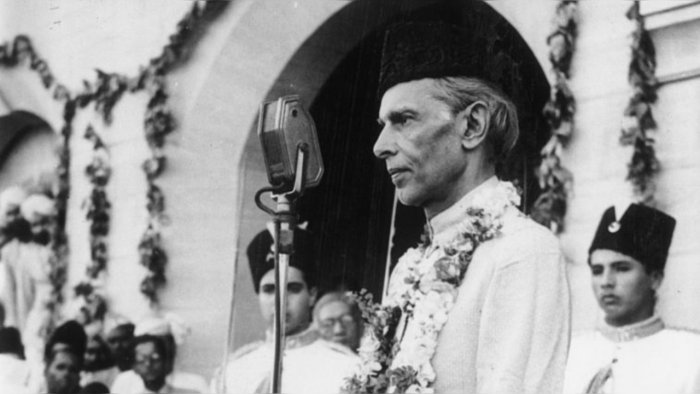
Muhammad Ali Jinnah
7. The question of language and script is another demand of the Muslims. The Muslims insist on Urdu being practically their national language; they want statutory guarantees that the use of [the] Urdu tongue shall not in any wiser manner be curtailed or damaged.
8. The question of the representation of the Muslims in the local bodies is another unsolved question. Muslims demand that the principle underlying the Communal Award, namely, separate electorates and representation according to population strength should apply uniformly in all the various local and other elected bodies from top to bottom.
We can go on multiplying this list but for the present we should like to know the reply of the Congress and Pandit Jawaharlal Nehru to the demands that we have set forth above. We should like Pandit Jawaharlal Nehru fully to understand that the Muslims are more anxious than the Hindus to see complete independence in the real sense of that term established in India. They do not believe in any Muslim Raj for India and will fight a Hindu Raj tooth and nail. They stand for the complete freedom of the country and of all classes inhabiting this country, but they shall oppose the establishment of any majority raj of a kind that will make a clean sweep of the cultural, religious and political guarantees of the various minorities as set forth above. Pandit Jawaharlal Nehru is under the comforting impression that the question set forth above are trivial questions but he should reconsider his position in the light of the emphasis and importance which the minorities which are affected by the programme of the Congress place on these matters. After all it is the minorities which are to judge and not the majorities. It appears to us that with the attitude of mind which Pandit Jawaharlal Nehru betrayed in his speech and which the seconder of that resolution equally exhibited in his speech, namely, that the question of minorities and majorities was an artificial one and created to suit vested interests, it is obvious that nothing can come out of the talks that Pandit Jawaharlal Nehru recently initiated between himself and Mr Jinnah. If the Congress is in the belief that this reiteration of its inane pledge to the minorities will satisfy them and that they will be taken in by mere words, the Congress is badly mistaken.
New Times, Lahore, 1 March 1938
Nehru to Jinnah – 6 April 1938
Calcutta,
6 April 1938
Dear Mr Jinnah,
Your last letter of the 17th March reached me in the Kumaun hills where I had gone for a brief holiday. From there I have come to Calcutta. I propose to return to Allahabad today and I shall probably be there for the greater part of April. If it is convenient for you to come there we could meet. Or if it suits you better to go to Lucknow I shall try to go there.
I am glad that you have indicated in your last letter a number of points which you have in mind. The enclosures you have sent mention these and I take it that they represent your viewpoint. I was somewhat surprised to see this list as I had no idea that you wanted to discuss many of these matters with us. Some of these are wholly covered by previous decisions of the Congress, some others are hardly capable of discussion.
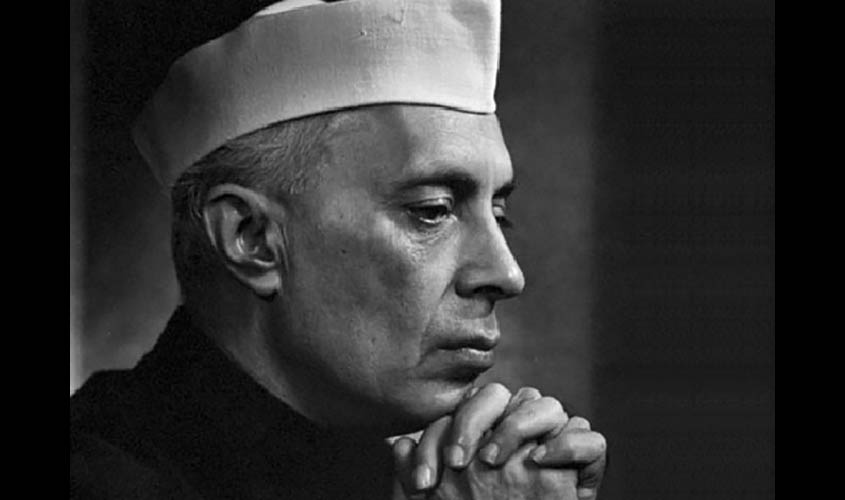
Jawaharlal Nehru
As far as I can make out from your letter and the enclosures you have sent, you wish to discuss the following matters:
1. The Fourteen Points formulated by the Muslim League in 1929.
2. The Congress should withdraw all opposition to the Communal Award and should not describe it as a negation of nationalism.
3. The share of the Muslims in the state services should be definitely fixed in the Constitution by statutory enactment.
4. Muslim Personal Law and culture should be guaranteed by Statute.
5. The Congress should take in hand the agitation in connection with the Shahidganj Mosque and should use its moral pressure to enable the Muslims to gain possession of the mosque.
6. The Muslim’s right to call Azan and perform religious ceremonies should not be fettered in any way.
7. Muslims should have freedom to perform cow-slaughter.
8. Muslim majorities in the Provinces, where such majorities exist at present, must not be affected by any territorial redistribution or adjustments.
9. The Bande Mataram song should be given up.
10. Muslims want Urdu to be the national language of India and they desire to have statutory guarantees that the use of Urdu shall not be curtailed or damaged.
11. Muslim representation in the local bodies should be governed by the principles underlying the Communal Award, that is separate electorates and population strength.
12. The tricolour flag should be changed or, alternatively, the flag of the Muslim League should be given equal importance.
13. Recognition of the Muslim League as the one authoritative and representative organization of Indian Muslims.
14. Coalition ministries.
It is further stated that the formula evolved by you and Babu Rajendra Prasad in 1935 does not satisfy the Muslims now and nothing on those lines will satisfy them. It is added that the list given above is not a complete list and that it can be augmented by the addition of further ‘demands’. Not knowing these possible and unlimited additions I can say nothing about them. But I should like to deal with the various matters specifically mentioned and to indicate what the Congress attitude has been in regard to them.
But before considering them, the political and economic background of the free India we are working for has to be kept in mind, for ultimately that is the controlling factor. Some of these matters do not arise in considering an independent India or take a particular shape or have little importance. We can discuss them in terms of Indian independence or in terms of the British dominance of India continuing. The Congress naturally thinks in terms of independence, though it adjusts itself occasionally to the pressure of transitional and temporary phases. It is thus not interested in amendments to the present constitution, but aims at its removal and its substitution by a constitution framed by the people through a Constituent Assembly.
But before considering them, the political and economic background of the free India we are working for has to be kept in mind, for ultimately that is the controlling factor. Some of these matters do not arise in considering an independent India or take a particular shape or have little importance. We can discuss them in terms of Indian independence or in terms of the British dominance of India continuing. The Congress naturally thinks in terms of independence, though it adjusts itself occasionally to the pressure of transitional and temporary phases. It is thus not interested in amendments to the present constitution, but aims at its removal and its substitution by a constitution framed by the people through a Constituent Assembly.
Another matter has assumed an urgent and vital significance and this is the exceedingly critical international situation and the possibility of war. This must concern India greatly and affect her struggle for freedom. This must therefore be considered the governing factor of the situation and almost everything else becomes of secondary importance, for all our efforts and petty arguments will be of little avail if the very foundation is upset. The Congress has clearly and repeatedly laid down its policy in the event of such a crisis and stated that it will be no party to imperialist war. The Congress will very gladly and willingly cooperate with the Muslim League and all other organizations and individuals in the furtherance of this policy.
I have carefully looked through the various matters to which you have drawn attention in your letter and its enclosures and I find that there is nothing in them which refers to or touches the economic demands of the masses or affects the all-important questions of poverty and unemployment. For all of us in India these are the vital issues and unless some solution is found for them, we function in vain. The question of state services, howsoever important and worthy of consideration it might be, affects a very small number of people. The peasantry, industrial workers, artisans and petty shop-keepers form the vast majority of the population and they are not improved in any way by any of the demands listed above. Their interests should be paramount.
Many of the ‘demands’ involve changes of the constitution which we are not in a position to bring about. Even if some such changes are desirable in themselves, it is not our policy to press for minor constitutional changes. We want to do away completely with the present constitution and replace it by another for a free India.
In the same way, the desire for statutory guarantees involves constitutional changes which we cannot give effect to. All we can do is to state that in a future constitution for a free India we want certain guarantees to be incorporated. We have done this in regard to religious, cultural, linguistic and other rights of minorities in the Karachi resolution on fundamental rights. We would like these fundamental rights to be made a part of the constitution.
I now deal with the various matters listed above.
1. The Fourteen Points, I had thought, were somewhat out of date. Many of their provisions have been given effect to by the Communal Award and in other ways, some others are entirely acceptable to the Congress; yet others require constitutional changes which, as I have mentioned above, are beyond our present competence. Apart from the matters covered by the Communal Award and those involving a change in the constitution, one or two matters remain which give rise to differences of opinion and which are still likely to lead to considerable argument.
2. The Congress has clearly stated its attitude towards the Communal Award, and it comes to this that it seeks alterations only on the basis of mutual consent of the parties concerned. I do not understand how anyone can take objection to this attitude and policy. If we are asked to describe the Award as not being anti-national, that would be patently false. Even apart from what it gives to various groups, its whole basis and structure are anti-national and come in the way of the development of national unity. As you know it gives an overwhelming and wholly underserving weightage to the European elements in certain parts of India. If we think in terms of an independent India, we cannot possibly fit in this Award with it. It is true that under stress of circumstances we have sometimes to accept as a temporary measure something that is on the face of it anti-national. It is also true that in the matters governed by the Communal Award we can only find a satisfactory and abiding solution by the consent and goodwill of the parties concerned. That is the Congress policy.
3. The fixing of the Muslims’ share in the state services by statutory enactment necessarily involves the fixing of the shares of other groups and communities similarly. This would mean a rigid and compartmental state structure which will impede progress and development. At the same time it is generally admitted that state appointments should be fairly and adequately distributed and no community should have cause to complain. It is far better to do this by convention and agreement. The Congress is fully alive to this issue and desires to meet the wishes of various groups in the fullest measure so as to give to all minority communities, as stated in No. 11 of the Fourteen Points, ‘an adequate share in all the services of the state and in local self-governing bodies having due regard to the requirements of efficiency’. The state today is becoming more and more technical and demands expert knowledge in its various departments. It is right that, if a community is backward in this technical and expert knowledge, special efforts should be made to give it this education to bring it up a to higher level.
I understand that at the Unity Conference held at Allahabad in 1933 or thereabouts, a mutually satisfactory solution of this question of state services was arrived at.
4. As regards protection of culture, the Congress has declared its willingness to embody this in the fundamental laws of the constitution. It has also declared that it does not wish to interfere in any way with the personal law of any community.
5. I am considerably surprised at the suggestions that the Congress should take in hand the agitation in connection with the Shahidganj Mosque. That is a matter to be decided either legally or by mutual agreement. The Congress prefers in all such matters the way of mutual agreement and its services can always be utilized for this purpose where there is no opening for them and a desire to this effect on the part of the parties concerned. I am glad that the Premier of the Punjab has suggested that this is the only satisfactory way to a solution of the problem.
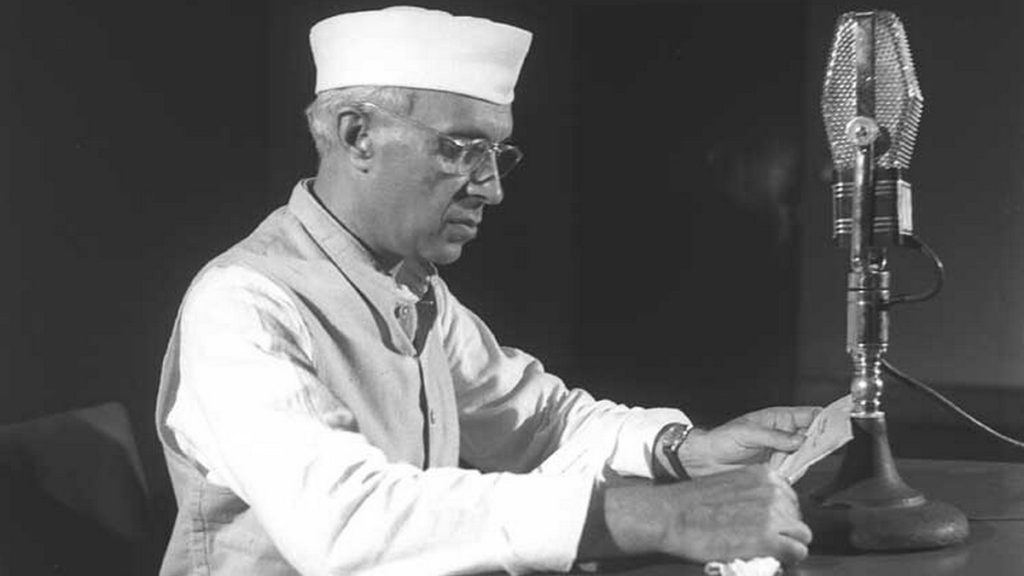
Jawaharlal Nehru
6. The right to perform religious ceremonies should certainly be guaranteed to all communities. The Congress resolution about this is quite clear. I know nothing about the particular incident relating to a Punjab village which has been referred to. No doubt many instances can be gathered together from various parts of India where petty interferences take place with Hindu, Muslim or Sikh ceremonies. These have to be tactfully dealt with wherever they arise. But the principle is quite clear and should be agreed to.
7. As regards cow-slaughter there has been a great deal of entirely false and unfounded propaganda against the Congress suggesting that the Congress was going to stop it forcibly by legislation. The Congress does not wish to undertake any legislative action in this matter to restrict the established rights of the Muslims.
8. The question of territorial distribution has not arisen in any way. If and when it arises it must be dealt with on the basis of mutual agreement of the parties concerned.
9. Regarding the Bande Mataram song the Working Committee issued a long statement in October last to which I would invite your attention. First of all, it has to be remembered that no formal national anthem has been adopted by the Congress at any time. It is true, however, that the Bande Mataram song has been intimately associated with Indian nationalism for more than thirty years and numerous associations of sentiment and sacrifice have gathered round it. Popular songs are not made to order, nor can they be successfully imposed. They grow out of public sentiment. During all these thirty or more years the Bande Mataram song was never considered as having any religious significance and was treated as a national song in praise of India. Nor, to my knowledge, was any objection taken to it except on political grounds by the Government. When, however, some objections were raised, the Working Committee carefully considered the matter and ultimately decided to recommend that certain stanzas, which contained certain allegorical references, might not be used on national platforms or occasions. The two stanzas that have been recommended by the Working Committee for use as a national song have not a word or a phrase which can offend anybody from any point of view and I am surprised that anyone can object to them. They may appeal to some more than to others. Some may prefer another national song. But to compel large numbers of people to give up what they have long valued and grown attached to is to cause needless hurt to them and injure the national movement itself. It would be improper for a national organization to do this.
10. About Urdu and Hindi I have previously written to you and have also sent you my pamphlet on ‘The Question of Language’. The Congress has declared in favour of guarantees for languages and culture. I want to encourage all the great provincial languages of India and at the same time to make Hindustani, as written both in the Nagri and Urdu scripts, the national language. Both scripts should be officially recognized and the choice should be left to the people concerned. In fact this policy is being pursued by the Congress Ministries.
About Urdu and Hindi I have previously written to you and have also sent you my pamphlet on ‘The Question of Language’. The Congress has declared in favour of guarantees for languages and culture. I want to encourage all the great provincial languages of India and at the same time to make Hindustani, as written both in the Nagri and Urdu scripts, the national language. Both scripts should be officially recognized and the choice should be left to the people concerned.
11. The Congress has long been of opinion that joint electorates are preferable to separate electorates from the point of view of national unity and harmonious co-operation between the different communities. But joint electorates, in order to have real value, must not be imposed on unwilling groups. Hence the Congress is quite clear that their introduction should depend on their acceptance by the people concerned. This is the policy that is being pursued by the Congress Ministries in regard to Local bodies. Recently in a Bill dealing with local bodies introduced in the Bombay Assembly, separate electorates were maintained but an option was given to the people concerned to adopt a joint electorate, if they so chose. This principle seems to be in exact accordance with No. 5 of the Fourteen Points, which lays down that ‘representation of communal groups shall continue to be by means of separate electorate as at present, provided that it shall be open to any community, at any time, to abandon its separate electorate in favour of joint electorate’. It surprises me that the Muslim League group in the Bombay Assembly should have opposed the Bill with its optional clause although this carried out the very policy of the Muslim League.
May I also point out that in the resolution passed by the Muslim League in 1929, at the time it adopted the Fourteen Points, it was stated that ‘the Mussalmans will not consent to join electorates unless Sind is actually constituted into a separate province and reforms in fact are introduced in the NWF Province and Baluchistan on the same footing as in other provinces’. Since then Sind has been separated and the NWF Province has been placed on a level with other provinces. So far as Baluchistan is concerned the Congress is committed to a levelling up of this area in the same way.
12. The national tricolour flag was adopted originally in 1929 by the Congress after full and careful consultation with eminent Muslim, Sikh and other leaders. Obviously a country and national movement must have a national flag representing the nation and all communities in it. No communal flag can represent the nation. If we did not possess a national flag now we would have to evolve one. The present national flag had its colours originally selected in order to represent the various communities, but we did not like to lay stress on this communal aspect of colours. Artistically I think the combination of orange, white and green resulted in a flag which is probably the most beautiful of all national flags. For these many years our flag has been used and it has spread to the remotest village and brought hope and courage and a sense of all India unity to our masses. It has been associated with great sacrifices on the part of our people, including Hindus, Muslims and Sikhs, and many have suffered lathi blows and imprisonment and even death in defending it from insult or injury. Thus a powerful sentiment has grown in its favour. On innumerable occasions Maulana Mohamed Ali, Maulana Shaukat Ali and many leaders of the Muslim League today have associated themselves with this flag and emphasized its virtues and significance as a symbol of Indian unity. It has spread outside the Congress ranks and been generally recognized as the flag of the nation. It is difficult to understand how anyone can reasonably object to it now.
Communal flags cannot obviously take its place for that can only mean a host of flags of various communities being used together and thus emphasizing our disunity and separateness. Communal flags might be used for religious functions but they have no place at any national functions or over any public building meant for various communities.
May I add that during the past few months, on several occasions, the national flag has been insulted by some members or volunteers of the Muslim League. This has pained us greatly but we have deliberately avoided anything in the nature of conflict in order not to add to communal bitterness. We have also issued strict orders, and they have been obeyed, that no interference should take place with the Muslim League flag, even though it might be inappropriately displayed.
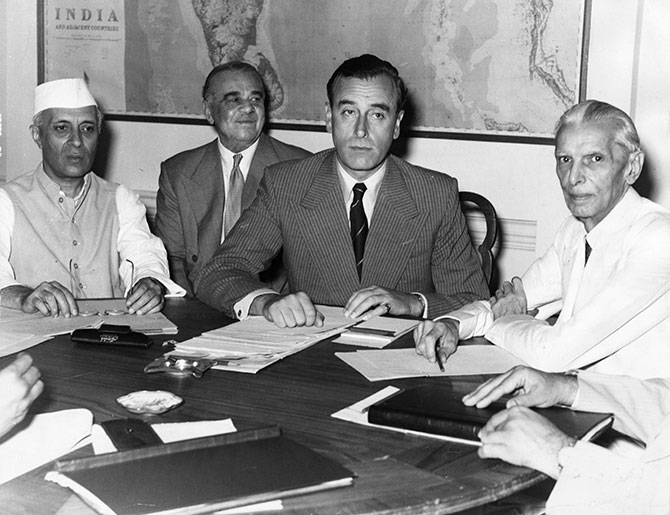
Jawaharlal Nehru and Muhammad Ali Jinnah in a meeting with Lord Mountbatten
13. I do not understand what is meant by our recognition of the Muslim League as the one and only organization of Indian Muslims. Obviously the Muslim League is an important communal organization and we deal with it as such. But we have to deal with all organizations and individuals that come within our ken. We do not determine the measure or importance or distinction they possess. There are a large number, about a hundred thousand, of Muslims on the Congress rolls, many of whom have been our close companions, in prisons and outside, for many years and we value their comradeship highly. There are many organizations which contain Muslims and non-Muslims alike, such as trade unions, peasant unions, kisan sabhas, debt committees, zamindar associations, chambers of commerce, employers’ association, etc., and we have contacts with them. There are special Muslim organizations such as the Jamiat-ul-Ulema, the Proja Party, the Ahrars and others, which claim attention. Inevitably the more important the organization, the more the attention paid to it, but this importance does not come from outside recognition but from inherent strength. And the other organizations, even though they might be younger and smaller, cannot be ignored.
14. I should like to know what is meant by coalition ministries. A ministry must have a definite political and economic programme and policy. Any other kind of ministry would be a disjointed and ineffective body, with no clear mind or direction. Given a common political and economic programme and policy, cooperation is easy. You know probably that some such cooperation was sought for and obtained by the Congress in the Frontier Province. In Bombay also repeated attempts were made on behalf of the Congress to obtain this cooperation on the basis of a common programme. The Congress has gone to the assemblies with a definite programme and in furtherance of clear policy. It will always gladly cooperate with other groups, whether it is a majority or a minority in an assembly, in furtherance of that programme and policy. On that basis I conceive of even coalition ministries being formed. Without that basis the Congress has no interest in a ministry or in an assembly.
I have dealt, I am afraid at exceeding length, with the various points raised in your letter and its enclosures. I am glad that I have had a glimpse into your mind through this correspondence as this enables me to understand a little better the problems that are before you and perhaps others. I agree entirely that it is the duty of every Indian to bring about [a] harmonious joint effort of all of us for the achievement of India’s freedom and the ending of the poverty of her people. For me, and I take it for most of us, the Congress has been a means to that end and not an end in itself. It has been a high privilege for us to work through the Congress because it has drawn to itself the love of millions of our countrymen, and through their sacrifice and united effort, taken us a long way to our goal. But much remains to be done and we have all to pull together to that end.
Personally the idea of pacts and the like does not appeal to me, though perhaps they might be necessary occasionally. What seems to me far more important is a more basic understanding of each other, bringing with it the desire and ability to cooperate together. That larger cooperation, if it is to include our millions must necessarily be in the interests of these millions. My mind therefore is continually occupied with the problems of these unhappy masses of this country and I view all other problems in this light. I should live to view the communal problem also in this perspective for otherwise it has no great significance for me.
Personally the idea of pacts and the like does not appeal to me, though perhaps they might be necessary occasionally. What seems to me far more important is a more basic understanding of each other, bringing with it the desire and ability to cooperate together. That larger cooperation, if it is to include our millions must necessarily be in the interests of these millions. My mind therefore is continually occupied with the problems of these unhappy masses of this country and I view all other problems in this light. I should live to view the communal problem also in this perspective for otherwise it has no great significance for me.
You seem to imagine that I wanted you to put forward suggestions as a petitioner, and then you propose that the Congress should officially communicate with you. Surely you have misunderstood me and done yourself and me an injustice. There is no question of petitioning either by you or by me, but a desire to understand each other and the problem that we have been discussing. I do not understand the significance of your wanting an official intimation from the Congress. I did not ask you for an official reply on behalf of the Muslim League. Organizations do not function in this way. It is not a question of prestige for the Congress or for any of us, for we are keener on reaching the goal we have set before us, than on small matters of prestige. The Congress is a great enough organization to ignore such petty matters, and if some of us have gained a measure of influence and popularity, we have done so in the shadow of the Congress.
You will remember that I took the initiative in writing to you and requesting you to enlighten me as to what your objections were to the Congress policy and what, according to you, were the points in dispute. I had read many of your speeches, as reported in the press, and I found to my regret that they were full of strong attacks on the Congress which, according to my way of thinking, were not justified. I wanted to remove any misunderstandings, where such existed, and to clear the air.
I have found, chiefly in the Urdu press, the most astounding falsehoods about the Congress. I refer to facts, not to opinions, and to facts within my knowledge. Two days ago, here in Calcutta, I saw a circular letter or notice issued by a secretary of the Muslim League. This contained a list of the so-called misdeeds of the UP Government. I read this with amazement for there was not an atom of truth in most of the charges. I suppose they were garnered from the Urdu press. Through the press and the platform such charges have been repeated on numerous occasions and communal passions have thus been roused and bitterness created. This has grieved me and I have sought by writing to you and to Nawab Ismail Khan to find a way of checking this deplorable deterioration of our public life, as well as a surer basis for cooperation. That problem still faces us and I hope we shall solve it.
I have mentioned earlier in this letter the critical international situation and the terrible sense of impending catastrophe that hangs over the world. My mind is obsessed with this and I want India to realize it and be ready for all consequences, good or ill, that may flow from it. In this period of world crisis all of us, to whatever party or group we might belong and whatever our differences might be, have the primary duty of holding together to protect our people from perils that might encompass them.
I have mentioned earlier in this letter the critical international situation and the terrible sense of impending catastrophe that hangs over the world. My mind is obsessed with this and I want India to realize it and be ready for all consequences, good or ill, that may flow from it. In this period of world crisis all of us, to whatever party or group we might belong and whatever our differences might be, have the primary duty of holding together to protect our people from perils that might encompass them.
Our differences and arguments seem trivial when the future of the world and of India hangs in the balance. It is in the hope that all of us will succeed in building up this larger unity in our country that I have written to you and others repeatedly and at length.
There is one small matter I should like to mention. The report of my speech at Haripura, as given in your letter and the newspaper article, is not correct.
We have been corresponding for some time and many vague rumours float about as to what we have been saying to each other. Anxious inquiries come to me and I have no doubt that similar inquiries are addressed to you also. I think that we might take the public into our confidence now for this is a public matter on which many are interested. I suggest, therefore, that our correspondence might be released to the press. I presume you will have no objection.
Yours sincerely,
Jawaharlal Nehru
Jinnah to Nehru – 12 April 1938
Bombay,
12 April 1938
Dear Pandit Jawaharlal,
I an in receipt of your letter of the 6th April 1938. I am extremely obliged to you for informing me that you propose to return to Allahabad and shall probably be there for the greater part of April and suggesting that, if it would be convenient for me to come there, we could meet, or, if it suits me better to go to Lucknow, you will try to go there. I am afraid that it is not possible for me owing to my other engagements, but I shall be in Bombay about the end of April and if it is convenient to you, I shall be very glad to meet you.
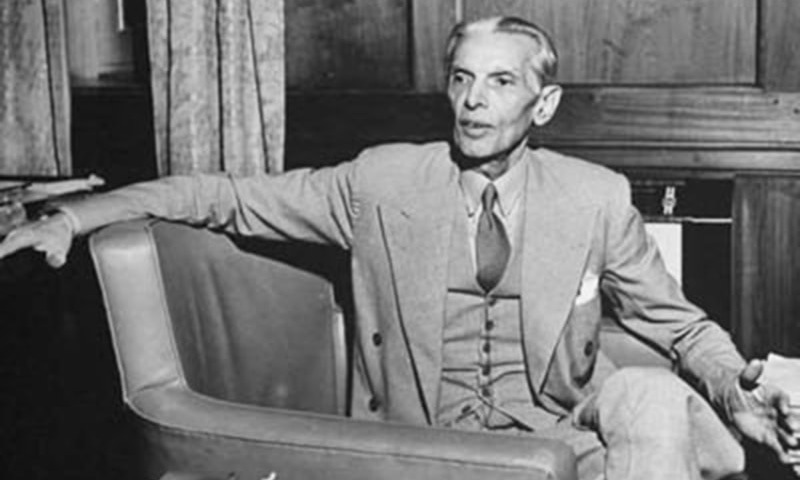
Muhammad Ali Jinnah
It seems to me that you cannot even accurately interpret my letter, as you very honestly say that your ‘mind is obsessed with the international situation and the terrible sense of impending catastrophe that hangs over the world’, so you are thinking in terms entirely divorced from realities which face us in India. I can only express my great regret at your turning and twisting what I wrote to you and putting entirely a wrong complexion upon the position I have placed before you at your request.
As to the rest of your letter, it has been to me a most painful reading. It seems to me that you cannot even accurately interpret my letter, as you very honestly say that your ‘mind is obsessed with the international situation and the terrible sense of impending catastrophe that hangs over the world’, so you are thinking in terms entirely divorced from realities which face us in India. I can only express my great regret at your turning and twisting what I wrote to you and putting entirely a wrong complexion upon the position I have placed before you at your request. You have formulated certain points in your letter which you father upon me to begin with as my proposals. I sent you extracts from the press which had recently appeared simply because I believed you when you repeatedly asserted and appealed to me that you would be grateful if I would refer you to any recent statements made in the press or platform which would help you in understanding matters. Those are some of the matters which are undoubtedly agitating Muslim India, but the question how to meet them and to what extent and by what means and methods, is the business, as I have said before, of every true nationalist to solve. Whether constitutional changes are necessary, whether we should do it by agreement or conventions and so forth, are matters, I thought, for discussion, but I am extremely sorry to find that you have in your letter already pronounced your judgment and given your decisions on a good many of them with a preamble which negatives any suggestion of discussion which may lead to a settlement, as you start by saying ‘I was somewhat surprised to see this list as I had no idea that you wanted to discuss many of these matters with us; some of these are wholly covered by previous decisions of the Congress, some others are hardly capable of discussion’, and then you proceed to your conclusions having formulated the points according to your own notions. Your tone and language again display the same arrogance and militant spirit as if the Congress is the sovereign power and, as an indication, you extend your patronage by saying that ‘obviously the Muslim League is an important communal organization and we deal with it as such, as we have to deal with all organizations and individuals that come within our ken. We do not determine the measure of importance or distinction they possess,’ and then you mention various other organizations. Here I may add that in my opinion, as I have publicly stated so often, that unless the Congress recognizes the Muslim League on a footing of complete equality and is prepared as such to negotiate for a Hindu-Muslim settlement, we shall have to wait and depend upon our inherent strength which will ‘determine the measure of importance or distinction it possesses’. Having regard to your mentality it is really difficult for me to make you understand the position any further. Of course, as I have said before, I do not propose to discuss the various matters, referred to by you, by means of and through correspondence, as, in my opinion, that is not the way to tackle this matter.
Your tone and language again display the same arrogance and militant spirit as if the Congress is the sovereign power and, as an indication, you extend your patronage by saying that ‘obviously the Muslim League is an important communal organization and we deal with it as such, as we have to deal with all organizations and individuals that come within our ken. We do not determine the measure of importance or distinction they possess,’ and then you mention various other organizations.
With regard to your reference to certain falsehoods that have appeared about the Congress in the Urdu press, which, you say, have astounded you, and with regard to the circular letter referred to about the misdeeds of the UP Government, I can express no opinion without investigation, but I can give you [a] number of falsehoods that have appeared in the Congress press and in statements of Congressmen with regard to the All-India Muslim League, some of the leaders and those who are connected with it. Similarly I can give instances of reports appearing in the Congress press and speeches of Congressmen which are daily deliberately misrepresenting and vilifying the Muslim composition of the Bengal, Sind, Punjab and Assam Governments with a view to break those governments, but that is not the subject matter of our correspondence and besides no useful purpose will be served in doing so.
With regard to your request that our correspondence should be released to the press, I have no objection provided the correspondence between me and Mr Gandhi is also published simultaneously, as we both have referred to him and his correspondence with me in ours. You will please therefore obtain the permission of Mr Gandhi to that effect or, if you wish, I will write to him, informing him that you desire to release the correspondence between us to the press and I am willing to agree to it provided he agrees that the correspondence between him and myself is also released.
With regard to your request that our correspondence should be released to the press, I have no objection provided the correspondence between me and Mr Gandhi is also published simultaneously, as we both have referred to him and his correspondence with me in ours. You will please therefore obtain the permission of Mr Gandhi to that effect or, if you wish, I will write to him, informing him that you desire to release the correspondence between us to the press and I am willing to agree to it provided he agrees that the correspondence between him and myself is also released.
Yours sincerely,
M.A. Jinnah
These letters have been republished from Nehru: The Debates that Defined India, courtesy the permission of Tripurdaman Singh and Adeel Hussain. You can buy the book here.
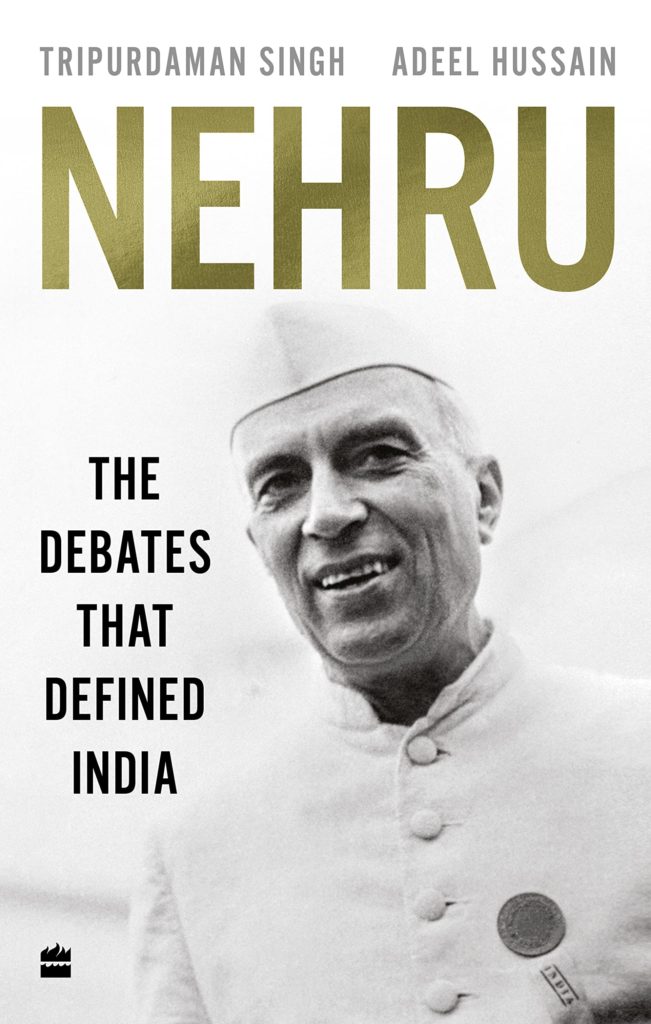
ARCHIVE
The Singur-Nandigram-Lalgarh Journey
At 7.30 a.m. on 18 December 2006, Mamata Banerjee heard of the murder of sixteen-year-old Tapasi Malik, an activist in the Singur agitation. At that time, the Trinamool leader was on an indefinite fast protesting coercive land acquisition in Singur. The agitation against handing over 1,000 acres of fertile multi-crop land to the Tatas for their Nano factory, where they would build the cheapest car in India, was spreading like wildfire.
‘I am writing this from the podium where I have been on fast. Here I learnt at 7.30 on the morning of the 18th that Tapasi Malik, who till yesterday was on fast with the rest of the protestors in Singur, has been raped and murdered earlier this morning at five. […] I spoke to Tapasi’s brother from the podium. I was told that despite the presence of the family, the police had rushed the body to hospital. Immediately, I urged Trinamool MP Mukul Roy, leader of the Opposition Partha Chatterjee, and Amitabha Bhattacharya to leave for the spot so that the police and CPI-M cannot brush the incident under the carpet,’ Mamata wrote.
Terror was stalking Singur. Activists were being intimidated and thrashed; some, like Rajkumar Bhulu and Tapasi Malik, were killed. Tapasi’s murder stunned the people of West Bengal, giving the Singur agitation a razor-sharp edge. Civil society members, intellectuals, artistes, political activists of all stripes and NGO activists all joined in.
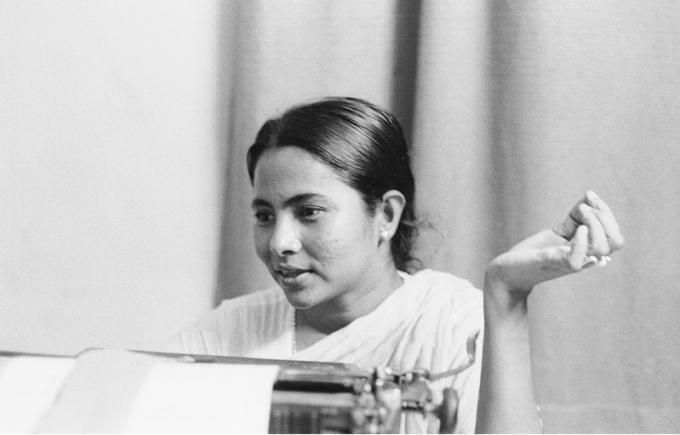
Mamata Banerjee became the general secretary of the Indian Youth Congress in 1984, also the year where she defeated veteran Somnath Chatterjee to become one of the youngest parliamentarians of the country.
Mamata demanded a CBI inquiry into the murder. She finally had her way, but not before the CPI-M had launched a smear campaign, accusing Tapasi’s father of raping her. A look at the CPI-M’s rhetoric during this period may help us understand the dynamics of the Singur upsurge—a phenomenon that marked the beginning of Mamata’s ascendance in West Bengal politics.
Within three years of her Singur struggle, Mamata found an acceptance among all sections and classes of people that far exceeded her own expectation. She was finally the ‘real’ face of a political alternative. The more the CPI-M railed against the Trinamool Congress, the more people perceived Mamata as their deliverer from an arrogant ruling coalition. To understand her swift and dramatic transition from an erratic leader to a people’s person who could transcend barriers of class, culture and politics, we must revisit those three crucial years, 2006 to 2009.
By then, their backs to the wall on the Singur issue, the communists were lashing out. Much of the rhetoric—its lack of gender sensitivity for instance—would have been only too familiar to Mamata. Here is an example of the party’s vocabulary following Tapasi’s murder, from an article in the CPI-M mouthpiece People’s Democracy:
The Central Bureau of Investigation (CBI) probing the case now believes that the young woman’s father and brother might have had something to do with her murder.
Tapasi’s death had been utilized shamelessly and to the hilt by the Naxalites, the SUCI initially, then followed up by the Trinamul Congress, the Pradesh Congress, and the BJP, to try to embarrass the CPI(M) and the Bengal Left Front government.
B. Prasant, author of the article, went on to say: ‘In all probability, the duo [Tapasi’s father Monoranjan and brother Surajit] will be subjected to sophisticated probing techniques, such as narco-analysis, brain-mapping and DNA testing. The blood samples taken from the murder site apparently do not match the samples of blood collected from Monoranjan and Surajit. The father-and-son may also be subjected to a “lie-detector” or “polygraph” test. The CBI has no doubt that young Tapasi Malik was killed in planned manner and that the story runs much deeper than what appearances would tell.’
Within three years of her Singur struggle, Mamata found an acceptance among all sections and classes of people that far exceeded her own expectation. She was finally the ‘real’ face of a political alternative. The more the CPI-M railed against the Trinamool Congress, the more people perceived Mamata as their deliverer from an arrogant ruling coalition. To understand her swift and dramatic transition from an erratic leader to a people’s person who could transcend barriers of class, culture and politics, we must revisit those three crucial years, 2006 to 2009.
A month later, the CBI arrested Suhrid Datta, secretary of the CPI-M Zonal Committee in Singur, and Debu Malik, a CPI-M supporter, in connection with Tapasi’s rape and murder. In 2008, the Chandannagar sub-divisional court sentenced both Suhrid and Debu to life imprisonment. Next year, the Calcutta High Court released Suhrid on bail, and jubilant CPI-M supporters organized a victory rally to celebrate their leader’s release.
Mamata’s Resurrection
West Bengal entered a new phase of its political history in 2006. The catalysts were Singur, Nandigram and, later, Lalgarh. Mamata stood at the threshold of a momentous phase of politics.
These developments impacted the quality of Mamata’s politics, moulding and transforming it. Her political plans had not involved becoming the nerve centre of movements of the calibre of Singur and Nandigram, with such far-reaching political and economic implications. But an unforeseen turn of events led her to this unfamiliar arena of peasants’ struggles, a quintessential feature of communist politics, a preserve of the Left. A qualitative shift marked Mamata’s transition from a theatrical activist to a figure around whom leaders, intellectuals, activists and artistes rallied. Even the well heeled, so far suspicious of her subaltern and unpolished ways, now began to view her with interest, if not admiration.
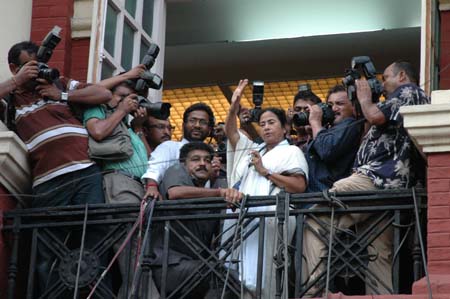
Mamata Banerjee’s first day at the Writers’ Building. Photo Credits: AITC Official.
The exit of the Tatas from Singur provoked political and economic pundits to pronounce Mamata’s doom. They said she’d be perceived as driving industrialization out of a state that was economically stagnant and in desperate need of industries. However, Mamata continued to gain electoral ground. The middle classes, dismayed though they were over the collapse of the Nano project and the exit of the Tatas, voted for the Trinamool Congress in the municipal elections. Even the middle-class Salt Lake area went the Mamata way. Clearly, anger against the Left exceeded innate reservations of class, politics and culture that in the past had weighed Mamata Banerjee down.
Today, most commentators, at least at the national level, believe that the continuum of movements—beginning with Singur, gaining ground at Nandigram, and then flowing into the tribal upsurge at Lalgarh—had their genesis in the Trinamool Congress and Mamata Banerjee. Without a doubt, Mamata—who had been virtually written off until then—was the most effective beneficiary of the movements. The pertinent question though is: did the movements ‘make’ Mamata Banerjee? Or did she ‘make’ them?
The CPI-M rhetoric is that these struggles are part of a Trinamool-Maoist conspiracy to derail industrialization and destabilize the progressive, secular, democratic (the Left Front’s three pet words) government.
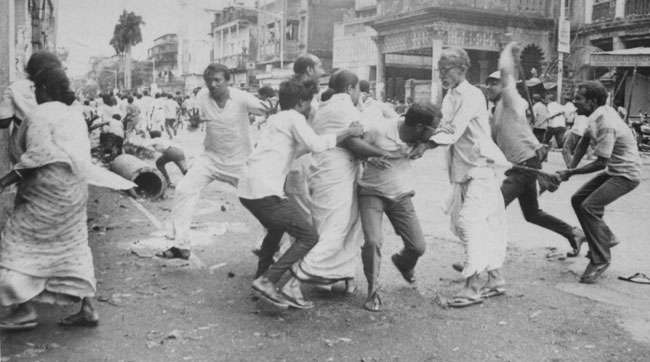
Mamata Bannerjee was attacked in 1990 by communist party goons. Photo Credits: AITC Official
But to return to our examination of the significance of these events in Mamata’s political life. There have been many catalytic agents in Mamata’s career: 1984, the victory against Somnath Chatterjee; 1990, the Hazra junction attack; 1998, founding the Trinamool; 1999, her appointment as railway minister. Like Singur and Nandigram, each one of these developments had been a marker of radical change in Mamata’s career. She defeated the veteran CPI-M MP when she was only twenty-nine years old and in the first lap of her political journey. The attack at Hazra junction on 16 August 1990 stamped her with the image of a bleeding victim, an incredibly brave woman, battling almost single-handedly, even if in vain, the CPI-M’s indomitable organization and state machinery. Mamata’s appointment as minister of railways marked her presence in West Bengal in a significantly different fashion, not just as the CPI-M’s aggressive combatant, but also as West Bengal’s ‘very own’ railway minister.
A qualitative shift marked Mamata’s transition from a theatrical activist to a figure around whom leaders, intellectuals, activists and artistes rallied. Even the well heeled, so far suspicious of her subaltern and unpolished ways, now began to view her with interest, if not admiration.
But the significance of Singur-Nandigram—coming as it did in the wake of the Left Front’s stunning electoral victory in 2006 and the Trinamool’s utter rout—was of another magnitude altogether. Between 2006 and 2009, the peasant movements changed all that, reinventing the Trinamool Congress, resurrecting and re-energizing its leader. All of a sudden, Mamata, went from being the chastened Opposition leader to becoming the most formidable contestant for power that the Left had ever tackled. Singur-Nandigram recast the image of the Trinamool, lending it the political content it sorely lacked. Crucially, the Trinamool breached the Left’s political territory, representing itself as a party of peasants and the underclass. As events unfolded, the party acquired a fundamentally new image, almost as if it had morphed into a new political entity.
In the past, Mamata Banerjee’s popularity had stemmed from her aura: her lower-middle-class background, her humble residence in a run-down area of Kolkata and her deliberate shunning of accoutrements of privilege. The Trinamool Congress leader seemed to stand out in her sheer ordinariness. But none of this helped her break through to the Left-leaning bhadralok activists, artistes and intellectuals. Not long ago, comments like ‘you do not entrust the maid with the keys to your house’ could commonly be heard in Kolkata. The radical, anti-establishment character of the bhadralok has always coexisted with a deep social and political conservatism. So even those sections of the bhadralok that were anti-CPI-M did not automatically accept Mamata.
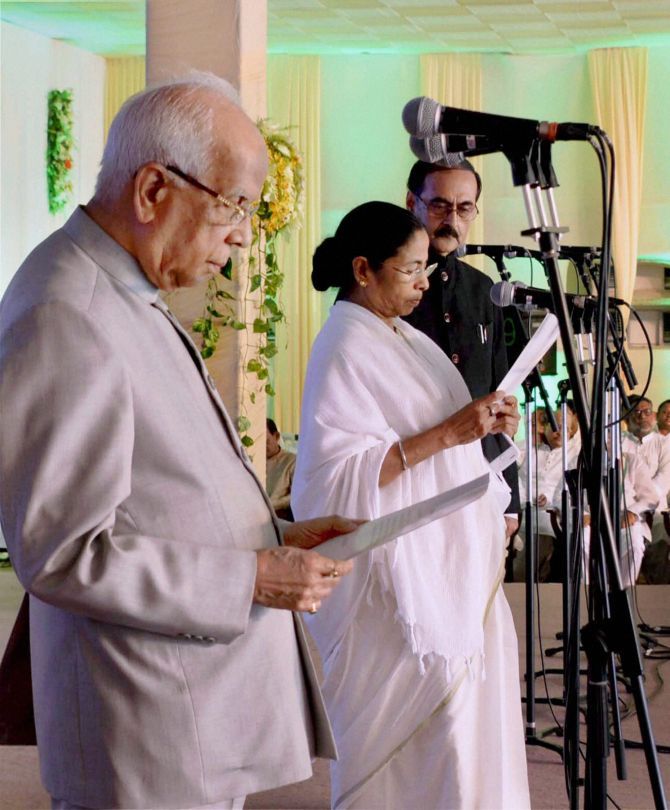
Mamata Banerjee being sworn in as West Bengal’s Chief Minister for the second time. Photo Credit: AITC Official.
For all of these reasons, 2006 was a watershed in Mamata Banerjee’s political career. Armed with her breakthrough experience of popular political movements, the Trinamool president could now negotiate political business with the CPI-M from a position of strength. She was no longer an inconsequential, muddle-headed adversary.
The change in the political barometer was evident, and Mamata was now pulling off one electoral coup after another. Even her rhetoric was more than just emotional outbursts now. Many argue that, during this period, she acquired the political language and the idiom of the Left. For instance, her slogan ‘Maa, Maati, Manush’ was essentially born out of the struggles in Singur and Nandigram, each word drawing attention to a different aspect of the emotional-political charge of those movements: ‘Maa’ synonymous with Bengal, which to Mamata, was always supreme; ‘Maati’ standing for ‘land’ not just in an economic sense, but as something people are wedded to, around which their lives revolve; ‘Manush’ referring to humanity, to humanism, which Mamata believes to be her only political ideology in the face of brutal state repression and killing.
Peasant struggles, Mamata well knew, were what had given Left politics in West Bengal its unique identity. In Andoloner Katha, a collection of essays, Mamata seems to have imbibed—if not outright appropriated—the Left’s polemics on liberalization and the need for an alternative trajectory of development. She writes: ‘In the name of development, unethical and unprincipled professional politicians-turned-businessmen are out to sell the country’s education, civilization, culture and economy.’ Again: ‘Truly, the development of twenty people is today the primary objective of politicians. Why should they think of the concerns of millions of people? They have to think of just those twenty inordinately wealthy people. […] They call it industrialization, but it is actually a narrative of destruction.’
All of a sudden, Mamata, went from being the chastened Opposition leader to becoming the most formidable contestant for power that the Left had ever tackled. Singur-Nandigram recast the image of the Trinamool, lending it the political content it sorely lacked. Crucially, the Trinamool breached the Left’s political territory, representing itself as a party of peasants and the underclass.
Suddenly, Mamata’s party of ’non-intellectuals’ started drawing to its fold a large number of Left-wing academics, intellectuals, artistes. A section of the Left-oriented disenchanted voters began to seriously consider the Trinamool Congress as a viable electoral alternative. Many, however, still held out in the early days of turbulence. ‘More than Nandigram, Singur made a qualitative difference to the party,’ says a senior Trinamool Congress leader, adding: ‘It was the first in the series of movements that changed the political landscape.’
But Nandigram and Singur were certainly not the first time that Mamata had led agitations or mobilized huge crowds. If anything, fasts and dharnas were her most tested forms of agitation. For instance, human rights activists speak of her twenty-four-day dharna at Dharamtala against deaths in police custody. So what lent the Singur movement its special quality? In Mamata’s words: ‘I have agitated in the past; I have seen huge gatherings on the Brigade Parade Ground on
21 July as well as on other occasions. There would be a sea of people, but just on that one day. But never before have I seen a constant stream of people for so many days. Do remember, this place is really far and not easily accessible. It is difficult to reach the spot and stay here.’
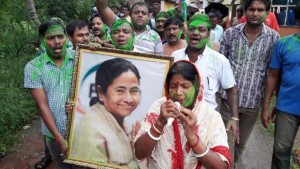
Mamata Banerjee’s image being carried at a protest march in Singur. Photo Credit: AITC Official.
It’s true that Mamata gained immeasurably from these agitations then. But she did not ‘make’ them. Though Singur and Nandigram—even Lalgarh—are often tied to the Trinamool Congress, the reality is somewhat different. The roots of these resistances were scattered, not concentrated in one single individual or party. To the CPI-M, the diverse people in the movements were simply ‘outsiders’ (interestingly a term which was also used recently by Libyan President Col. Gaddafi against protesters demanding liberty in Libya). The CPI-M either failed to or refused to recognize the unusual character of these movements. Before we go on, it is important to outline the broad contours of the Singur-Nandigram movements to understand the context for the re-emergence of Mamata.
Storming the Communist Bastion
In the initial stages of the Singur movement, the Trinamool Congress’s contribution was confined to the active role played by Rabindranath Bhattacharya, the party’s local MLA. ‘It was everybody’s movement. The Singur Krishi Jami Raksha Committee [SKJRC] was heading the agitation, which included the SUCI and various factions of Marxist-Leninist parties,’ Pradip Banerjee, who headed the SKJRC for a while, told me.
In the words of singer-songwriter Kabir Suman, who was elected to Parliament on a Trinamool ticket in the 2009 general elections, ‘The huge setback the Left suffered since 2006 was not due to any particular political party or leadership. The credit goes to the people of Bengal and the role of grambanglar jhanta (the broomstick of rural Bengal).’
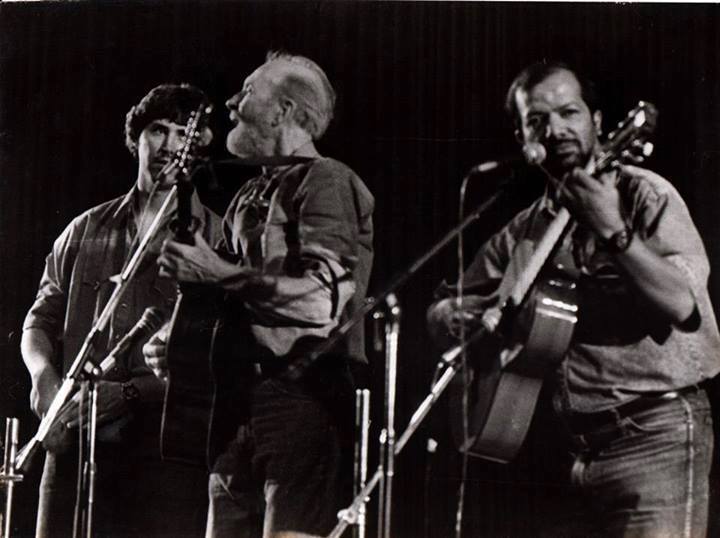
Kabir Suman (Right) performing with Pete Seeger.
Leaders of political parties as well as members of non-political organizations started arriving at Singur following a gherao of the district magistrate and the block division officer on 25 September 2006. The protesters wanted to prevent ‘fake’ claimants from picking up the compensation cheques for the land acquired in the area. ‘Leaders and individuals—Mamata Banerjee, Saugata Roy, Asim Chatterjee, Barnali Mukherjee, Naba Datta—started arriving at the site of the dharna,’ Pradip Banerjee recounts. The police mounted a brutal attack, arresting over seventy women, including a two-and-a-half-year-old girl. Historian Kunal Chattopadhyay wrote: ‘A little after midnight, a blackout was created, and under the cover of darkness, a huge police force, according to the victims well lubricated with alcohol, attacked and brutally beat up the protestors, men, women and children. Ms. Banerjee was also manhandled, and her sari torn. She was then bundled off to Kolkata by force, and had to be admitted to a hospital.’ This attack escalated the tempo of the agitation. Mamata was emerging as the political and electoral symbol of the agitation. But even then, the SKJRC, the nerve centre of the movement and a platform of diverse non-partisan groups and individuals, enjoyed a great deal of autonomy in decision making.
In the initial stages of the Singur movement, the Trinamool Congress’s contribution was confined to the active role played by Rabindranath Bhattacharya, the party’s local MLA. ‘It was everybody’s movement. The Singur Krishi Jami Raksha Committee [SKJRC] was heading the agitation, which included the SUCI and various factions of Marxist-Leninist parties,’ Pradip Banerjee, who headed the SKJRC for a while, told me.
In the words of singer-songwriter Kabir Suman, who was elected to Parliament on a Trinamool ticket in the 2009 general elections, ‘The huge setback the Left suffered since 2006 was not due to any particular political party or leadership. The credit goes to the people of Bengal and the role of grambanglar jhanta (the broomstick of rural Bengal).’
‘All parties were invited—Subrata Mukherjee, then a Congress leader, Anuradha Talwar and Swapan Ganguly of the Paschim Banga Khet Mazdoor Samiti, Saifuddin Chowdhury and Samir Putatunda of the Party for Democratic Socialism,’ says Pradip Banerjee. After police attacked and arrested delegates on their way to Singur to attend an open convention, the range of participants widened. ‘We then approached the Congress, the breakaway Forward Bloc, Janata Dal (Secular), and Samajwadi Party to join the movement,’ adds Banerjee. Mamata began her fast on 4 December 2006, on a podium near Kolkata’s Metro Channel, in protest against the police action.
In Nishaaner Naam Tapasi Malik, his recently published best-selling book, Kabir Suman traces the beginning of his journey with Mamata as a participant in the Singur movement: ‘Mamata Banerjee had begun her fast. Abhash Munshi from the Mazdoor Kranti Parishad, Bijoy Upadhyay, president of the Samajwadi Party’s West Bengal unit, and radical activist Barnali Upadhyay had also joined her.’ Suman was then working with the current affairs programme at Tara News channel. ‘On the TV monitor, I saw CPI-M leaders addressing the media. A CPI-M leader cracked a joke about Mamata Banerjee getting hurt in the police attack at Singur. In full camera glare he said, “Why does she get hurt on her chest so much?” He kept repeating the ugly comment. I made up my mind, deciding to go to the spot where Mamata was fasting, to show my solidarity with her.’
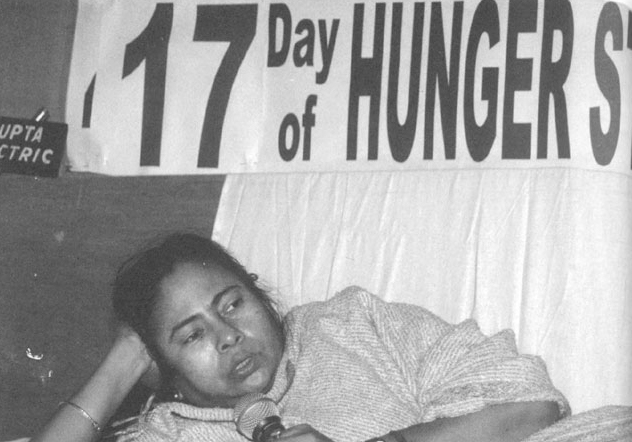
Mamata Banerjee on a Hunger Strike. Photo Credit: AITC Official.
Suman describes his first face-to-face encounter with Mamata thus: ‘This was the first time I saw Mamata from close quarters and spoke with her. Exhausted from fasting, she was lying down, wrapped in a blanket. She tried to get up on seeing me and would not heed my protests. We had a brief conversation. She spoke in a low but spirited tone. I told her, “I have come here in solidarity. I am concerned about your health.” Folding her hands in gratitude, she said, “Please do not worry. I will continue my fast.”’
But Bengal’s intellectuals and artistes were still hesitant about sharing a podium with Mamata. ‘How many artistes and intellectuals had gone to the fasting site?’ asks Suman. Mahasweta Devi was one of the first ones to visit her and express solidarity. ‘For a long time, I have noticed the “keep-away-from Mamata” attitude. I really cannot claim that I myself was totally free from it. Truthfully, I did not like her alliance with the BJP; I could not accept its continuation even after the massacre of Muslims in Gujarat by Hindu fascists,’ is Suman’s candid confession. Rather than shun the sceptics, Mamata waited her turn, which arrived at the end of the Singur-Nandigram-Lalgarh journey. Finally, she seemed to have whittled down the reservations of the large group of intellectuals and artistes. They were now firmly by her side.
[Kabir] Suman was then working with the current affairs programme at Tara News channel. ‘On the TV monitor, I saw CPI-M leaders addressing the media. A CPI-M leader cracked a joke about Mamata Banerjee getting hurt in the police attack at Singur. In full camera glare he said, “Why does she get hurt on her chest so much?” He kept repeating the ugly comment. I made up my mind, deciding to go to the spot where Mamata was fasting, to show my solidarity with her.’
The initial activity around land acquisition in Singur didn’t breach the barrier totally. In fact, after a point, the noise died down. Then in 2007, Nandigram erupted when police opened fire on protestors there. The long saga of the pitched battle in Nandigram seemed to re-infuse energy across the rest of the state. By 2008, Singur was on the boil again, and in the long run it would be Singur that would tip the scales politically in the state. In August 2008, dramatic scenes unfolded along the Durgapur Expressway. Different political parties and organizations set up twenty-one camps on the side of the road. Earlier, in 2006, Mamata had gone on a twenty-six-day hunger strike, demanding that the state government return 400 acres of land to the peasants of Singur. The finale to the tussle over the Nano project in Singur had begun.
‘Leaders, workers and, above all, people are staying here through day and night. […] People are bringing a handful of rice and dal for all the satyagrahis. MLA Rabinbabu is supervising the cooking of khichri. As soon as dawn breaks, the volunteers get down to work, cleaning the area. A total of twenty-one camps: the first one supervised by Mukul [Mukul Roy] and the twenty-first by Bani Sinha Roy.’ This was Mamata’s description of those days.
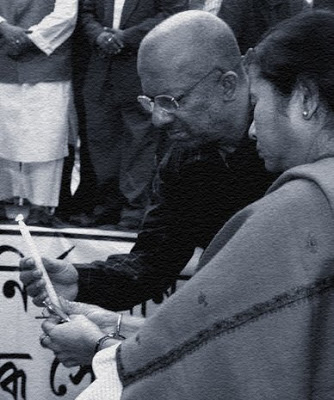
Kabir Suman and Mamata Banerjee.
The movement had its own brand of ‘Mamata aesthetics’ as she sat with an easel on the podium and applied her paintbrushes to canvas. Some people sang Rabindrasangeet and others sang songs of the revolutionary IPTA composer Salil Chowdhury. Meanwhile, hectic negotiations were under way inside Raj Bhavan. Upon Mamata’s request, Governor Gopalkrishna Gandhi, the mediator, was trying to find a face-saver for the Left Front government; a last-minute unravelling of the hopelessly tangled plot of Singur. But the intractable deadlock remained in place as firmly. Finally, the Tatas packed up and left. The Nano, supposed to have been a feather in the CPI-M government’s worn-out crown, lay in tatters.
‘The CPI-M transferred the entire blame for the situation to the Opposition. According to them, Mamata Banerjee had prevented West Bengal’s industrialization. To me, that explanation is not acceptable,’ says Abhirup Sarkar, an economist at Kolkata’s Indian Statistical Institute. Sarkar is close to Mamata and was at one point rumoured to be in the running for the post of finance minister in the Trinamool government. Though Sarkar did not accept her offer to contest the polls, he continues to be an advisor to Mamata. He points to data from the manufacturing sector to shore up his arguments: ‘West Bengal’s industrial decline had started from the 1980s. In this period, the state’s contribution to the all-India manufacturing sector was a little less than 13 per cent. In 2009, that figure stood at a little above 2 per cent. In the 1980s, only four states— Maharashtra and Gujarat (the industrially advanced), and Punjab and Haryana (the agriculturally prosperous)—were ahead of us. Now the entire south and Himachal Pradesh have overtaken us; soon Rajasthan will too. Industrial decline was an ongoing process. It did not suddenly dip because the Singur project could not take off.’
The initial activity around land acquisition in Singur didn’t breach the barrier totally. In fact, after a point, the noise died down. Then in 2007, Nandigram erupted when police opened fire on protestors there. The long saga of the pitched battle in Nandigram seemed to re-infuse energy across the rest of the state. By 2008, Singur was on the boil again, and in the long run it would be Singur that would tip the scales politically in the state.
So does he give no credence to the argument that Mamata forcefully stalled the Nano project? ‘When Mamata Banerjee began her opposition she had no political support. In 2006, she could not have stopped the Singur project forcefully, simply because she hardly had any political power then. In fact, things worked the other way: the Singur movement made Mamata Banerjee powerful,’ Sarkar suggests. Many have argued that the West Bengal government could have neutralized the resistance had it drawn up a better compensation deal. Perhaps––but even that would not have worked if the government had gone ahead and terrorized people, hoping to bully them into submission. Sarkar draws an interesting parallel between the experiences of peasants in Singur and Mexico City.
In 2002, a proposal was mooted to build a second airport outside Mexico City. Land belonging to peasants had to be acquired. There was resistance to the project. The compensation that was initially offered fell far below expectations, and to add salt to injury, the police beat up and arrested resistance leaders. Eventually, popular discontent forced the government to offer a huge compensation amount. But the peasants refused. ‘The lesson from here and Singur is that we are dealing with human beings, not robots,’ Sarkar says. He argues that the resistance in Singur met with a similar aggressive, violent response from the government. ‘At first they beat up people, raped women and then they offered more money. Why should [the people] take it?’
He describes the experience of working on a project in Singur as being straight out of a film. ‘I went to Singur with a couple of economists doing a project in the area. During our work—just like in Bengali films—two men came on a motorbike, followed by three chamchas and started heckling us.’ The men, from the CPI-M cadre, were suspicious of ’outsiders’ and obstructed their work. This intimidation of perceived outsiders is characteristic of the CPI-M’s politics, its constant distrust of those who are not its own. Sarkar’s comparison to scenes like this in popular Bengali cinema is quite apt. In many a popular film, the damsel in distress or the hero is attacked by hooligans who work for the villain—often a rich landowner or member of the bourgeoisie, and sometimes of an unnamed ‘party’!
The Singur saga played out over two years—from 2006 (when a confident Left Front government acquired the land) to 2008 (when the Tatas finally left). And when the Singur crisis seemed to have reached a point of stasis, Nandigram exploded, an explosion that revitalized the final stages of the Singur movement as well.
In 2002, a proposal was mooted to build a second airport outside Mexico City. Land belonging to peasants had to be acquired. There was resistance to the project. The compensation that was initially offered fell far below expectations, and to add salt to injury, the police beat up and arrested resistance leaders. Eventually, popular discontent forced the government to offer a huge compensation amount. But the peasants refused. ‘The lesson from here and Singur is that we are dealing with human beings, not robots,’ Sarkar says. He argues that the resistance in Singur met with a similar aggressive, violent response from the government. ‘At first they beat up people, raped women and then they offered more money. Why should [the people] take it?’
In 2006, Chief Minister Buddhadeb Bhattacharjee handed over 14,000 acres of land in Nandigram to Indonesia’s Salim Group of industries to set up a chemical hub. Like in Singur, the CPI-M looked the other way while resentment simmered and a Bhumi Uchchhed Pratirodh Committee (Committee against Eviction from Land) was set up. For almost a year, people were left to speculate in the dark, uncertain and apprehensive about the ramifications of the decision. The government operated with a total lack of transparency and made no attempt to initiate a democratic dialogue on the process of acquisition. Despite arm-twisting by Lakshman Seth, CPI-M’s powerful MP in the area, the peasants threw their weight behind the forces of resistance. They drove CPI-M workers out of Nandigram, until then a party stronghold. The violence that CPI-M workers unleashed against the protesters is by now well known. The best known of these incidents occurred on 14 March 2007, when the police—among them a section of CPI-M workers masquerading as policemen—brutally attacked peasants, unintentionally ‘creating’ a mass movement.
Singur and Nandigram shared many similarities, among them the diversity of the participants in these struggles. Mamata did not personally intervene in the initial stages of the agitations. Trinamool Congress MLA Shubhendhu Adhikari was at the forefront of the Nandigram movement alongside activists from many other organizations and parties. The presence of activists from various factions of Marxist-Leninist parties gave the CPI-M fodder for its ‘Mamata-Maoist nexus’ campaign, which reached its height in the wake of the Lalgarh crisis.
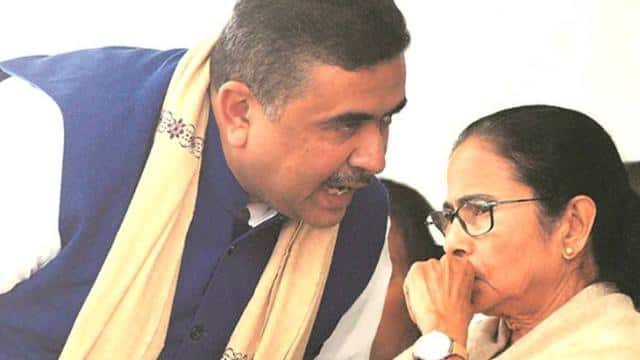
Suvendu Adhikari, once a close aide of Banerjee, is now a member of the BJP. Photo Credits: PTI.
Nandigram fortified Mamata Banerjee’s image. Her colleagues and fellow activists from those days recall 14 March 2007 with special clarity. At Mamata’s Kalighat residence, everybody was on their mobile phone. News of a savage attack by CPI-M cadres and policemen in Nandigram had thrown them into a tizzy. Mamata was talking to journalists. She had decided to go to Nandigram. On her way, she spoke to leaders of the Congress and the BJP, including L.K. Advani. But nobody seemed to have a clue about how to rein the CPI-M in. Kabir Suman, who was travelling in a car with Mamata then, writes:
I notice the Congress is not paying that much heed. Where is the prime minister? He must know what is happening here. Why can he not call up Buddhadeb Bhattacharjee and ask him to stop the rape and murder? Then, does everyone want such chaos to continue in West Bengal?
At Mecheda, the CPI-M stopped our convoy. Mamata’s car was right in front. Sitting right behind her, I could see what kind of lewd gestures the party cadres were making at Mamata… In that crowd there were boys, men—both young and old—and women too. I cannot believe that such terrible, ugly comments can be made targeting a woman. Mamata sat furious. After continuing like this for a long time, the cadres moved away.
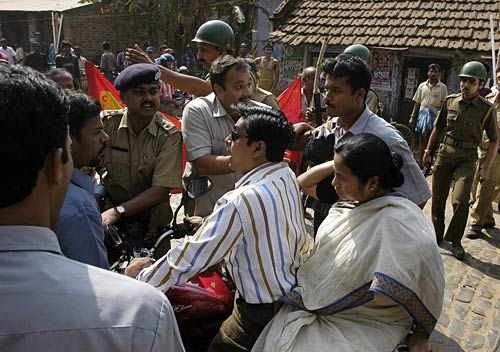
Mamata Banerjee riding pillion to visit violence affected people in Tamluk, Nandigram.
In the evening, Mamata reached Tamluk hospital, where the wounded had been brought. Some grievously injured, some dying. Mamata was by the side of a woman with a bullet in her lower stomach. As cameras zeroed in on the scene, Mamata pulled up the media. Subrata Mukherjee arrived at the hospital fighting attacks on his car by CPI-M workers. Mamata, despite repeated warnings of danger, was determined to go to Nandigram that very night. She was stalled finally by a barricade set up by a massive CPI-M contingent. It took a great deal of persuasion to get Mamata to turn back. The one quality that impressed and widened Mamata’s circle of friends, supporters and colleagues was her courage and fearlessness. Some of them say that her years of life-threatening combat with the CPI-M had left her virtually without fear of death. For Abhirup Sarkar, Mamata’s persona is a combination of three ‘sha-s’. ‘I would describe Mamata Banerjee’s personality as a sum total of Bengali shahas (courage), shatata (honesty) and sharalya (simplicity),’ he says.
Mamata did not personally intervene in the initial stages of the agitations. Trinamool Congress MLA Shubhendhu Adhikari was at the forefront of the Nandigram movement alongside activists from many other organizations and parties. The presence of activists from various factions of Marxist-Leninist parties gave the CPI-M fodder for its ‘Mamata-Maoist nexus’ campaign, which reached its height in the wake of the Lalgarh crisis.
Nandigram fortified Mamata Banerjee’s image. Her colleagues and fellow activists from those days recall 14 March 2007 with special clarity. At Mamata’s Kalighat residence, everybody was on their mobile phone. News of a savage attack by CPI-M cadres and policemen in Nandigram had thrown them into a tizzy. Mamata was talking to journalists. She had decided to go to Nandigram.
The Singur and Nandigram movements worked at many levels. Primarily, they sparked an ‘audacity of hope,’ says Sujato Bhadra, playing on Barack Obama’s famous phrase. ‘Mamata Banerjee has become a symbol of change,’ he told me. ‘Paribartan’, a word that had fallen out of Bengal’s political dictionary, was now on everybody’s lips. Amid the churnings, Mamata gained some unexpected allies, many of them from the Leftist political stream. Sections of the Marxist-Leninist factions in the state were one such group. Their intrinsic suspicion of Mamata broke down when they saw her grit and involvement in Singur, Nandigram and, later, Lalgarh. Mamata’s association with Marxist-Leninist parties, inconceivable even a few years ago, firmed up during 2006-09. Some, like Purnendu Bose and Dola Sen, who formally joined the Trinamool Congress, are now among her closest political aides. Others, like Pradip Banerjee, did not join Mamata’s party, but did actively campaign for her in the assembly elections. But the political Left wasn’t the only force that took a sudden interest in Mamata, as we shall see in the next chapter.
Mamata and the Maoists
Following the epic confrontations in Singur and Nandigram, a third rebellion gathered force in the tribal districts of rural Bengal, for long repressed by an uncaring establishment and an indifferent state.
In Lalgarh, in the West Medinipur district of West Bengal, the tribal people began agitating in the winter of 2008. It was an exemplary struggle—democratic and diverse—till the Maoists wrested control of the movement and the joint Central and state forces occupied the region known as Jangalmahal. In the initial stages, like in Singur and Nandigram, many different organizations and political parties gathered and functioned democratically under the Pulishi Santrash Birodhi Janasadharaner Committee (People’s Committee against Police Atrocities). Later, the Maoists hijacked the movement, stifling it before the resisting tribals could achieve some of their basic demands.
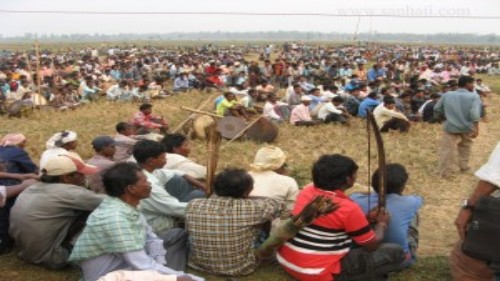
A mass meeting of the PCPA at Lalgarh. Photo Credits: Democratic Students Union, Facebook.
The genesis of the Lalgarh resistance was a bomb blast on 2 November 2008, targeting a high-profile Central and state delegation, including Chief Minister Buddhadeb Bhattacharjee. They narrowly escaped with their lives from the blast set up by Maoists in Shalboni. In spite of extensive reconnaissance before the delegation’s arrival, the police had failed to detect the long wire that set off the ambush. To make up for this major lapse, the police began a massive hunt for the culprits, with savage reprisals on the tribals. But inhabitants of this region had long been familiar with police brutality. And from about 2000, the Maoists too were gaining influence in the poverty-ridden areas of Jangalmahal, including the three most backward districts, Purulia, Medinipur and Bankura.
The success of the peasant movements in Singur and Nandigram inspired the restless tribals of Lalgarh to teach the uncaring government a lesson. Mamata Banerjee became part of the upsurge much later. In fact, she was allowed to join a rally of the People’s Committee against Police Atrocities (PCPA) on condition that she would not carry a Trinamool Congress banner.
In Andoloner Katha, Mamata recounts her memory of Lalgarh as she had seen it in 1992 when she was criss-crossing West Bengal, trying to revive the Congress through her interactions with people. She began her month-long journey from Belpahari in West Medinipur on 12 January, coinciding with Vivekananda’s birthday. ‘I got news of the desperate plight of the adivasis—nine out of twelve months a year, they cannot get rice. I decided to visit an adivasi village. Without informing anyone, I hitched a ride with a local boy on his scooter and reached Jeb, an adivasi village. With us, some friends in the media also reached the spot,’ she writes.
The success of the peasant movements in Singur and Nandigram inspired the restless tribals of Lalgarh to teach the uncaring government a lesson. Mamata Banerjee became part of the upsurge much later. In fact, she was allowed to join a rally of the People’s Committee against Police Atrocities (PCPA) on condition that she would not carry a Trinamool Congress banner.
In Andoloner Katha, Mamata recounts her memory of Lalgarh as she had seen it in 1992 when she was criss-crossing West Bengal, trying to revive the Congress through her interactions with people. She began her month-long journey from Belpahari in West Medinipur on 12 January, coinciding with Vivekananda’s birthday. ‘I got news of the desperate plight of the adivasis—nine out of twelve months a year, they cannot get rice. I decided to visit an adivasi village… ” In the village she met women who, she claims, cooked a broth of red ants with roots of trees for food.
In the village she met women who, she claims, cooked a broth of red ants with roots of trees for food. ‘I not only raised the plight of the adivasis at public meetings, but also brought it to the notice of the government so that justice could be done. Sections of the media also put out the news. But the suffering of the adivasis still continues,’ Mamata says in the book. Mahasweta Devi remembers Mamata as a co-fighter in her battle against the Left Front government on behalf of the de-notified tribes. ‘She helped me when I filed a case against the state government,’ the author-activist told me.
Mamata’s association with the Lalgarh movement sharpened the Left’s accusation that the Trinamool was colluding with the Maoists, an allegation that went back to the days of the Nandigram agitation. While in Lalgarh, the Maoists did have a dominant presence even before they took over the movement lock, stock and barrel, in Nandigram the Trinamool-Maoist nexus might have been just a flight of CPI-M fancy. Without going into the intricacies of a movement as complex and diverse as Lalgarh—at least when it first started—various sections branded the PCPA as a Maoist front and its leader Chhatradhar Mahato as a Maoist agent. Mamata’s meeting with Mahato was touted as incontrovertible proof of a Trinamool-Maoist nexus, as was Mahato’s membership of the Trinamool in his younger days. By the same logic, film actors, authors, poets and artistes who had gone to Lalgarh and spoken to Mahato were said to be helping the Maoist cause.
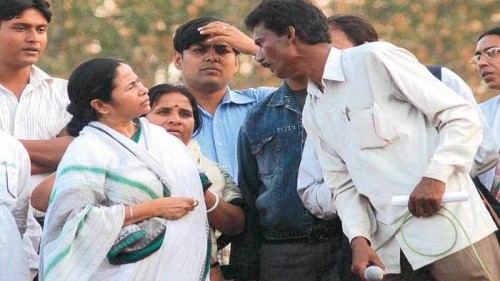
Mamata Banerjee with Chhatradhar Mahato (Right). Photo Credits: Alechtron.
In all that noise, no one bothered to question the clear disconnect between the politics of the Maoists and the Trinamool Congress. The media too seemed content to club all anti-Left agitators as Maoists of one sort or another. It is important here to make a distinction between the democratic politics of the various Marxist-Leninist parties, which played a crucial role in the Singur and Nandigram agitations, and the project of violent overthrow of the Indian state as espoused by the Maoists. Some people from the Marxist-Leninist parties who had worked closely with Mamata in Singur and Nandigram even switched loyalties to align firmly with the Trinamool.
‘One afternoon Mamata telephoned me. She seemed agitated. She told me, “I don’t know, Kabir-da, in this situation created by the CPI-M, how long we can practise democracy in this state. I will take one more chance, then I will take up arms,”’ Kabir Suman says in his book, adding: ‘Considering the situation from all aspects, my mental state was also similar. How can I take up arms at my age? Yet I felt, to hell with everything. What is the point of living like this?’
The CPI-M pounced on this section of Suman’s book, splashing it across its party organ, Ganashakti, and pointing to it as a confirmation of their theory of Trinamool-Maoist nexus. If you care to read till the end of the page, however, you find this: ‘I concede that, given the state of my mind, Mamata’s suggestion of taking up arms touched a chord in me. At that point, I did believe Mamata was my comrade, one of us. […] I do agree there was certain romanticism in that thought. But can you fight a battle without any romanticism?’
‘One afternoon Mamata telephoned me. She seemed agitated. She told me, “I don’t know, Kabir-da, in this situation created by the CPI-M, how long we can practise democracy in this state. I will take one more chance, then I will take up arms,’” Kabir Suman says in his book… The CPI-M pounced on this section of Suman’s book, splashing it across its party organ, Ganashakti, and pointing to it as a confirmation of their theory of Trinamool-Maoist nexus.
Battling the establishment, particularly through armed insurrection, has always carried with it a certain aura of romance, the dangerous bravura of staring death in the face. Che Guevara, now heavily marketed the world over by multinational companies, would undoubtedly be the face of this romantic, ruthless battle. The first armed uprising of the Naxals in India was indeed imbued with this spirit of adventure, romance, even innocence. Suman, who wears his empathy with the Maoists on his sleeve, was referring to this spirit of romance. All that Suman’s quote suggests is that taking up arms against the CPI-M’s armed militia was a fleeting, impulsive thought that crossed both Suman’s and Mamata’s mind in a situation that seemed to have become desperate, tinged with a sense of poetry rather than a desire for programmatic political violence.
Did Mamata plot with the Maoists to subvert the law and order situation in West Bengal in order to dislodge the already tottering Left Front government? Highly unlikely. Was there a convergence of the Maoists’ and Trinamool’s political objectives? To an extent, yes. All three movements—Singur, Nandigram and Lalgarh—were born outside the pale of formal party structures. Their diversity accommodated groups that may not have been in agreement about strategies of protest and resistance.
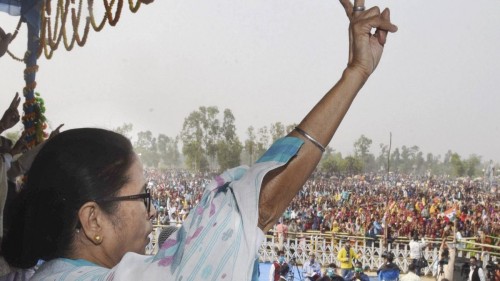
Mamata Banerjee at a rally in Nandigram, from where she contested the 2021 State Assembly elections, in January 2021. Photo Credits: PTI.
The discussion of West Bengal’s culture of competitive violence shared by armed workers belonging to both CPI-M and the Trinamool Congress camps should not be conflated to the thesis that the Trinamool Congress was working in perfect tandem with the Maoists to realize their political project. The questions that seem relevant are: Do the Trinamool workers on the ground, and across districts, keep their distance from the Maoists? Or do the Trinamool workers and Maoists exchange arms and fortify each other against the Left Front government?
Interestingly, Mamata too has accused the CPI-M of being in league with the Maoists, a somewhat fantastic charge. The dominance of violence in West Bengal’s political culture makes it possible that the Trinamool fought the comrades with arms. The escalation of violence in the aftermath of CPI-M’s crushing defeat in 2009 and the Trinamool Congress’s recent electoral victories are just a couple of the many corroborating evidences. In a culture where knives and bullets are wielded freely to claim political ground, to square up with political opposition in day-to-day life, the Trinamool need not enter into a pact with the Maoists. Arms are easily available and acquired here.
The discussion of West Bengal’s culture of competitive violence shared by armed workers belonging to both CPI-M and the Trinamool Congress camps should not be conflated to the thesis that the Trinamool Congress was working in perfect tandem with the Maoists to realize their political project. The questions that seem relevant are: Do the Trinamool workers on the ground, and across districts, keep their distance from the Maoists? Or do the Trinamool workers and Maoists exchange arms and fortify each other against the Left Front government? …
The dominance of violence in West Bengal’s political culture makes it possible that the Trinamool fought the comrades [the CPI-M] with arms. The escalation of violence in the aftermath of CPI-M’s crushing defeat in 2009 and the Trinamool Congress’s recent electoral victories are just a couple of the many corroborating evidences. In a culture where knives and bullets are wielded freely to claim political ground, to square up with political opposition in day-to-day life, the Trinamool need not enter into a pact with the Maoists. Arms are easily available and acquired here.
The CPI-M did not get much electoral mileage out of its Mamata-Maoist nexus campaign. But it did try hard. After every incident of violence in the state, after every public meeting the Trinamool chief attended, after every speech she delivered, the accusations would resurface. On 9 August 2010, addressing a public meeting in the heart of Lalgarh, Mamata said the manner in which Azad, a top Maoist leader, had been killed was ‘not right’. She demanded that the government investigate the incident. All hell broke loose when the media picked up this speech and the CPI-M pointed to the statement as further vindication of its theories. Interestingly, four
months later, in January 2011, the Supreme Court asked the Central government and the state administration in Andhra Pradesh to explain how exactly Azad had died in the Adilabad forests of Andhra Pradesh, making it clear that the case was far from a simple ‘anti-terrorist’ action by the administration.
As West Bengal’s assembly elections approached, the CPI-M accelerated the thrust of this campaign. Chief Minister Buddhadeb Bhattacharjee responded to Home Minister P. Chidambaram’s request for disbanding the CPI-M’s armed militias (Harmad Vahini) with his own list of camps testifying to the ‘Trinamool-Maoist alliance’. In October 2010, sabotage by suspected Maoists led to the horrifying Gyaneshwari Express accident, claiming 150 lives. In her first reaction to the incident, Mamata pointed a finger at the CPI-M, insinuating that the ruling party could have plotted the sabotage to defame her. The CPI-M retaliated, coming down like a ton of bricks on the ‘absentee’ railway minister, accusing her of ’hobnobbing’ with the Maoists. Umakanta Mahato, a prime Maoist suspect in the Gyaneshwari sabotage, was later killed by the security forces in a gun battle.
As usual, the truth probably lies somewhere in between. It is highly unlikely that Mamata Banerjee would have jeopardized her political prospects by endorsing the brand of politics practised by the Maoists. Electoral democracy is not the way that the Maoists engage with the political class. Even if Mamata, as Opposition leader, had hoped to befriend them in pursuit of the classic ‘my enemy’s enemy is my friend’ approach, the political cost of swinging deals with the Maoists would have been far too dear. She had waited a long time to reach where she is now.
As usual, the truth probably lies somewhere in between. It is highly unlikely that Mamata Banerjee would have jeopardized her political prospects by endorsing the brand of politics practised by the Maoists. Electoral democracy is not the way that the Maoists engage with the political class.
Acquiring arms however has become as common to West Bengal’s political culture as abarodh or blockades on streets, highways and railway tracks on every issue of importance. But how convincing is the CPI-M’s continued attribution of all the ills that have befallen it to the handiwork of Mamata and the Maoists? Not very, for the people did not bite the bait. Mamata won the corporation elections hands down after the horrifying Gyaneshwari Express derailment—the continuation of a political trend that began in the 2008 panchayat elections and culminated in the 2011 assembly elections. The Lalgarh movement ought not to be remembered as a symbol of a Mamata-Maoist alliance, but for what it actually represented: yet another section of Bengali society, long forgotten by the government, rising in protest against the order of things, demanding basic needs that it had long been deprived of.
This excerpt has been carried courtesy the permission of Monobina Gupta. You can buy Didi: A Political Biography here.
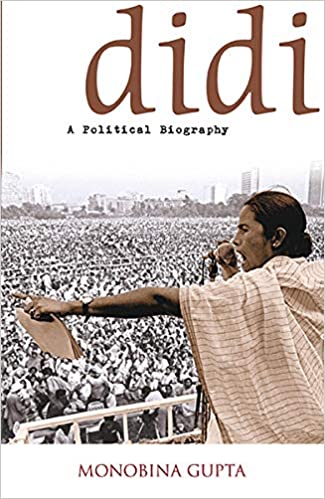
ARCHIVE
In the 1936 Allahabad Municipal Elections, the Congress had “dared to nominate” a Dalit candidate. Ranjit Sitaram Pandit wrote a succinct and scathing piece that exposed how the scourge of caste – a scourge that we’re still very much dealing with – was entrenched in our attitudes and therefore in our local governments. The article, though brief, is masterfully written and says more than many longer academic papers can hope to, on the subject.
Some of the circumstances will seem strange to a 21st century reader. Some will not.
A lower-caste candidate – a “chamar” (leather-worker) referred to only as “Hari” (short for “Harijan”) – is inducted as a candidate in an Allahabad municipal election in 1936. Although he is an educated and capable man, he loses. Indeed, he stands little chance. A coalition of the bigoted – comprising upper caste Hindus, those offended by this audacious individual from a ‘low’ caste background, those whose economic interests may be affected, etc. – aligns against him.
That scenario would be easily understood by a 21st century social scientist. A similar dynamic to the one that operated in Civil Lines, Allahabad in the United Provinces in 1936, continues to operate today in Civil Lines, Prayagraj, Uttar Pradesh. Anybody acquainted with UP politics in 2020 will intuit the prejudices a Dalit candidate would have to confront if he stood for elections in Civil Lines.
What will be unfamiliar is the nuts and bolts of the electoral system during the latter days of the British Raj. Elections began in the 1920s with municipal bodies. The Government of India Act (1935) copy-pasted the British bicameral structure with an Upper Chamber that contained the nominated, and an elected Lower Chamber. Provincial elections occurred in 1936-37 in six provinces.
But the structural elements, such as the demarcation of constituencies and seats, and the lists of eligible voters, were very different in 1936. There were reserved constituencies, for Muslims, Christians, “Europeans”, Sikhs and Scheduled Castes. In these, candidates and voters had to belong to the concerned community. This was supposed to ensure that the interests of various communities were represented. There was a very public argument between Gandhi and Ambedkar on the subject of caste-based reservations for the ‘low’ caste. Ambedkar won.
There were also general seats where anybody could stand, and seek the vote of the eligible voter. But this wasn’t a universal franchise by any means. The right to vote depended on qualifications like ownership of property, payment of income tax, payment of municipal tax, the holding of land, etc. In practice only the creamy layer – perhaps 5 percent of Indians, or even less, had the vote.
It was considered a daring experiment when the new Indian republic decided on universal franchise – giving the vote to every citizen. The General Elections of 1951-52 saw over 170 million voters (India had a population of about 360 million according to the 1951 Census) exercise their right in what was by far, the largest democratic exercise ever undertaken. The voting lasted for almost six months.
The new republic also eliminated the concept of the reserved constituency though it introduced the concept of the reserved seat where only an SC/ST candidate could stand although everybody could vote. Much later, the concept of gender reservation has been introduced at the Panchayat level, where up to one-third of seats are reserved for women candidates.
Does this work better than the old system with reserved seats for specific communities? Perhaps. But it certainly hasn’t led to an elimination of caste bigotry. Indeed, that appears to have been successfully exported, going by the ongoing legal battle between Cisco and the State of California.
—Devangshu Datta
How a “Harijan” Candidate was Defeated
December 3rd – polling day – was approaching and Prayag Dutt, the canvasser, tried to speed up the delivery of the candidate’s cards. “Who is this Hari,” enquired the Brahman elector, an Advocate of the High Court, “and what is his caste?” Prayag Dutt canvassing on behalf of the Harijan candidate replied that the candidate was a Chamar by caste.
Thereupon the Advocate spoke in his persuasive manner: “Why don’t you Chamars stick to the ancestral work of shoe-making? It should pay well. Why do you want to stand for the Municipal Election- what can a Chamar do in the Municipal Corporation?”
Prayag Dutt agreed that shoe-making would be profitable work. But he said: “We pure Chamars would never have given up the shoe trade but for the fact that in this city there are now a number of mongrel Chamars.”
“Who are these mongrel Chamars?” asked the Advocate, and Prayag Dutt replied: “A number of Brahmans, Khatris, and Baniyas have set up shops of imported boots and shoes and are making profits by underselling the hard-working Chamar in the shoe business.”
“Why don’t you Chamars stick to the ancestral work of shoe-making? It should pay well. Why do you want to stand for the Municipal Election- what can a Chamar do in the Municipal Corporation?”
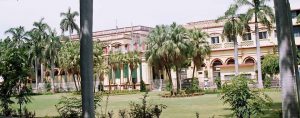
The Allahabad Municipal Corporation building
The elector felt disconcerted and perhaps in order to get rid of the canvasser expressed his willingness to vote for the Harijan candidate.
The local Congress Committee had decided to help the poor to win a seat during the recent Municipal Election at Allahabad from the Civil Lines, which includes a number of Bastis with hundreds of voters who are for the most part poor manual workers. With its modern roads, which serve the houses of the high and mighty, surrounded by gardens and lit with electricity, the Civil Lines area is a contrast to the Bastis of the poor whose hubs are taxed by the Municipality, which has, however, never shown any anxiety to make a road or provide the poor with water or even oil lamps. During the rains water collects in pits in the dust tracks and little children die by drowning in the very midst of the Bastis.
The nomination of a Harijan candidate from the Civil Lines caused a flutter in the dove-cotes of orthodoxy. While some of the educated and respected middle-class voters took this as a personal affront to their intellectual attainments, others regarded it as a challenge to caste superiority and the sacred principle of private property. The Advocates’ Association sensed the coming danger instinctively and some of the learned fraternity asked the writer to explain why the Congress had dared to nominate a Chamar for a seat from the Civil Lines. A Kashmiri Pandit asserted with vehemence that he would never tolerate a Harijan candidate. His attention was drawn to the fact that caste was immaterial; the candidate was a Kashtkar (farmer), literate and a nationalist and was chosen by the local Congress committee as a straightforward and incorruptible man. Indeed, he was personally known to many as a faithful servant of the late Pandit Motilal Nehru. But the learned Counsel was adamant. He said he would be prepared to vote for a Chamar or even a Mehtar if the latter were “reformed” by Islam or Christianity!
The issue was thus side-tracked. It was not one of religion or of caste. It was purely secular. The poor knew where the shoe pinched and it was their right, if they so chose, to elect as a representative from among themselves one who would bring the grievances of the poor and needy before the Municipal Commutes and get them redressed as far as possible. The reactions of the so-called high castes and the intellectuals revealed that they were either unconscious of the sufferings of large numbers of the so-called depressed classes or that they refused to act justly towards masses of the poor born within the fold of Hinduism who were perpetually on the anvil under the blows of a hundred hammers.
A Kashmiri Pandit asserted with vehemence that he would never tolerate a Harijan candidate. His attention was drawn to the fact that caste was immaterial; the candidate was a Kashtkar (farmer), literate and a nationalist and was chosen by the local Congress committee as a straightforward and incorruptible man. Indeed, he was personally known to many as a faithful servant of the late Pandit Motilal Nehru. But the learned Counsel was adamant. He said he would be prepared to vote for a Chamar or even a Mehtar if the latter were “reformed” by Islam or Christianity!
The issue involved in Hari’s candidature was thus misinterpreted. Hari’s canvassers included enthusiastic students and some Advocates who had volunteered their services. When they presented his card and appealed to the high-caste voters they found many of them forgot, in their anger, that the candidate was set up by the Congress. One of the Brahman Advocates was amazed that he should have been asked to vote for a Chamar. He tore up the card and threw it in the face of the Advocate canvasser.
At first in the Indian Clubs it was considered a joke, but when the canvassing in favour of Hari, the representative of the working class, became increasingly successful the menace was considered too grave for the high castes to ignore it. The tension ended in a storm of opposition in the Civil Lines against the very idea of the candidature of a Chamar.
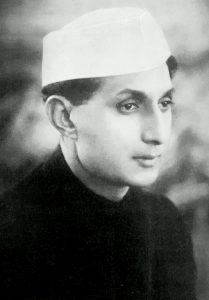
Ranjit Sitaram Pandit
In the Civil Lines there are two seats for the Non-Muslim constituency, which is a joint constituency for Europeans and Indians, Hindus, Christians, Parsees and others. With one solitary exception, about nineteen years ago when a Hindu was returned, the Civil Lines area has been represented heretofore only by Europeans, Anglo-Indians or Christians. The Congress Committee had set up a candidate to contest one out of the two seats with the bonafide desire to train the voters among the poor and manual workers to exercise their rights. Two Hindu candidates were in the field this year, besides three Christians, for the two seats. Municipal elections had heretofore evoked no enthusiasm in the Civil Lines, but this was a dangerous departure.
At first in the Indian Clubs it was considered a joke, but when the canvassing in favour of Hari, the representative of the working class, became increasingly successful the menace was considered too grave for the high castes to ignore it.
Every house now discussed the pros and cons of this problem and opinion was sharply divided until the orthodox of all kinds combined and determined to reduce the support Hari had already gained by a vigorous campaign of counter canvassing. Single voting for the high-caste candidates was resorted to to secure the defeat of Hari. The substantial support already secured among all classes of voters, including Europeans, Parsees, Professors, Doctors, Advocates, Theosophists, Christians and others was thus neutralised.
The working classes, such as the Kashtkar, the carpenter, the mason, the dhobi, the petty shop-keepers at street corners were easily divided by the agents of the high-castes. The poor lacked organization and their support was undermined, without much difficulty, by methods commonly employed in elections. The orthodox and respectable of all sections had combined to save religion and respectability from the menace of the Harijan. And they won.
ABOUT ‘THE MODERN REVIEW’:
The Modern Review was founded in 1907 by Ramananda Chatterjee, who also founded and edited the Bengali magazine, Prabasi and the Hindi magazine, Vishal Bharat. All three periodicals can be best described as journals of opinion.
The Modern Review published essays by practically every well-known leader of the Indian nationalist movement, along with the views of foreign sympathisers. It also carried rousing editorials from Ramananda Babu himself. After his demise in 1943, his son Kedarnath carried on the good work until he passed away in 1965. The magazine also published fiction, book and art reviews, travelogues, etc., including essays by pioneers like the anthropologist Verrier Elwin and historian, Jadunath Sarkar
Ramananda Babu allowed his contributors to present every shade of opinion and argue their cases, while ensuring the magazine itself maintained an impartial editorial stance. He was happy to publish long multi-issue arguments between luminaries like Tagore-Gandhi and Subhas Bose-Sardar Patel about the shape and direction of the nationalist movement. Contemporary opinions about topics such as education, women’s rights, the relations between religions and castes, electoral politics, India’s place in the world, and international relations can be accessed and contextualised by leafing through the archives of this journal of record.
—Devangshu Datta
To read a select anthology of articles, interviews, poetry and fiction published from 1907-1947 in the Modern Review, you can buy‘Patriots, Poets and Prisoners’ here.
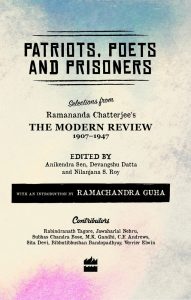
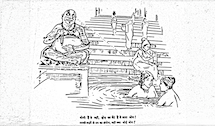
In the colonial period, the threat of the lecherous male gaze was used by the new patriarchy to restrict access to employment and public space for women, maintaining a patriarchal division of labour. Read how this process unfolded in our newest excerpt.
Saurav Kumar Rai
__
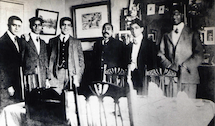
Was Lala Lajpat Rai's Hindu nationalism congruent with the principles of secularism? Explore our latest excerpt from Vanya Vaidehi Bhargav's fresh off-the-press book - Being Hindu, Being Indian: Lala Lajpat Rai's Ideas of Nation for more.
Vanya Vaidehi Bhargav
__
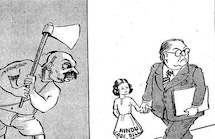
Popularly, we think that political cartoons question the powerful but what if this was not the case? What if political cartoons, replicated structures of the socially dominant? Read how in our new excerpt on political cartoons featuring Dr. Ambedkar.
Unnamati Syama Sundar
__

On Martyrs' day 2024, read the poet Sarojini Naidu's tribute to Gandhi given over All India Radio two days after his assassination.
Sarojini Naidu
__
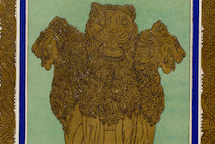
On Republic Day, the Indian History Collective presents you, twenty-two illustrations from the first illustrated manuscript (1954) of our Constitution.
Indian History Collective
__
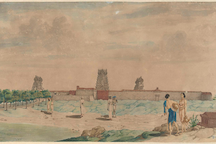
One of the key petitioners in the Ayodhya title dispute was Bhagwan Sri Ram Virajman. This petitioner was no mortal, but God Ram himself. How did Ram find his way from heaven to the Supreme Court of India to plead his case? Read further to find out.
Richard H Davis
__
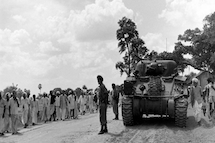
Labelled "one of the shortest, happiest wars ever seen", the integration of the princely state of Hyderabad in 1948 was anything but that. Read about the truth behind the creation of an Indian Union, the fault lines left behind, and what they signify
Afsar Mohammad
__
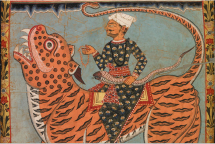
How did Bengal get a large Muslim population? Was it conversion by ruling elites was there something deeper at play? Read Dr. Eaton's classic essay to find out.
Richard Eaton
__
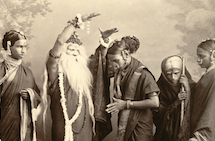
An excerpt from Shailaija Paik's new book 'Vulgarity of Caste' that documents the pivotal role Tamasha (the popular art form) has played in reinforcing and producing caste dynamics in Marathi society.
Shailaja Paik
__
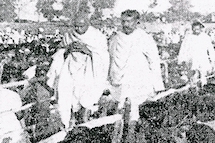
In 1942, two sub-districts in Bengal declared independence and set up a parallel government. The second part of our story brings you archival papers in the form of letters, newspaper reports, and judicial records documenting this remarkable movement.
Indian History Collective
__
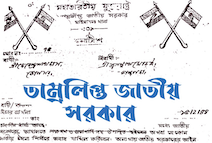
In 1942, five years before India was independent, two sub-divisions in Bengal not only declared their independence— they also instituted a parallel government. The first in a new series.
Indian History Collective
__
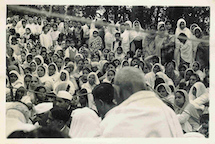
In his own words, read Mohandas Karamchand Gandhi's views on the proselytising efforts taken on by the organisations such as Arya Samaj, Tabhligi Jamaat, and the Church Missionary Society of England.
Mohandas Karamchand Gandhi
__
TIMELINE
-
2500 BC - Present 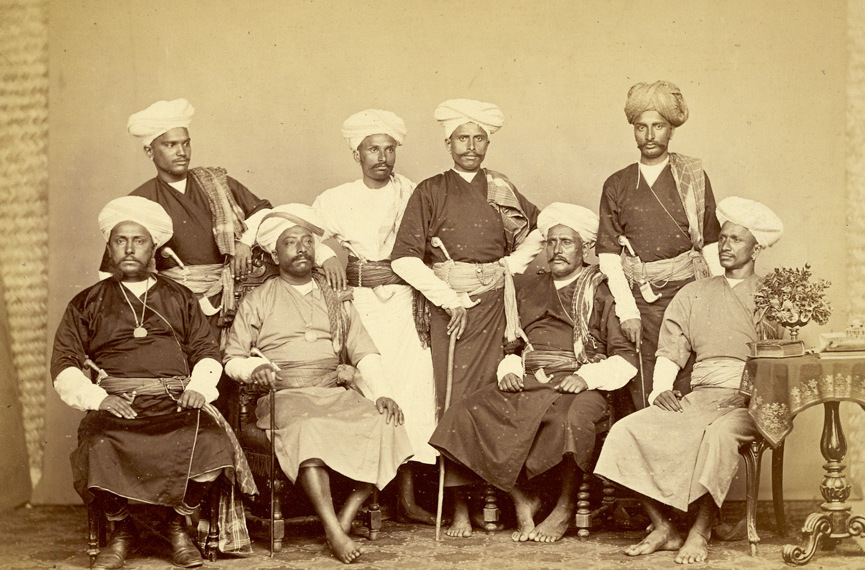
2500 BC - Present Tribal History: Looking for the Origins of the Kodavas -
2200 BC to 600 AD 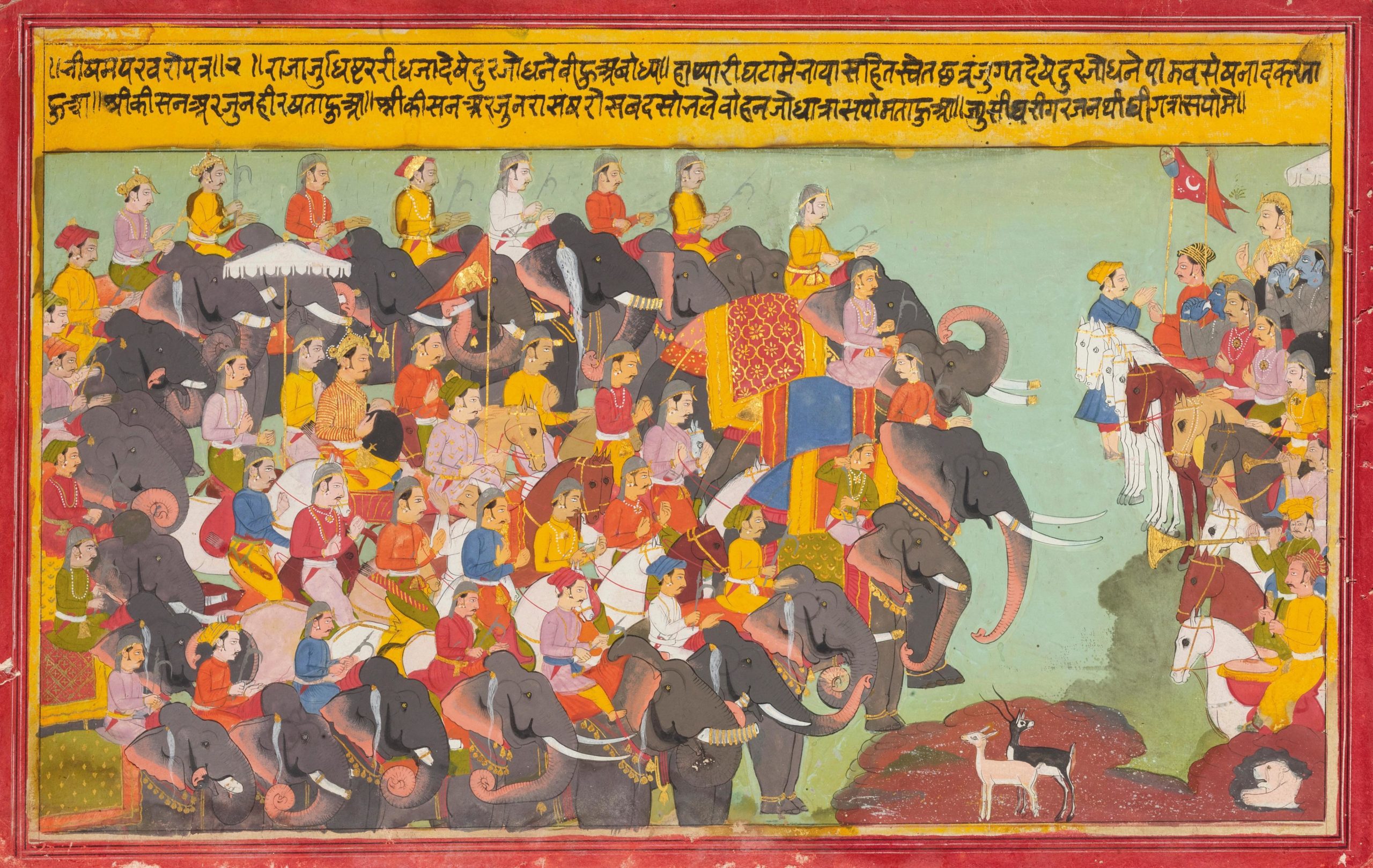
2200 BC to 600 AD War, Political Violence and Rebellion in Ancient India -
400 BC to 1001 AD 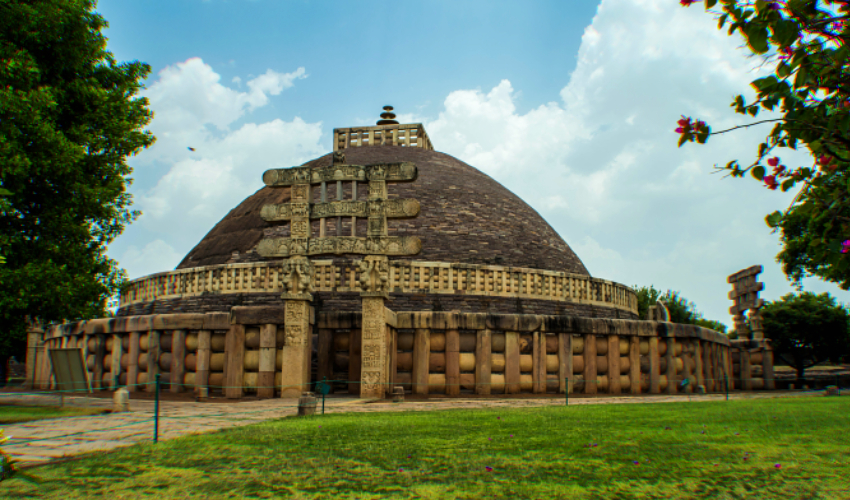
400 BC to 1001 AD The Dissent of the ‘Nastika’ in Early India -
600CE-1200CE 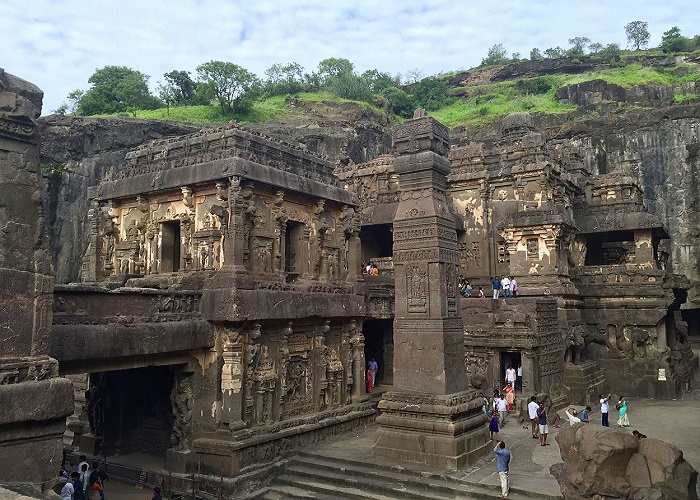
600CE-1200CE The Other Side of the Vindhyas: An Alternative History of Power -
c. 700 - 1400 AD 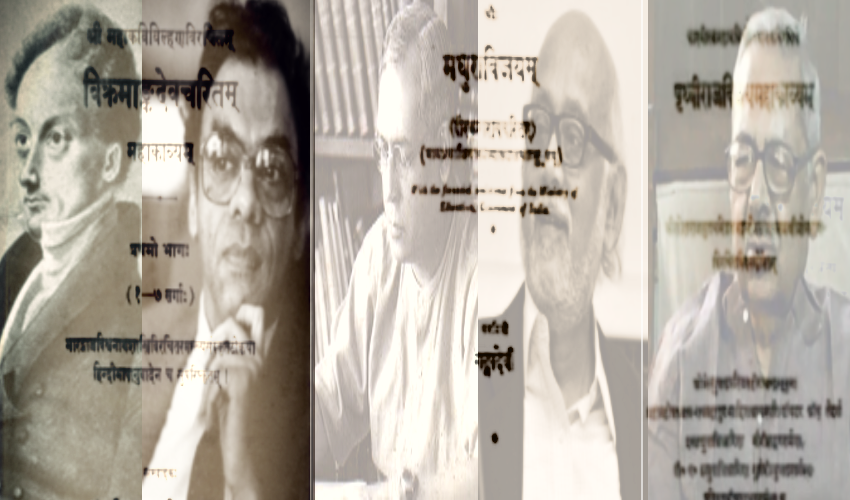
c. 700 - 1400 AD A Historian Recommends: Representing the ‘Other’ in Indian History -
c. 800 - 900 CE 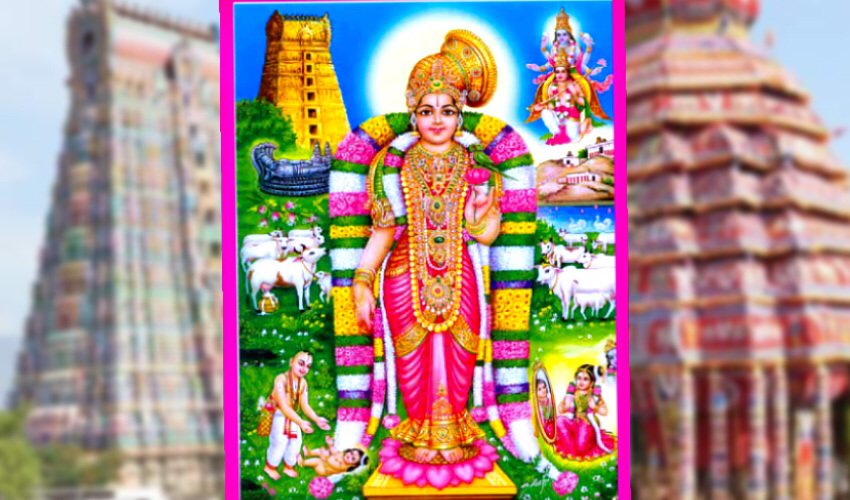
c. 800 - 900 CE ‘Drape me in his scent’: Female Sexuality and Devotion in Andal, the Goddess -
1192 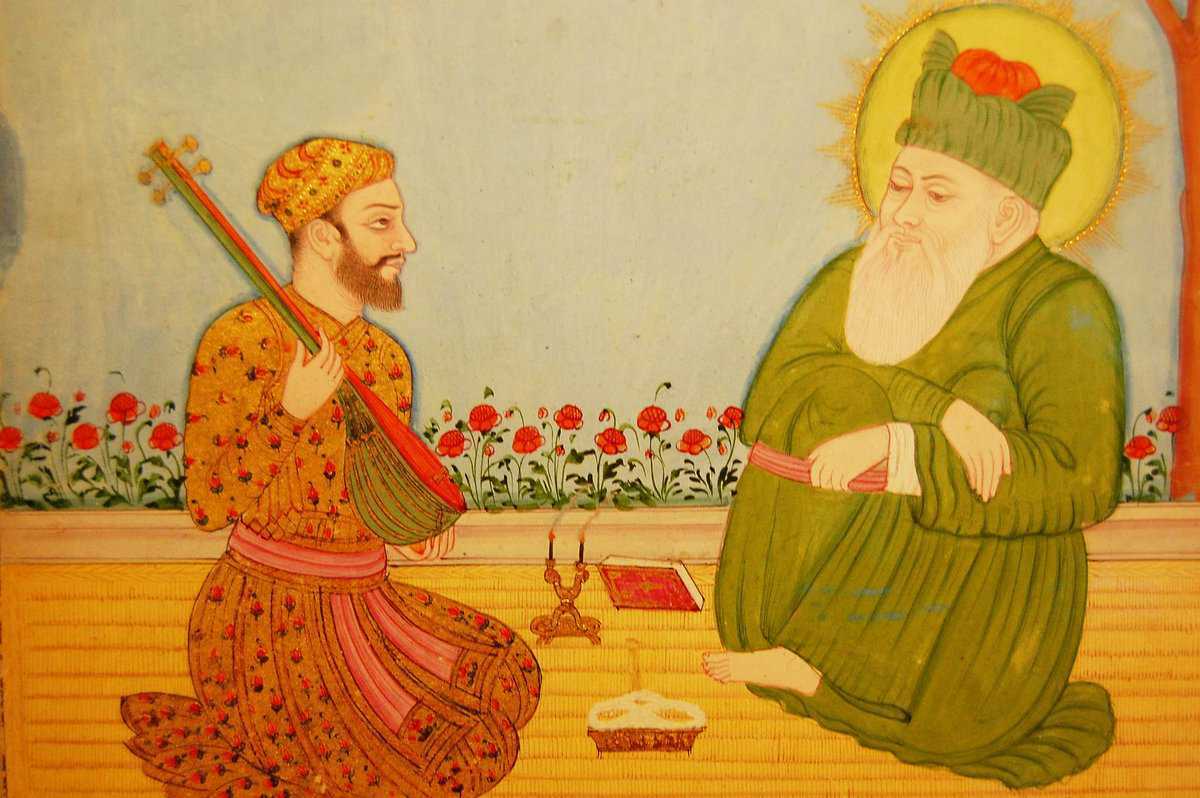
1192 Sufi Silsilahs: The Mystic Orders in India -
1200 - 1850 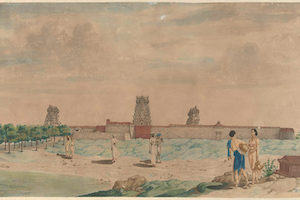
1200 - 1850 Temples, deities, and the law. -
c. 1500 - 1600 AD 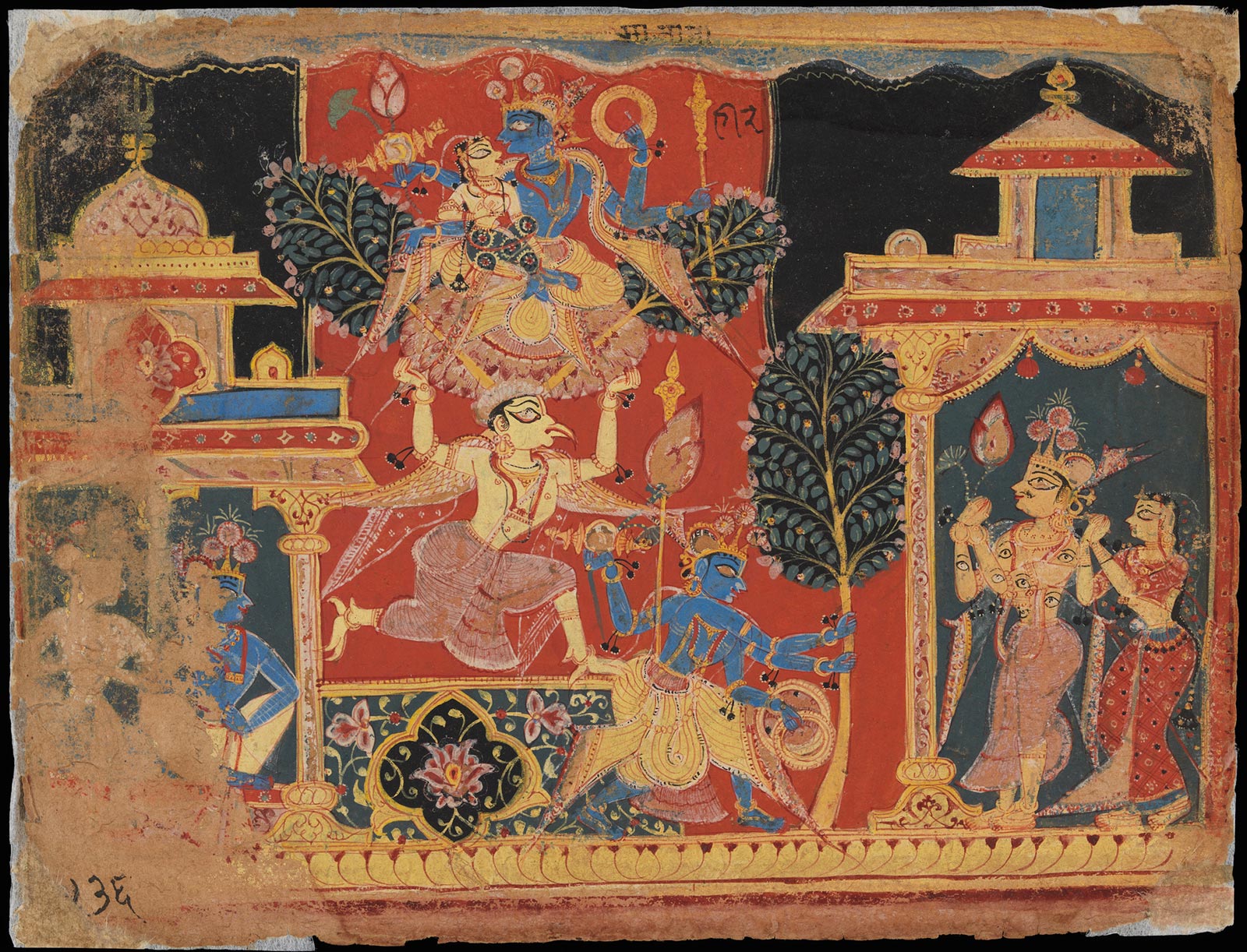
c. 1500 - 1600 AD A Historian Recommends: Religion in Mughal India -
1200-2020 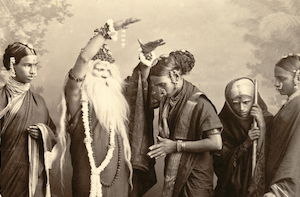
1200-2020 Policing Untouchables and Producing Tamasha in Maharashtra -
1530-1858 
1530-1858 Rajputs, Mughals and the Handguns of Hindustan -
1575 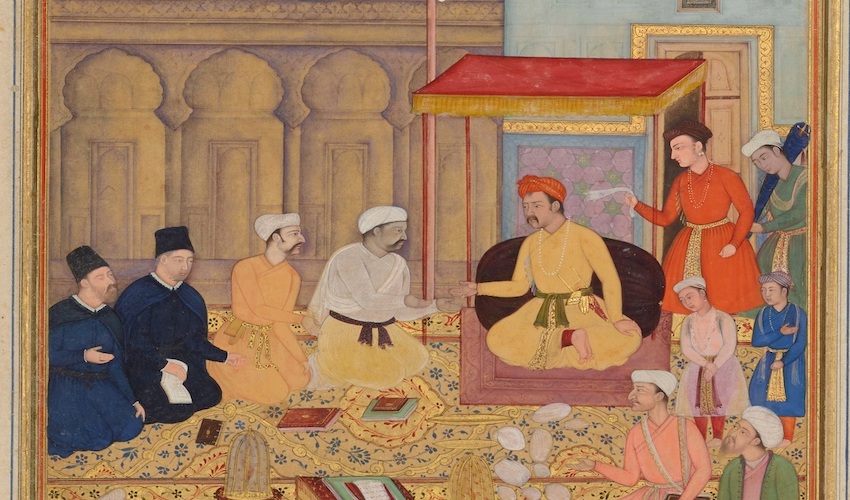
1575 Abdul Qadir Badauni & Abul Fazl: Two Mughal Intellectuals in King Akbar‘s Court -
1579 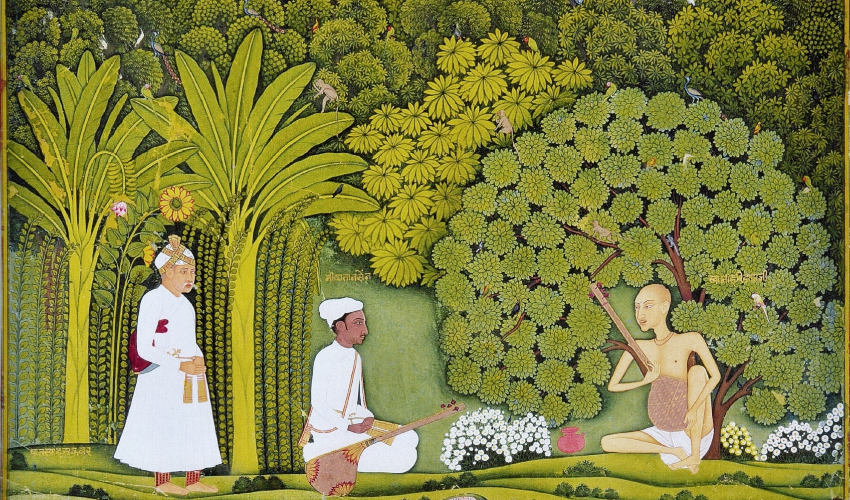
1579 Padshah-i Islam -
1550-1800 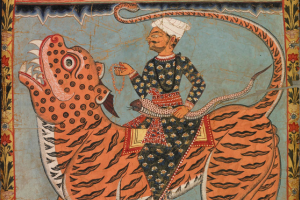
1550-1800 Who are the Bengal Muslims? : Conversion and Islamisation in Bengal -
c. 1600 CE-1900 CE 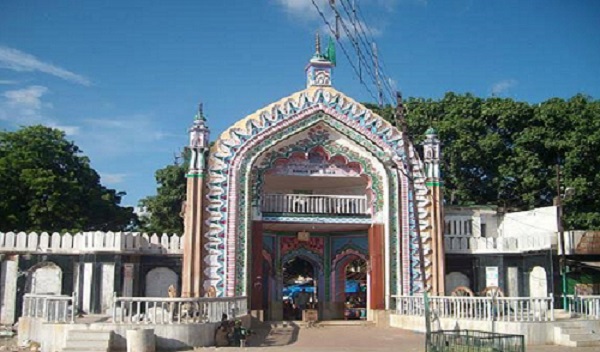
c. 1600 CE-1900 CE The Birth of a Community: UP’s Ghazi Miyan and Narratives of ‘Conquest’ -
1553 - 1900 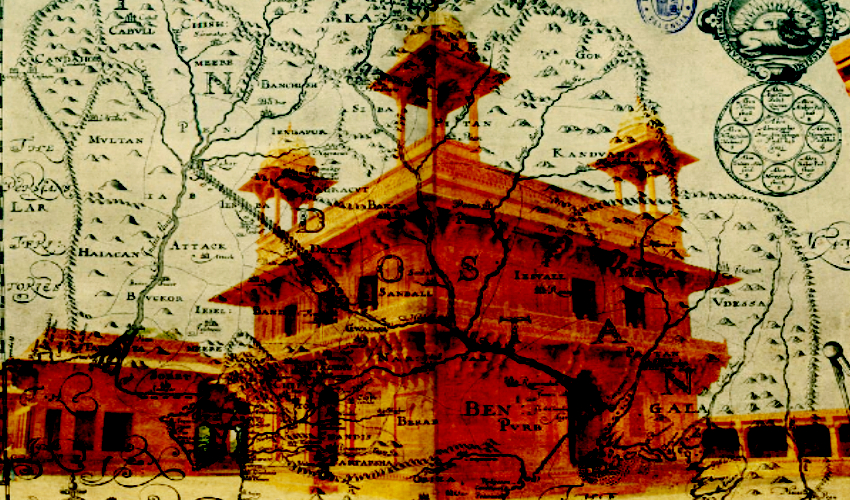
1553 - 1900 What Happened to ‘Hindustan’? -
1630-1680 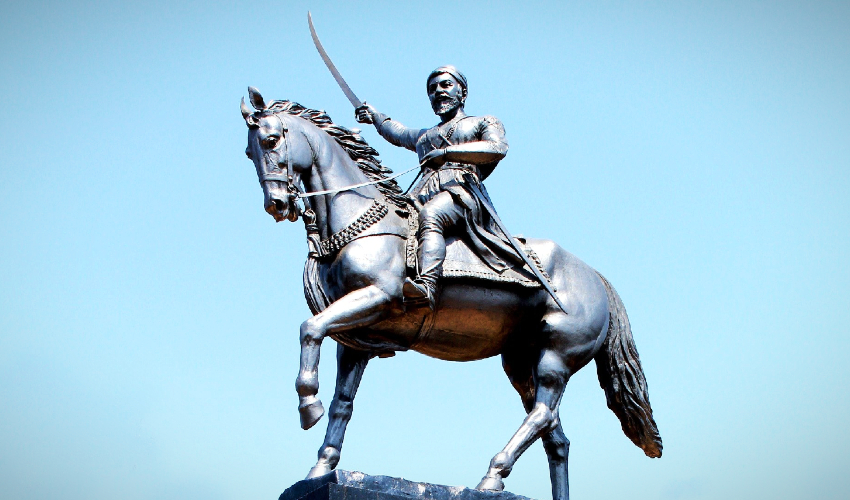
1630-1680 Shivaji: Hindutva Icon or Secular Nationalist? -
1630 -1680 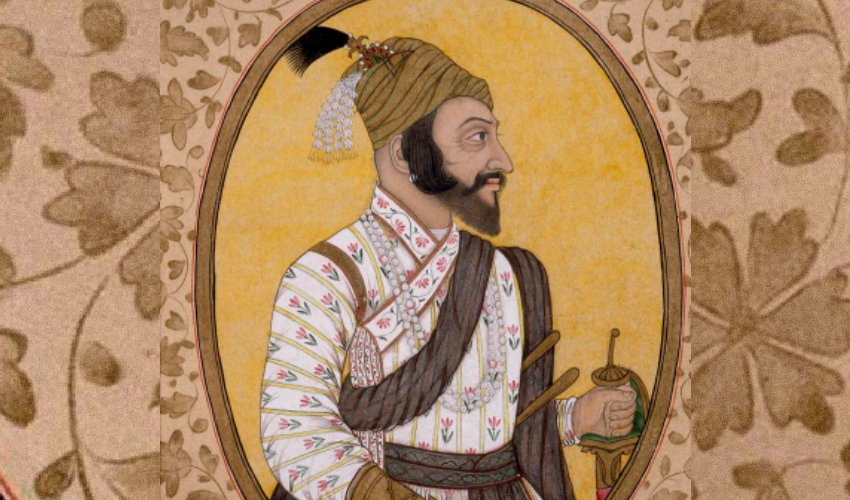
1630 -1680 Shivaji: His Legacy & His Times -
c. 1724 – 1857 A.D. 
c. 1724 – 1857 A.D. Bahu Begum and the Gendered Struggle for Power -
1818 - Present 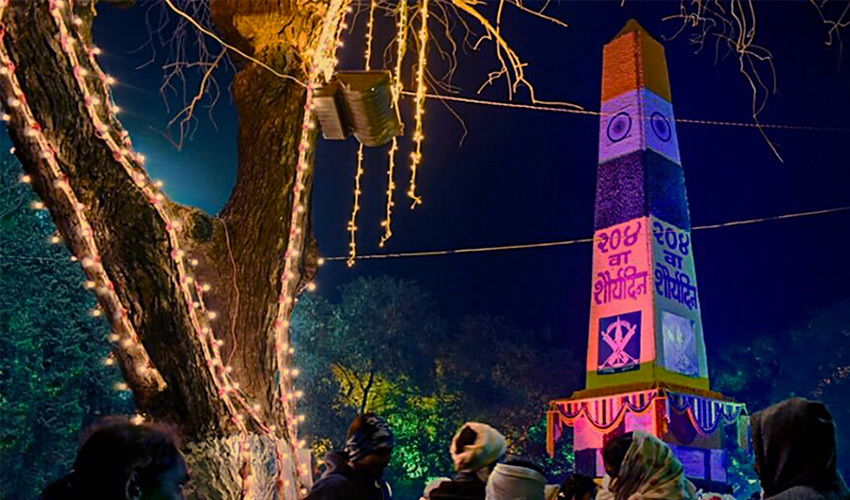
1818 - Present The Contesting Memories of Bhima-Koregaon -
1831 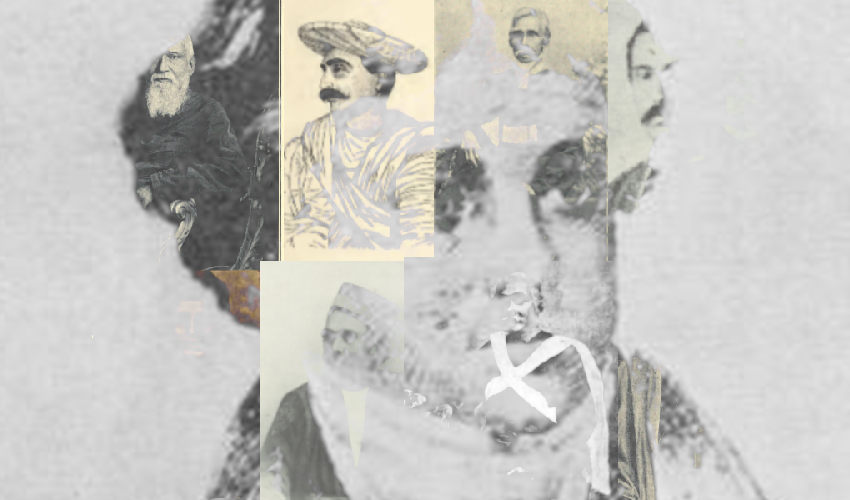
1831 The Derozians’ India -
1855 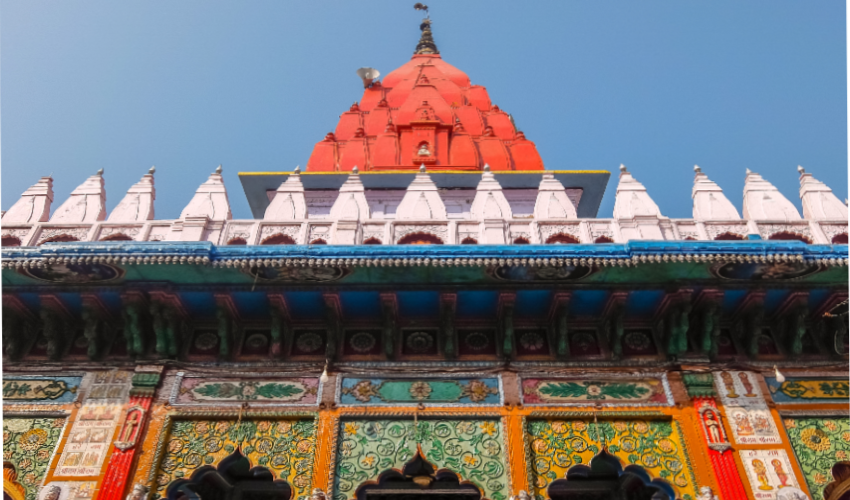
1855 Ayodhya 1855 -
1856 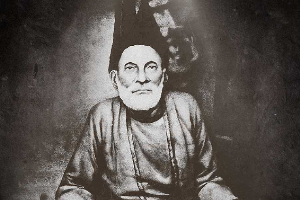
1856 “Worshipping the dead is not an auspicious thing” — Ghalib -
1857 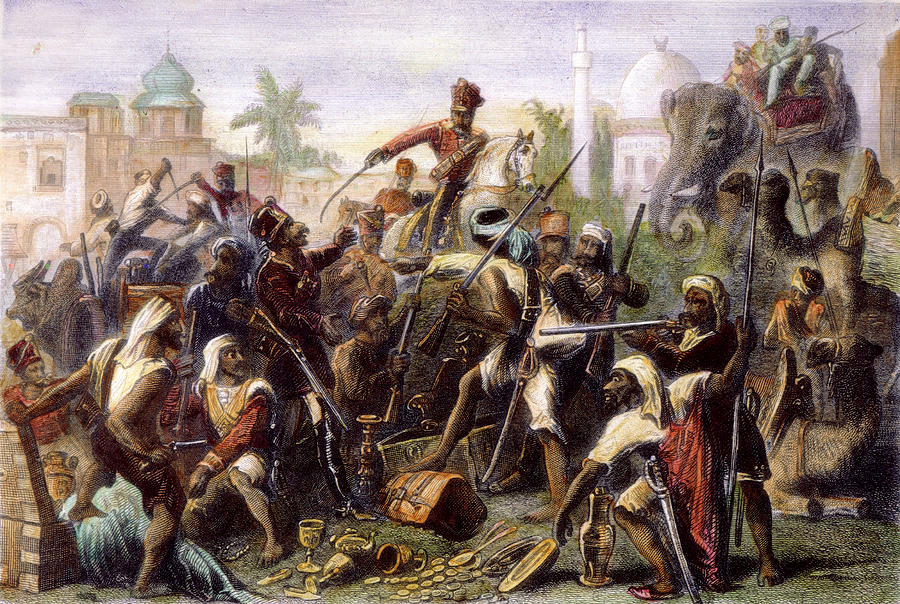
1857 A Subaltern speaks: Dalit women’s counter-history of 1857 -
1858 - 1976 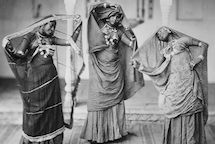
1858 - 1976 Lifestyle as Resistance: The Curious Case of the Courtesans of Lucknow -
1883 - 1894 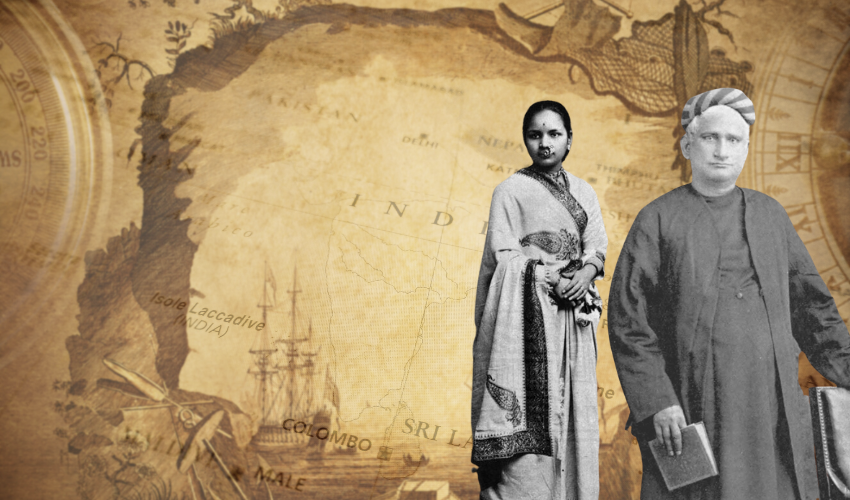
1883 - 1894 The Sea Voyage Question: A Nineteenth century Debate -
1887 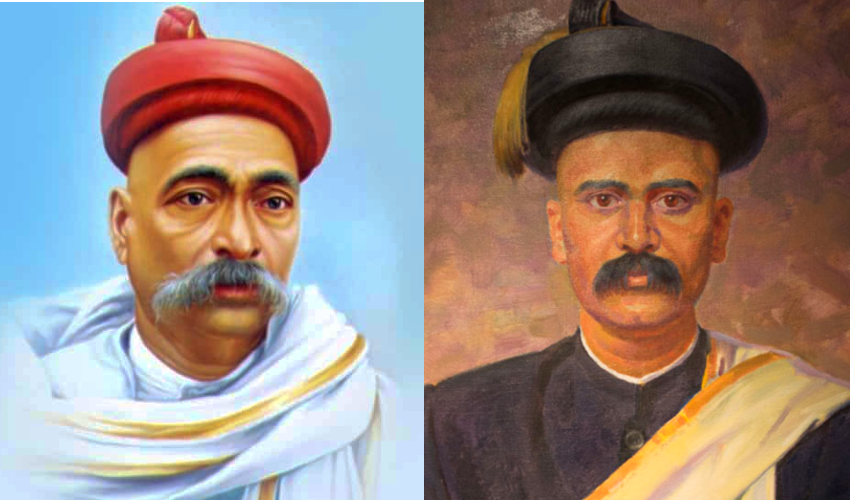
1887 The Great Debaters: Tilak Vs. Agarkar -
1893-1946 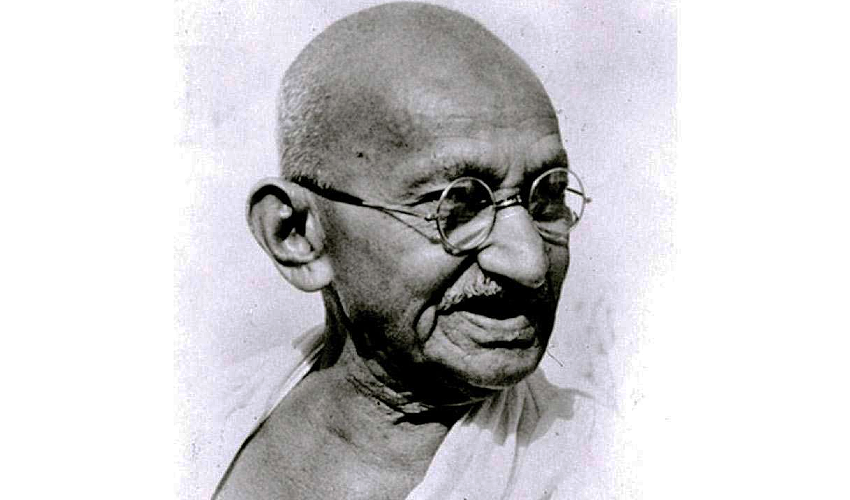
1893-1946 A Historian Recommends: Gandhi Vs. Caste -
1897 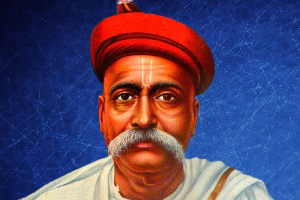
1897 Queen Empress vs. Bal Gangadhar Tilak: An Autopsy -
1913 - 1916 Modern Review 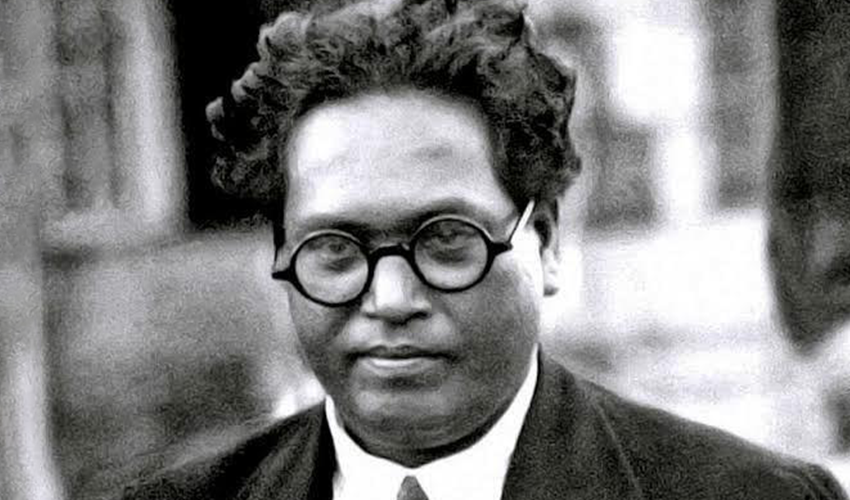
1913 - 1916 A Young Ambedkar in New York -
1916 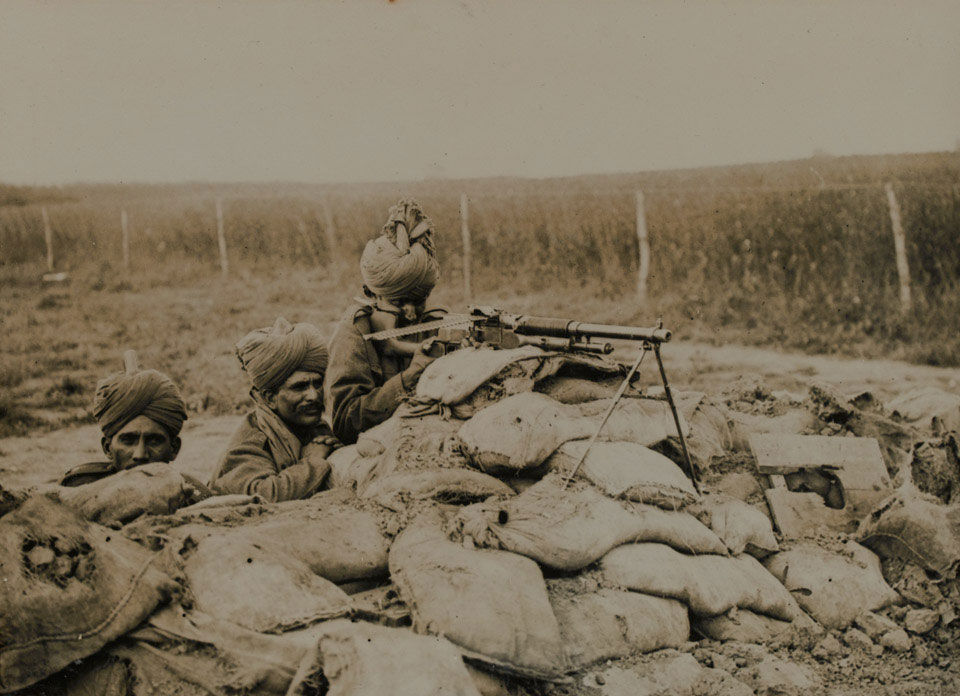
1916 A Rare Account of World War I by an Indian Soldier -
1917 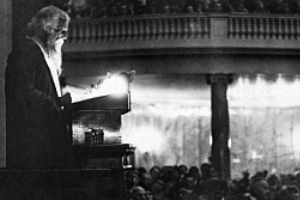
1917 On Nationalism, by Tagore -
1918 - 1919 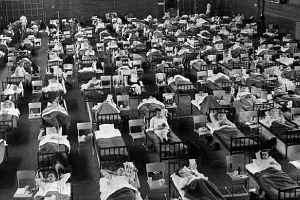
1918 - 1919 What Happened to the Virus That Caused the World’s Deadliest Pandemic? -
1920 - 1947 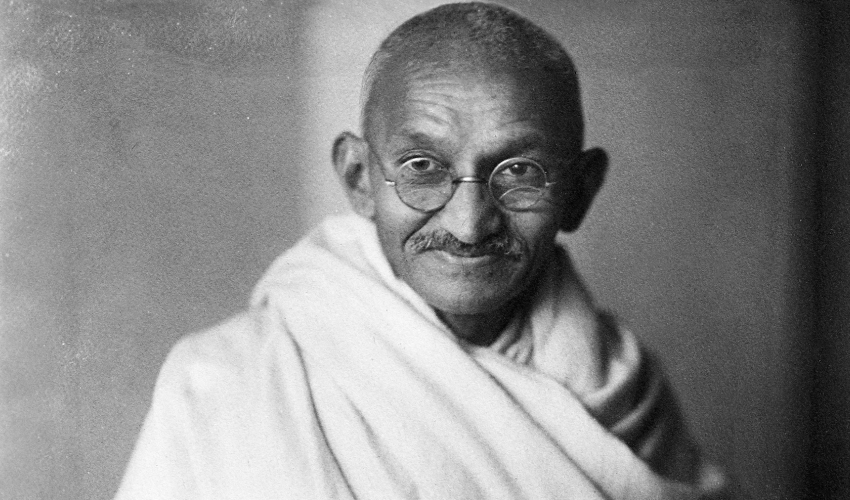
1920 - 1947 How One Should Celebrate Diwali, According to Gandhi -
1921 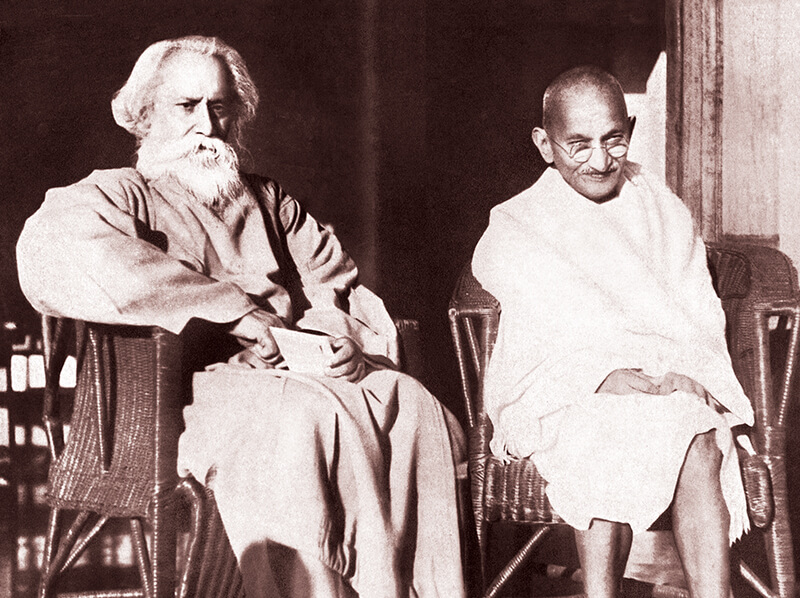
1921 Great Debates: Tagore Vs. Gandhi (1921) -
1921 - 2015 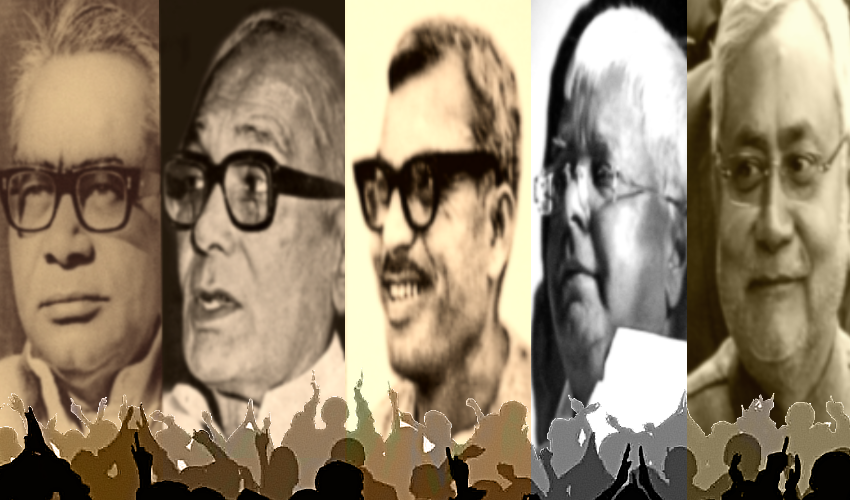
1921 - 2015 A History of Caste Politics and Elections in Bihar -
1915-1921 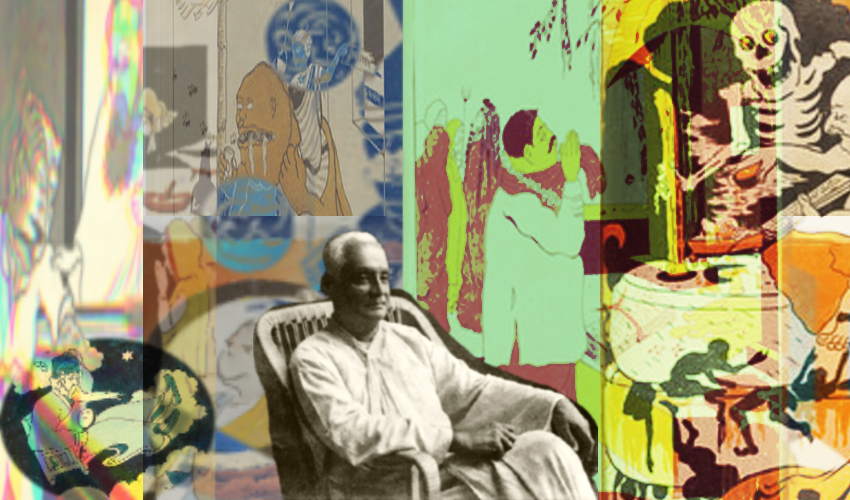
1915-1921 The Satirical Genius of Gaganendranath Tagore -
1924-1937 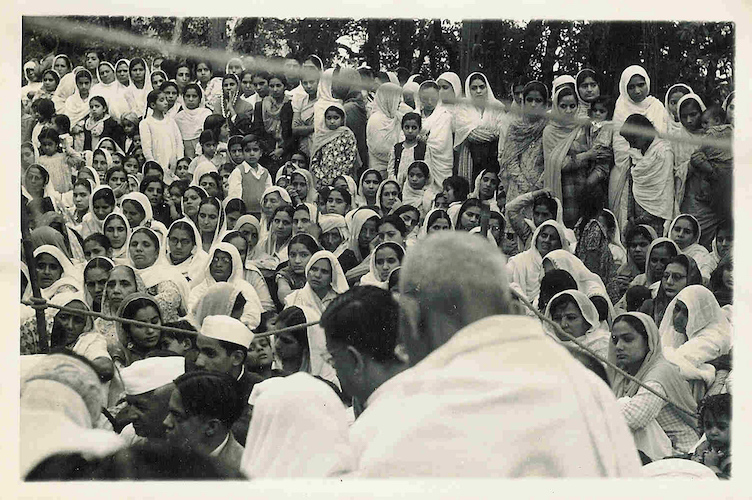
1924-1937 What were Gandhi’s Views on Religious Conversion? -
1900-1950 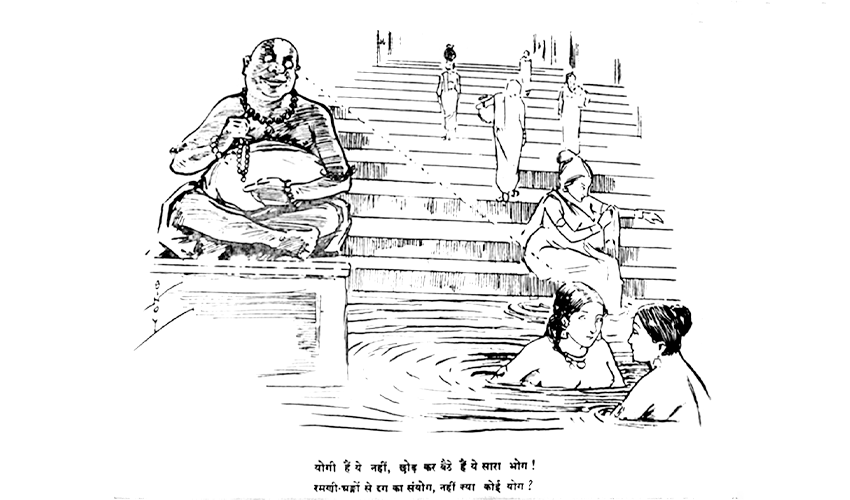
1900-1950 Gazing at the Woman’s Body: Historicising Lust and Lechery in a Patriarchal Society -
1925, 1926 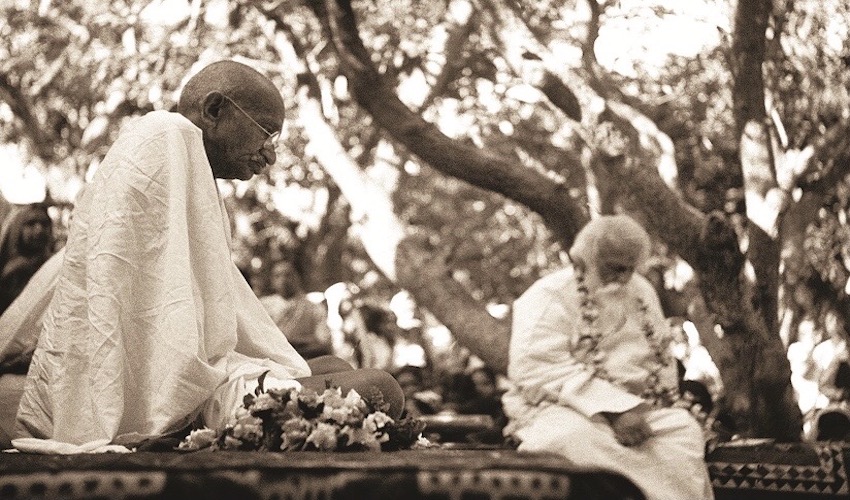
1925, 1926 Great Debates: Tagore vs Gandhi (1925-1926) -
1928 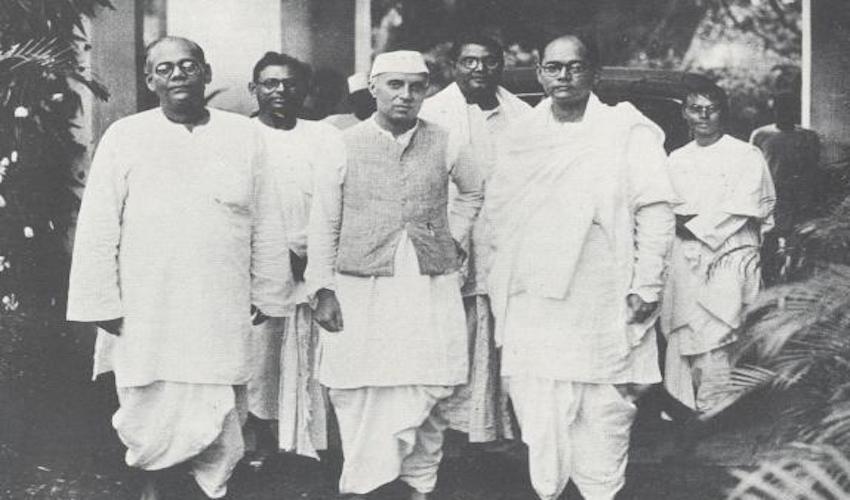
1928 Bhagat Singh’s dilemma: Nehru or Bose? -
1930 Modern Review 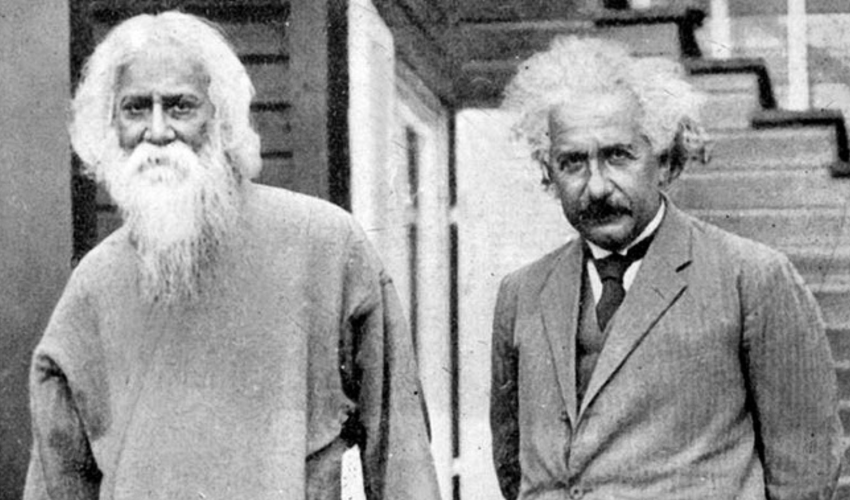
1930 The Modern Review Special: On the Nature of Reality -
1932 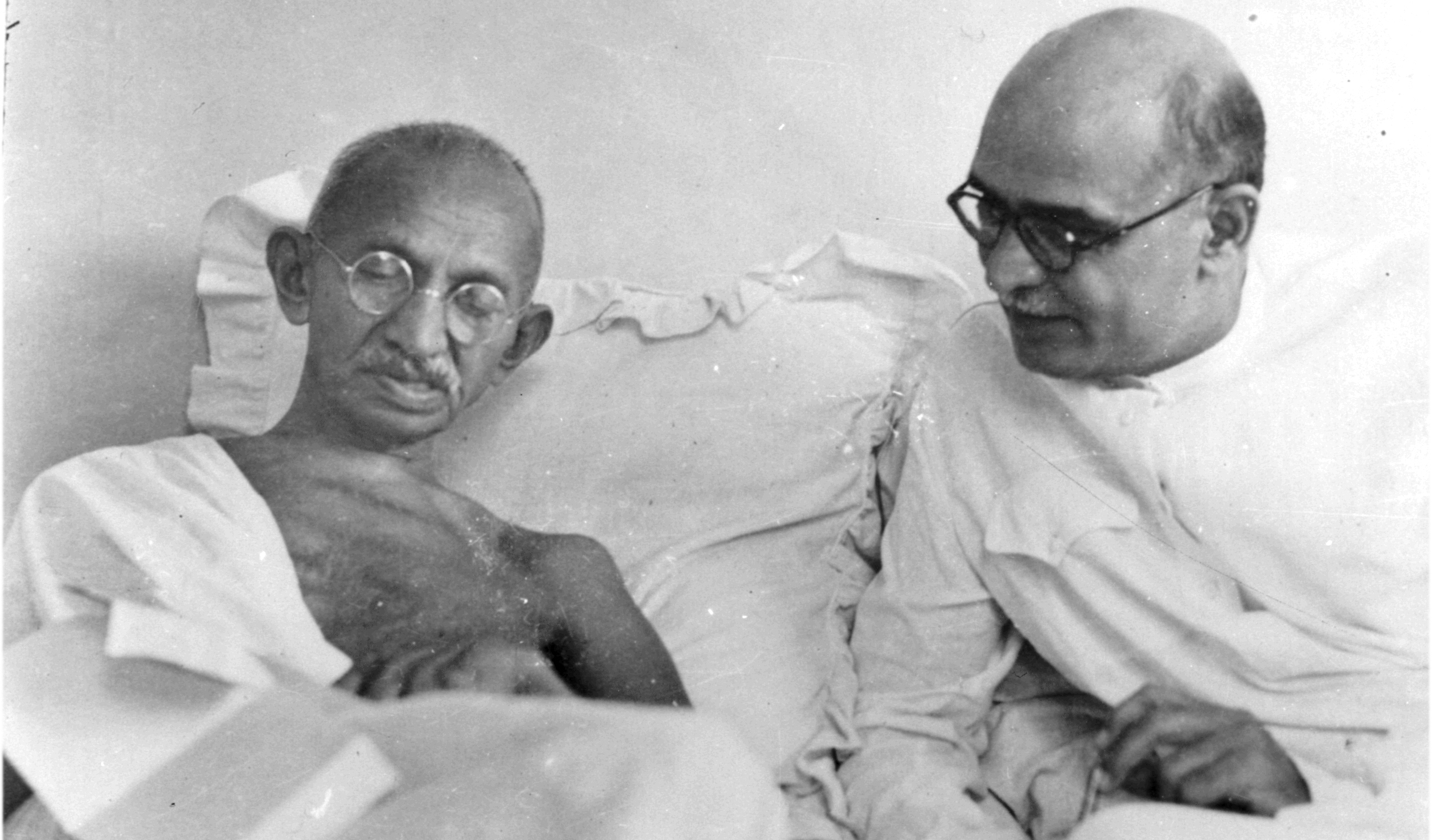
1932 Caste, Gandhi and the Man Beside Gandhi -
1933 - 1991 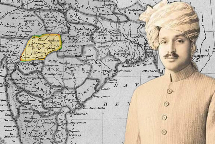
1933 - 1991 Raghubir Sinh: The Prince Who Would Be Historian -
1935 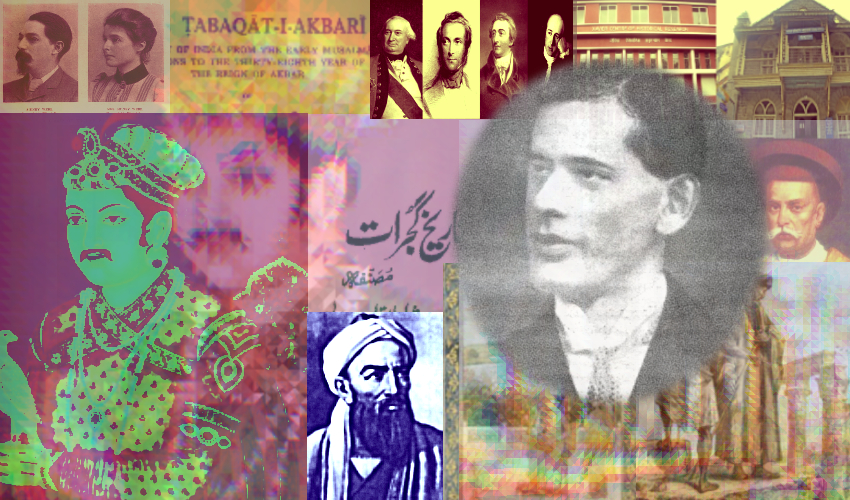
1935 A Historian Recommends: SA Khan’s Timeless Presidential Address -
1865-1928 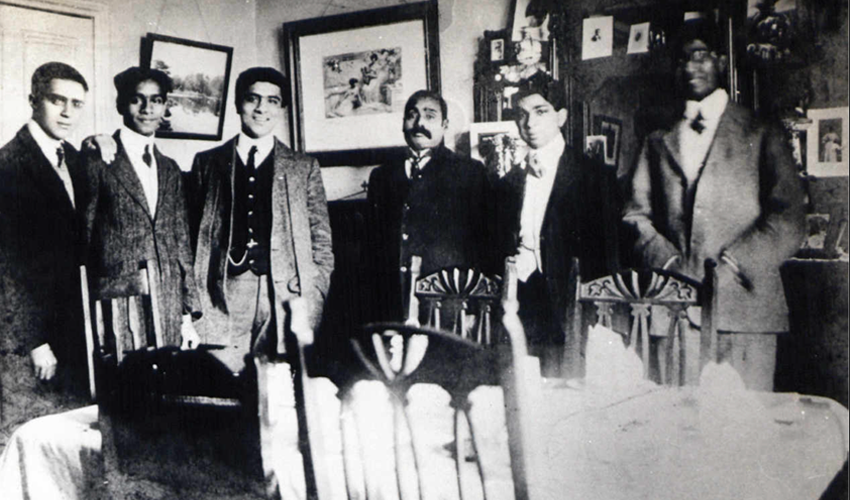
1865-1928 Understanding Lajpat Rai’s Hindu Politics and Secularism -
1935 Modern Review 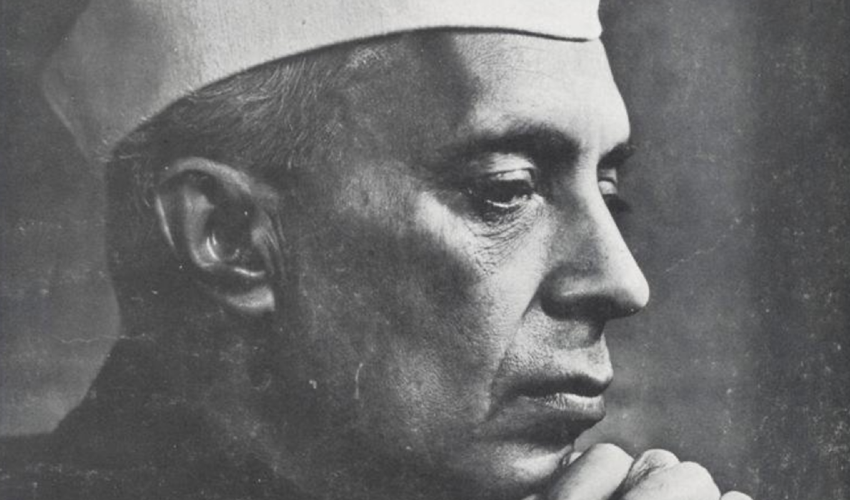
1935 The Modern Review Special: The Mind of a Judge -
1936 Modern Review 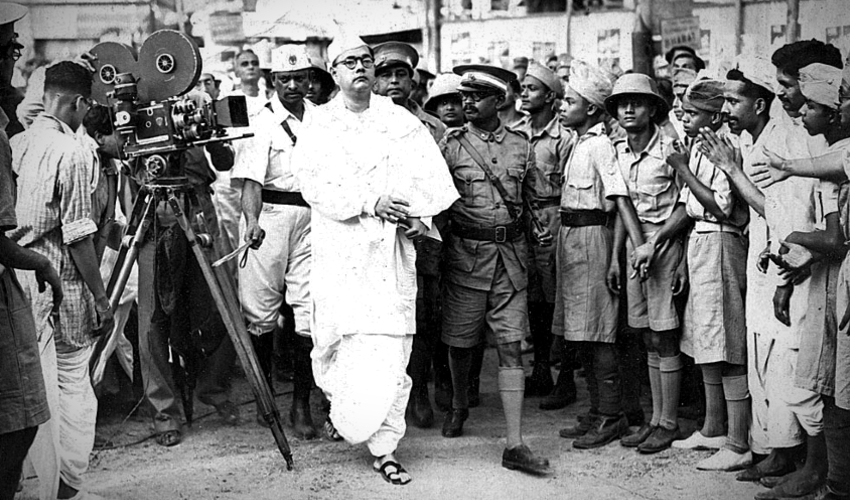
1936 The Modern Review Special: When Netaji Subhas Bose Was Wrongfully Detained for ‘Terrorism’ -
1936 
1936 Annihilation of Caste: Part 1 -
1936 Modern Review 
1936 The Modern Review Special: An Indian MP in the British Parliament -
1936 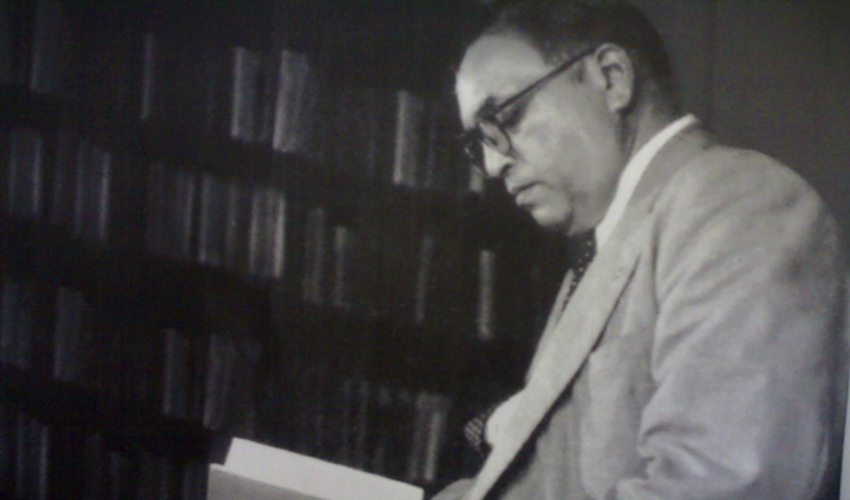
1936 Annihilation of Caste: Part 2 -
1936 
1936 A Reflection of His Age: Munshi Premchand on the True Purpose of Literature -
1936 Modern Review 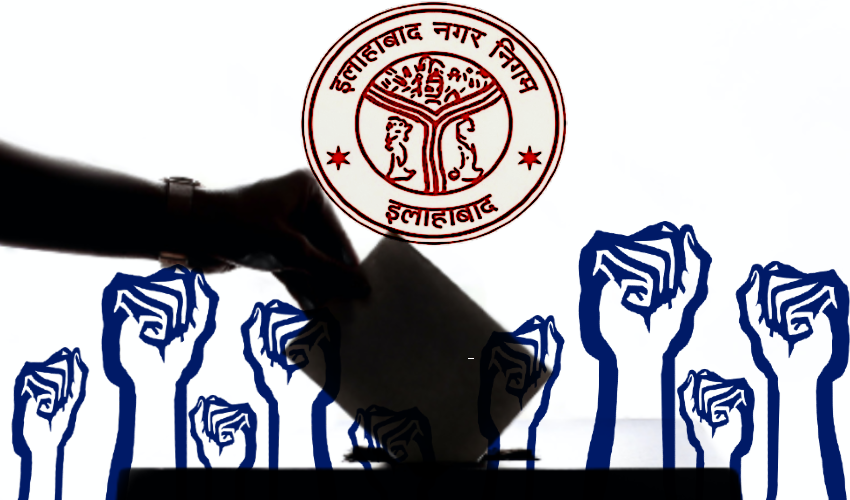
1936 The Modern Review Special: The Defeat of a Dalit Candidate in a 1936 Municipal Election -
1937 Modern Review 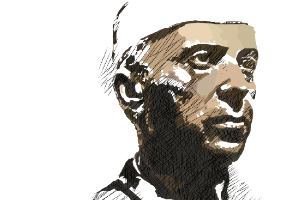
1937 The Modern Review Special: Rashtrapati -
1938 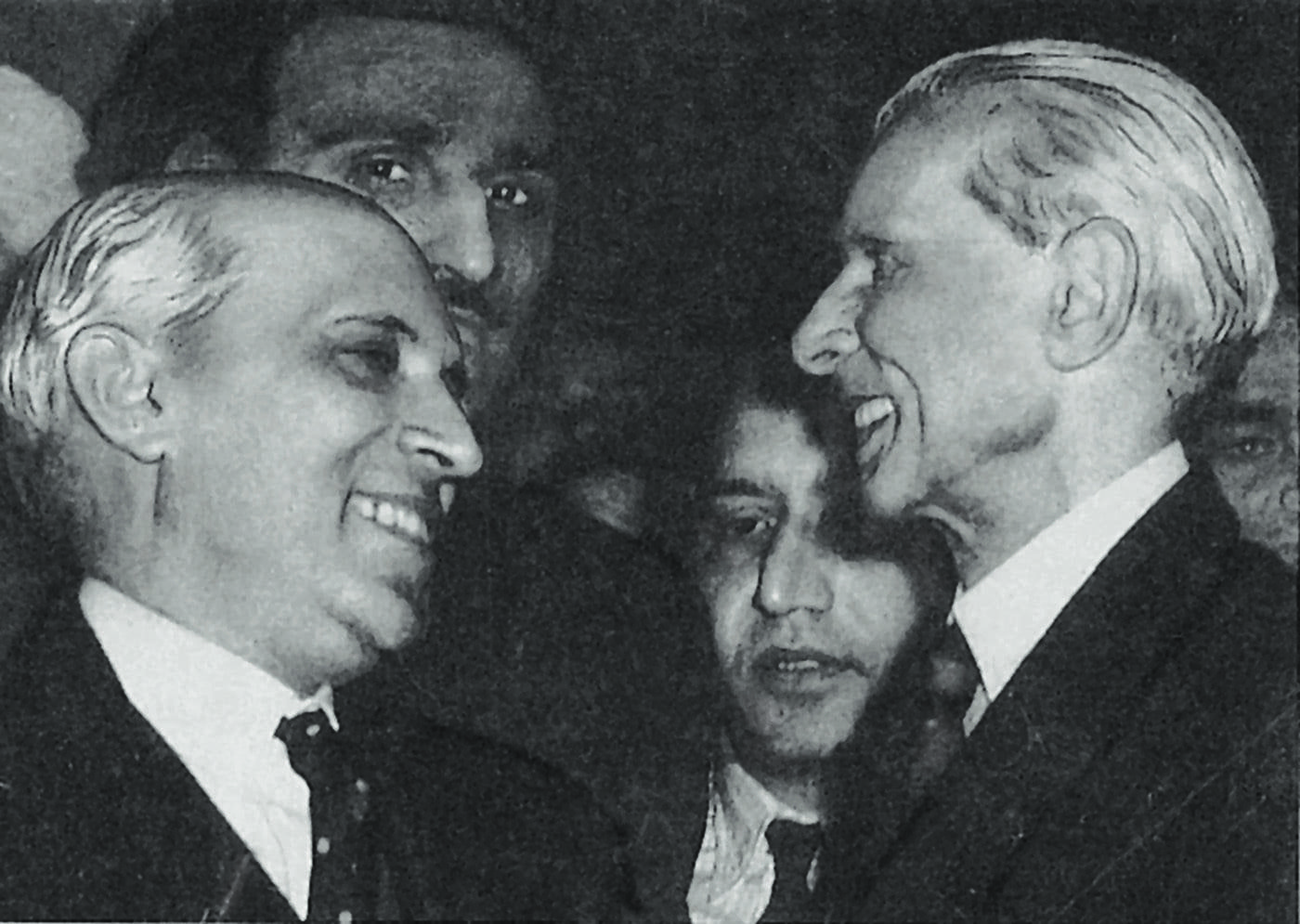
1938 Great Debates: Nehru Vs. Jinnah (1938) -
1942 Modern Review 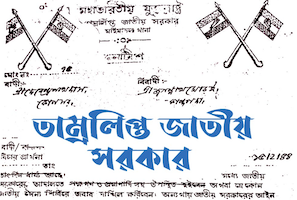
1942 IHC Uncovers: A Parallel Government In British India (Part 1) -
1942-1945 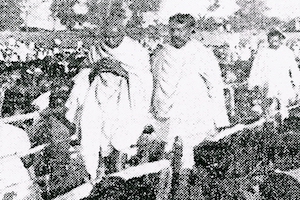
1942-1945 IHC Uncovers: A Parallel Government in British India (Part 2) -
1946 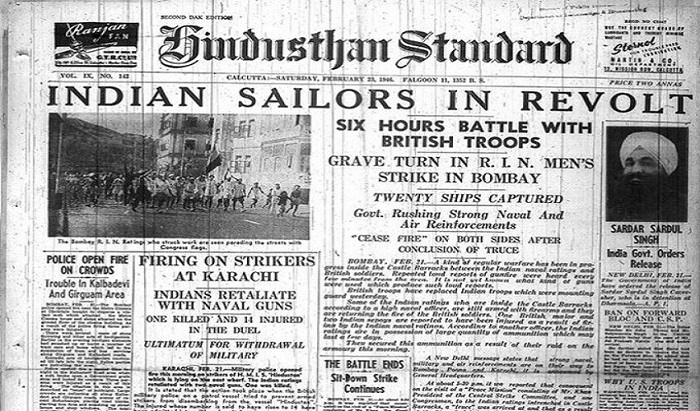
1946 Our Last War of Independence: The Royal Indian Navy Mutiny of 1946 -
1946 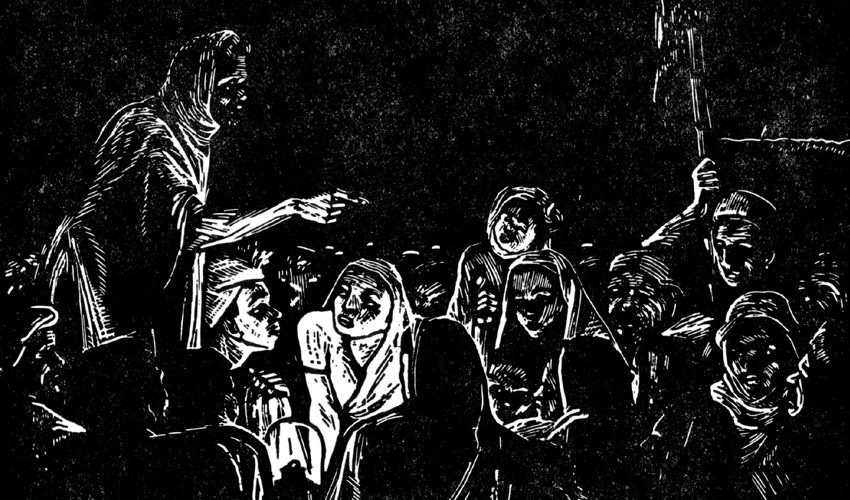
1946 An Artist’s Account of the Tebhaga Movement in Pictures And Prose -
1946 – 1947 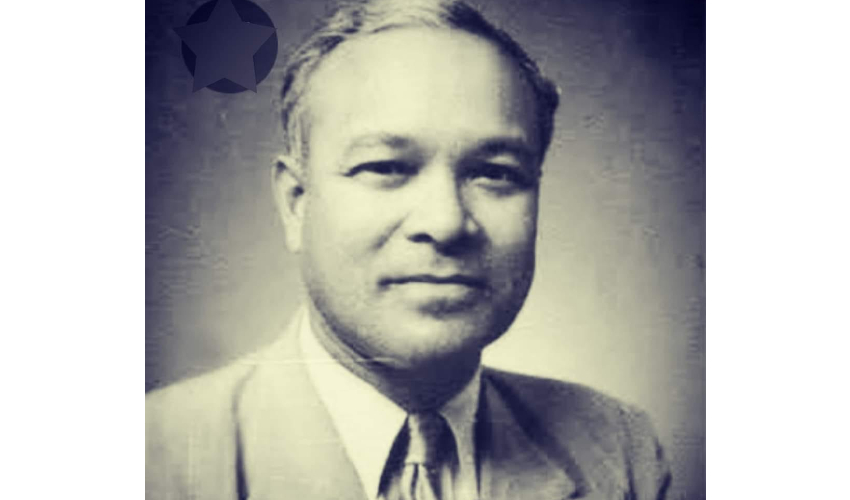
1946 – 1947 “The Most Democratic People on Earth” : An Adivasi Voice in the Constituent Assembly -
1946-1947 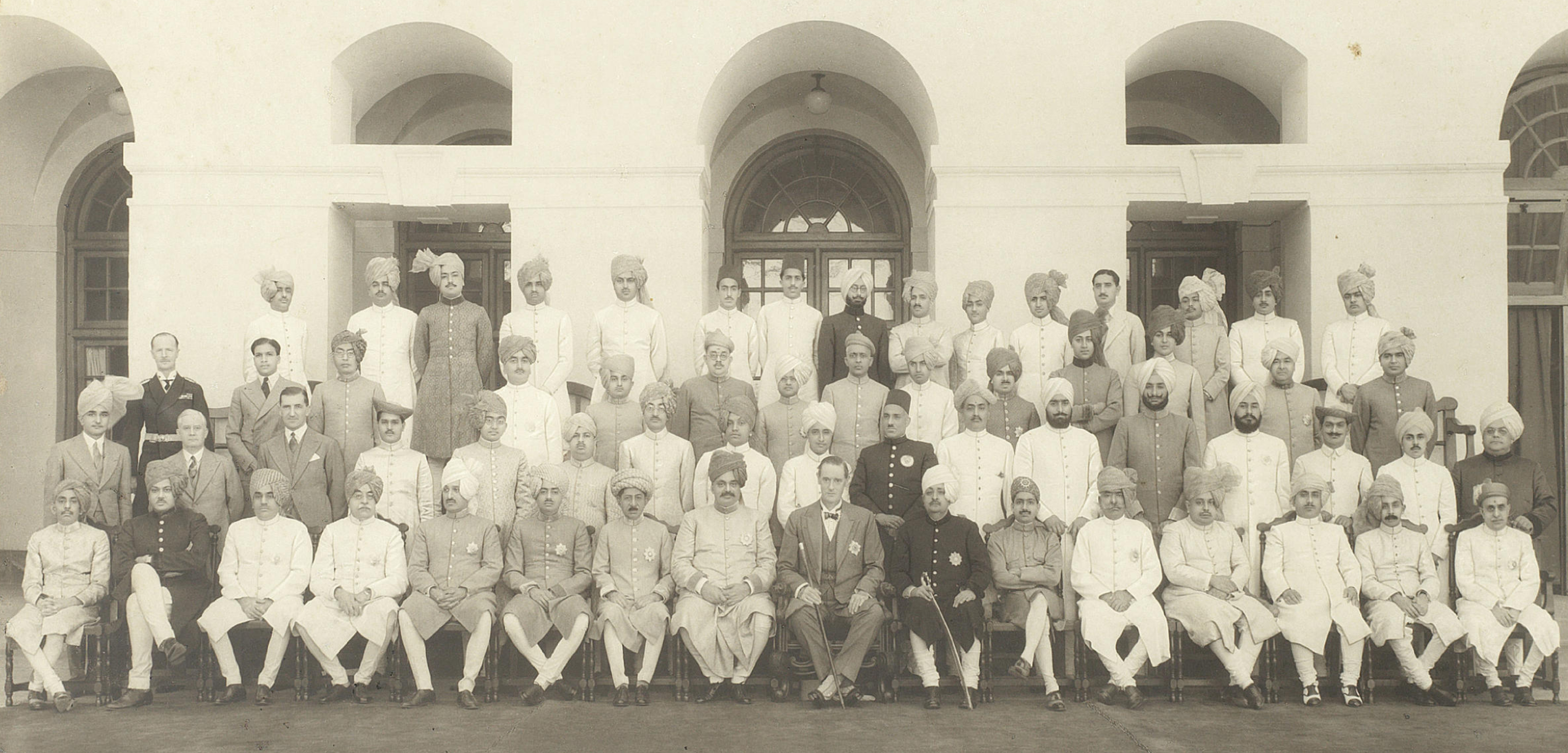
1946-1947 VP Menon and the Birth of Independent India -
1916 - 1947 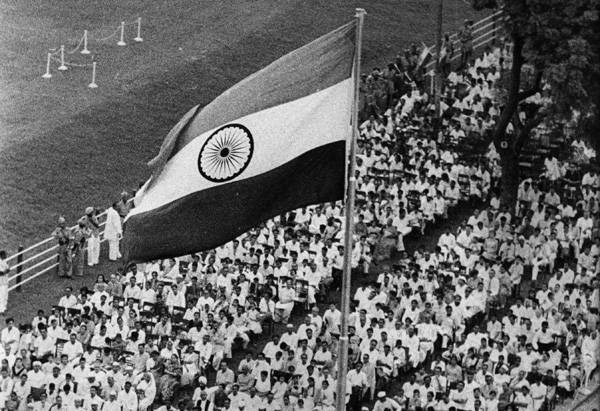
1916 - 1947 8 @ 75: 8 Speeches Independent Indians Must Read -
1947-1951 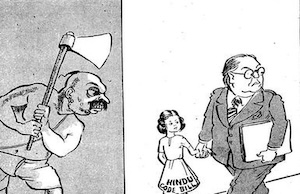
1947-1951 Ambedkar Cartoons: The Joke’s On Us -
1948 
1948 “My Father, Do Not Rest” -
1940-1960 
1940-1960 Integration Myth: A Silenced History of Hyderabad -
1948 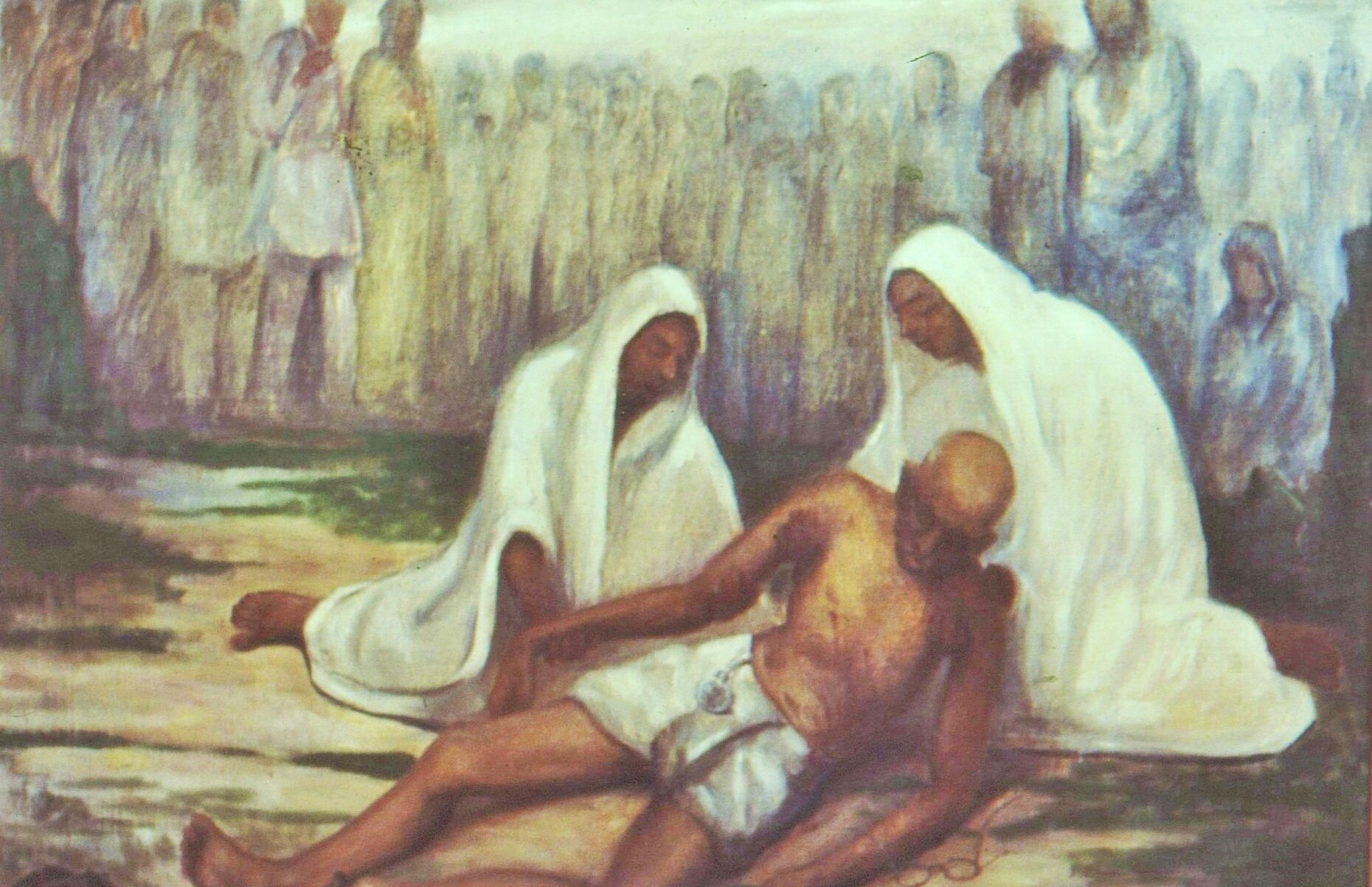
1948 The Assassination of a Mahatma, the Princely States and the ‘Hindu’ Nation -
1949 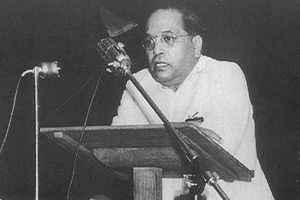
1949 Ambedkar warns against India becoming a ‘Democracy in Form, Dictatorship in Fact’ -
1950 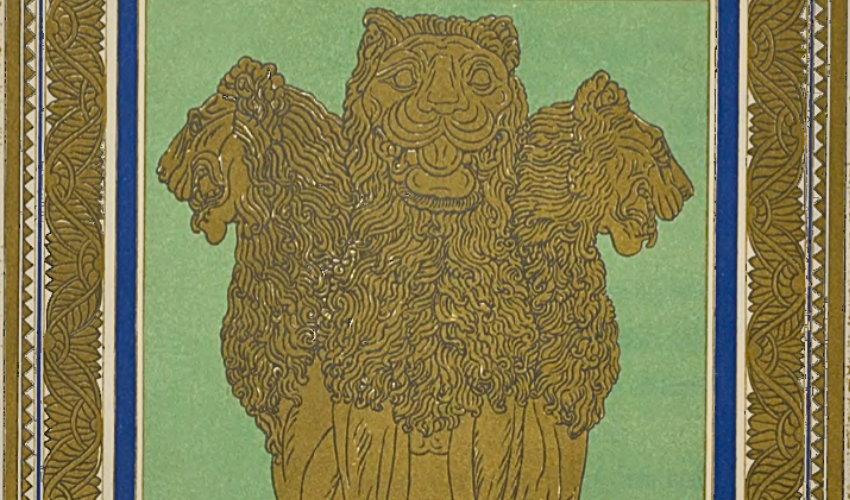
1950 Illustrations from the constitution -
1951 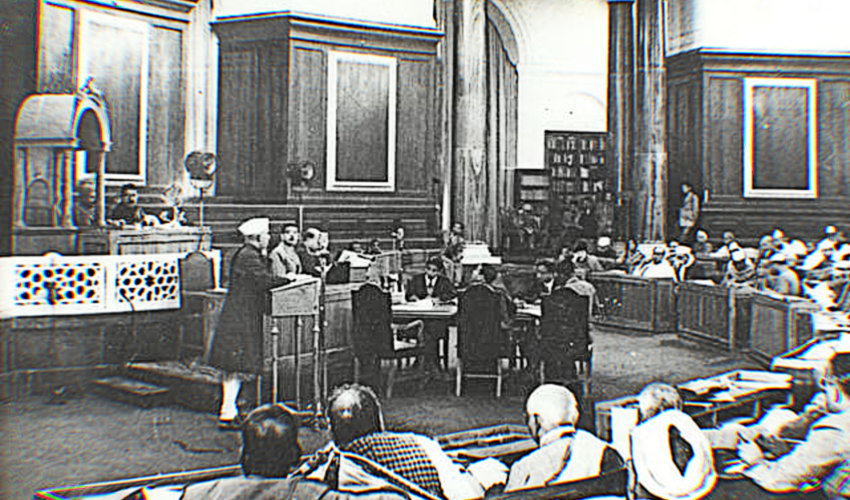
1951 How the First Amendment to the Indian Constitution Circumscribed Our Freedoms & How it was Passed -
1967 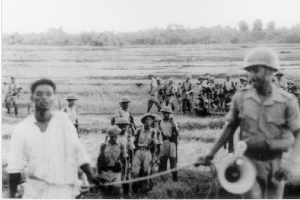
1967 Once Upon A Time In Naxalbari -
1970 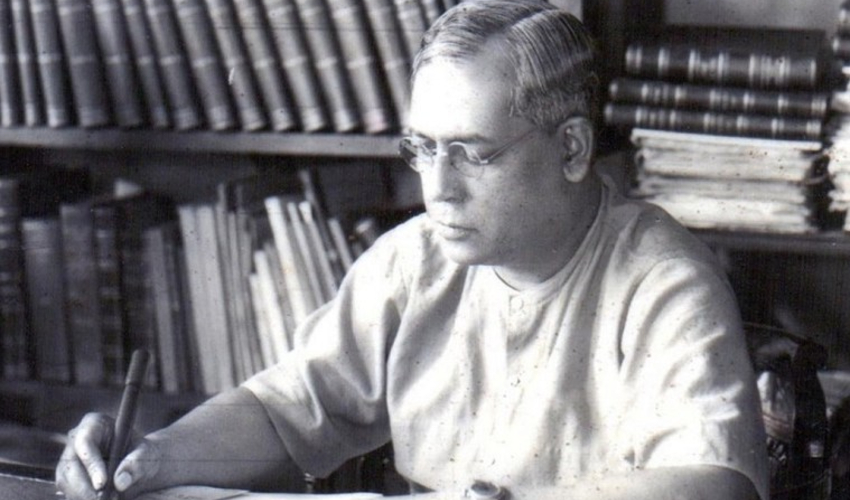
1970 R.C. Majumdar on Shortcomings in Indian Historiography -
1973 - 1993 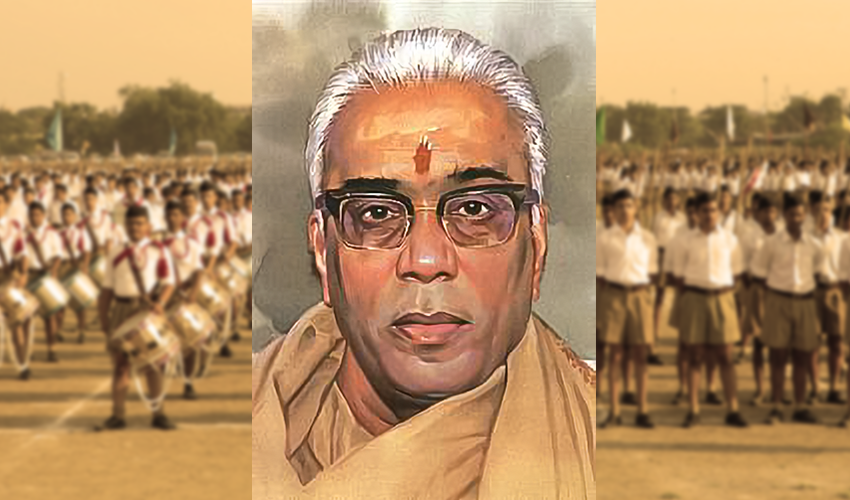
1973 - 1993 Balasaheb Deoras: Kingmaker of the Sangh -
1975 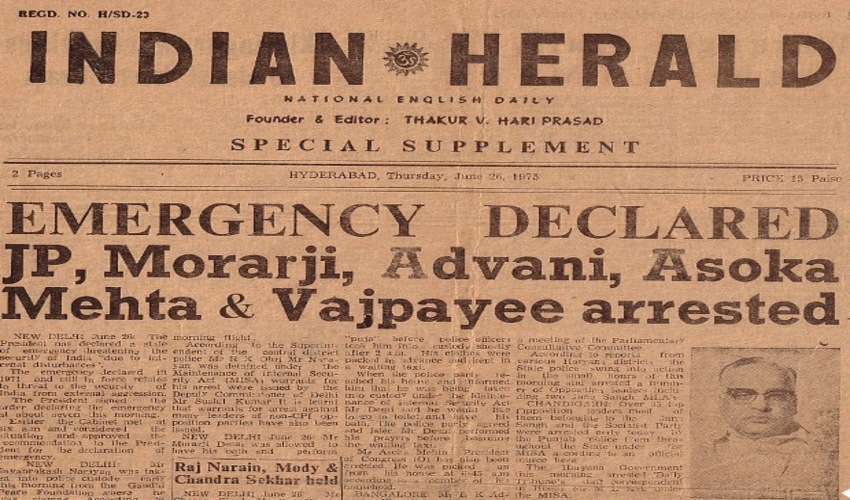
1975 The Emergency Package: Shadow Power -
1975 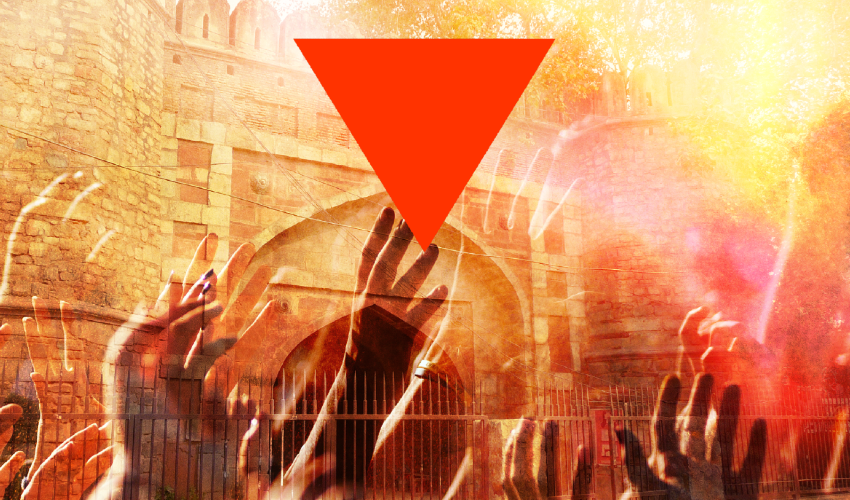
1975 The Emergency Package: The Prehistory of Turkman Gate – Population Control -
1977 – 2011 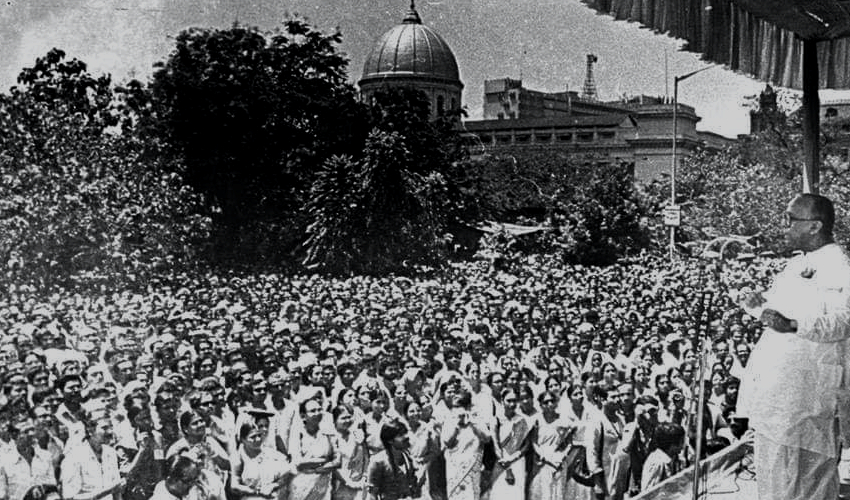
1977 – 2011 Power is an Unforgiving Mistress: Lessons from the Decline of the Left in Bengal -
1984 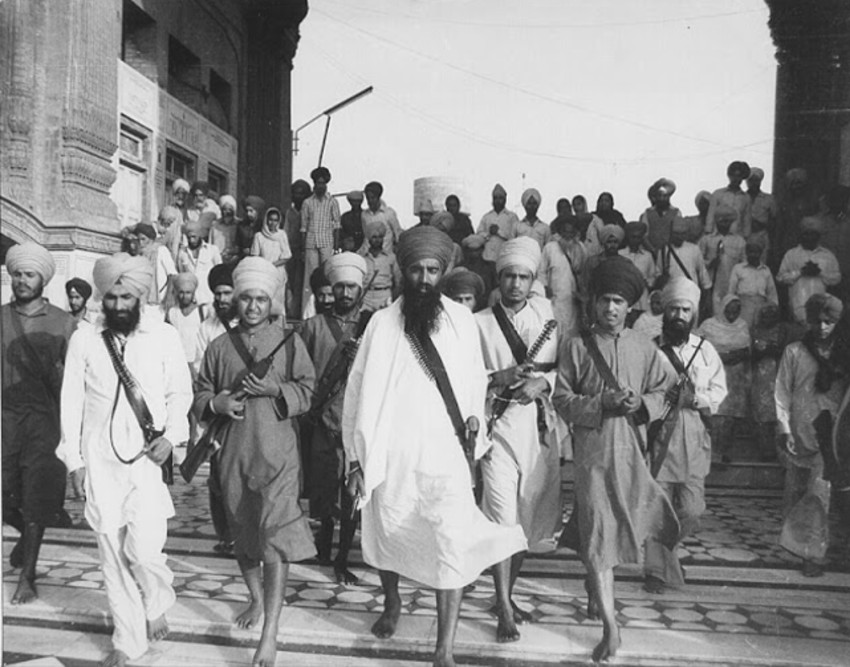
1984 Mrs Gandhi’s Final Folly: Operation Blue Star -
1916-2004 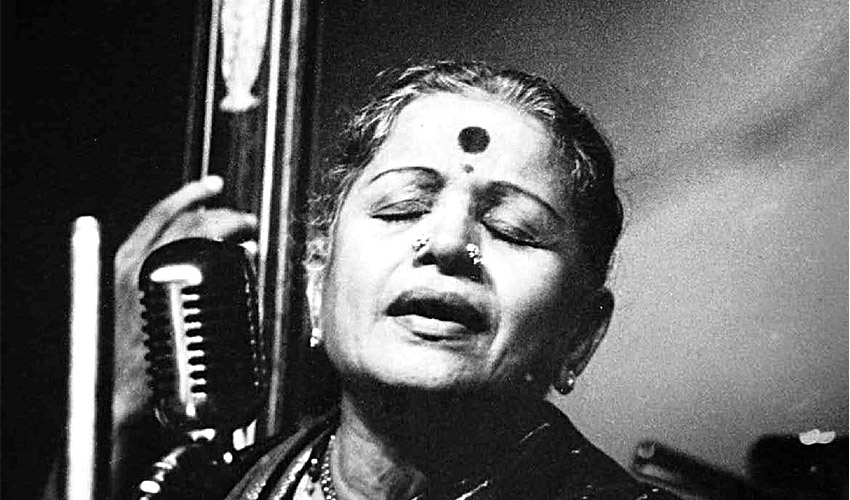
1916-2004 Amjad Ali Khan on M.S. Subbulakshmi: “A Glorious Chapter for Indian Classical Music” -
2008 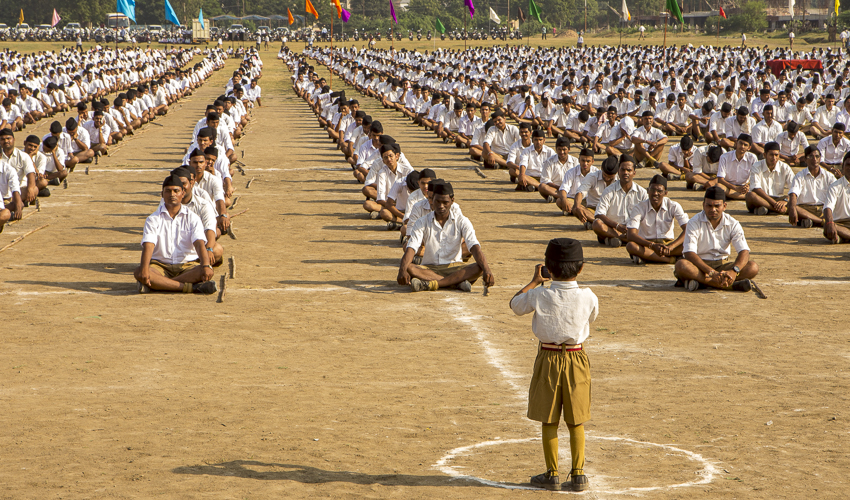
2008 Whose History Textbook Is It Anyway? -
2006 - 2009 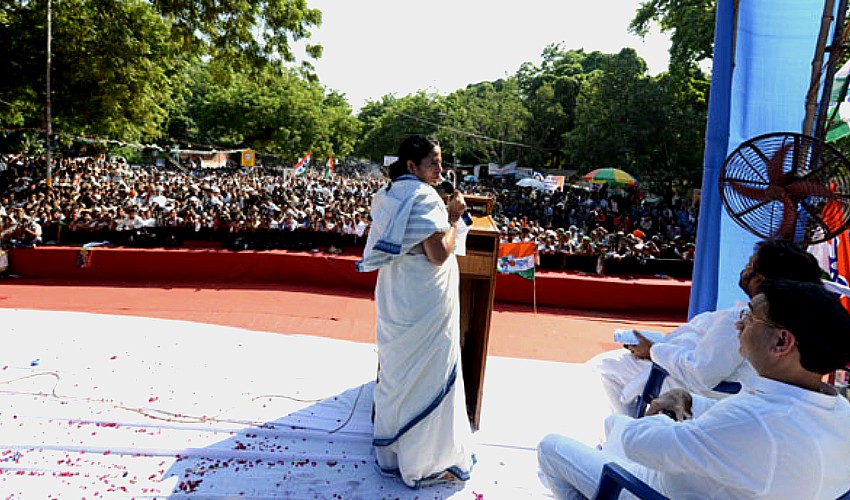
2006 - 2009 Singur-Nandigram-Lalgarh: Movements that Remade Mamata Banerjee -
2020 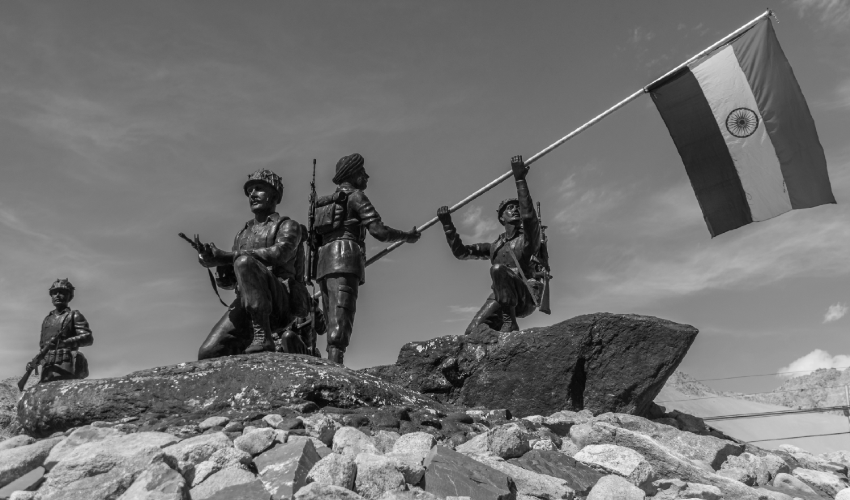
2020 The Indo-China Conflict: 10 Books We Need To Read -
2021 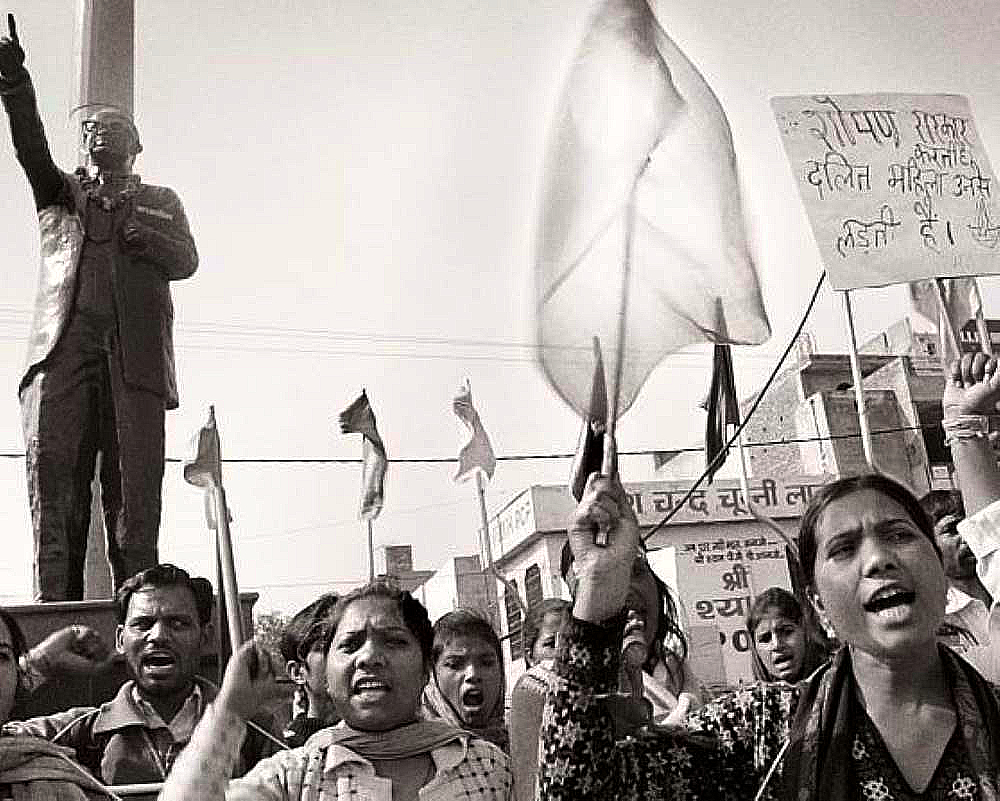
2021 Singing/Writing Liberation: Dalit Women’s Narratives
